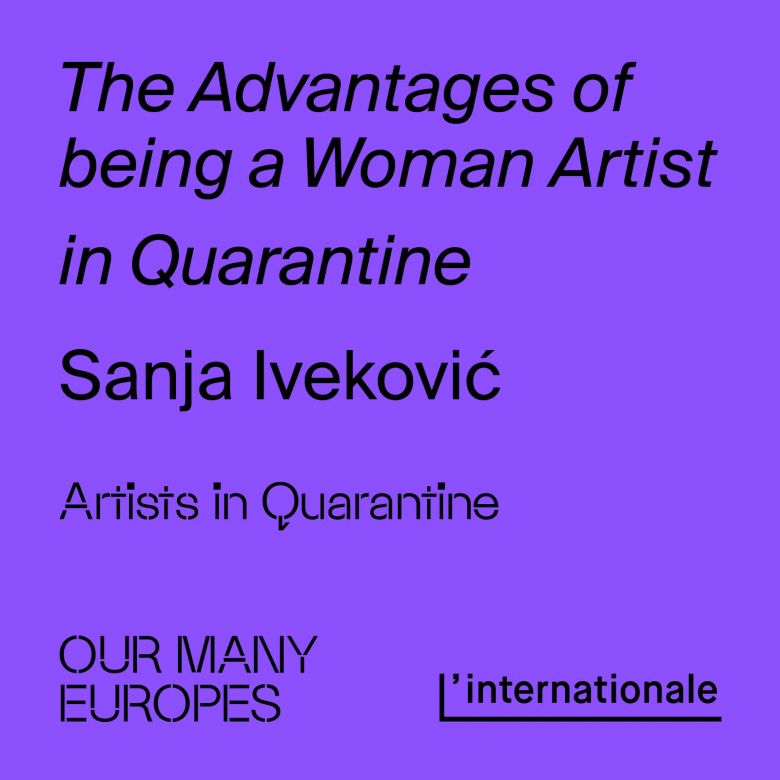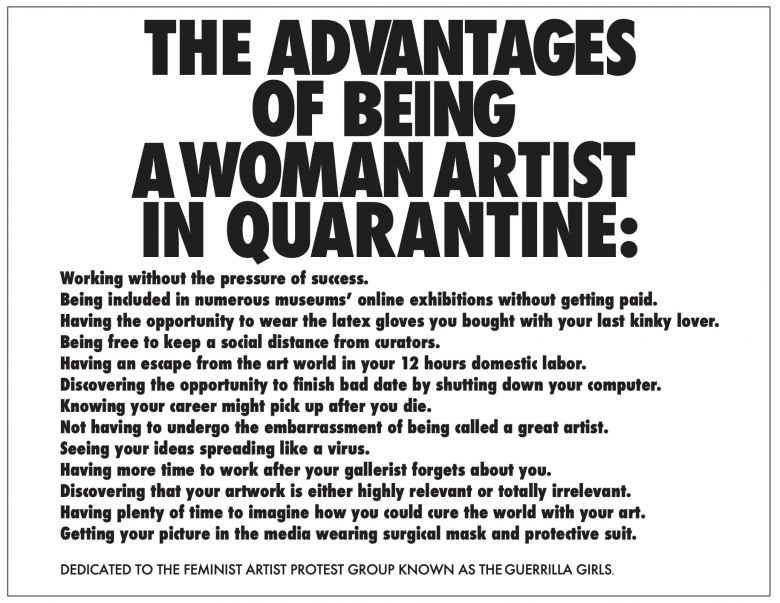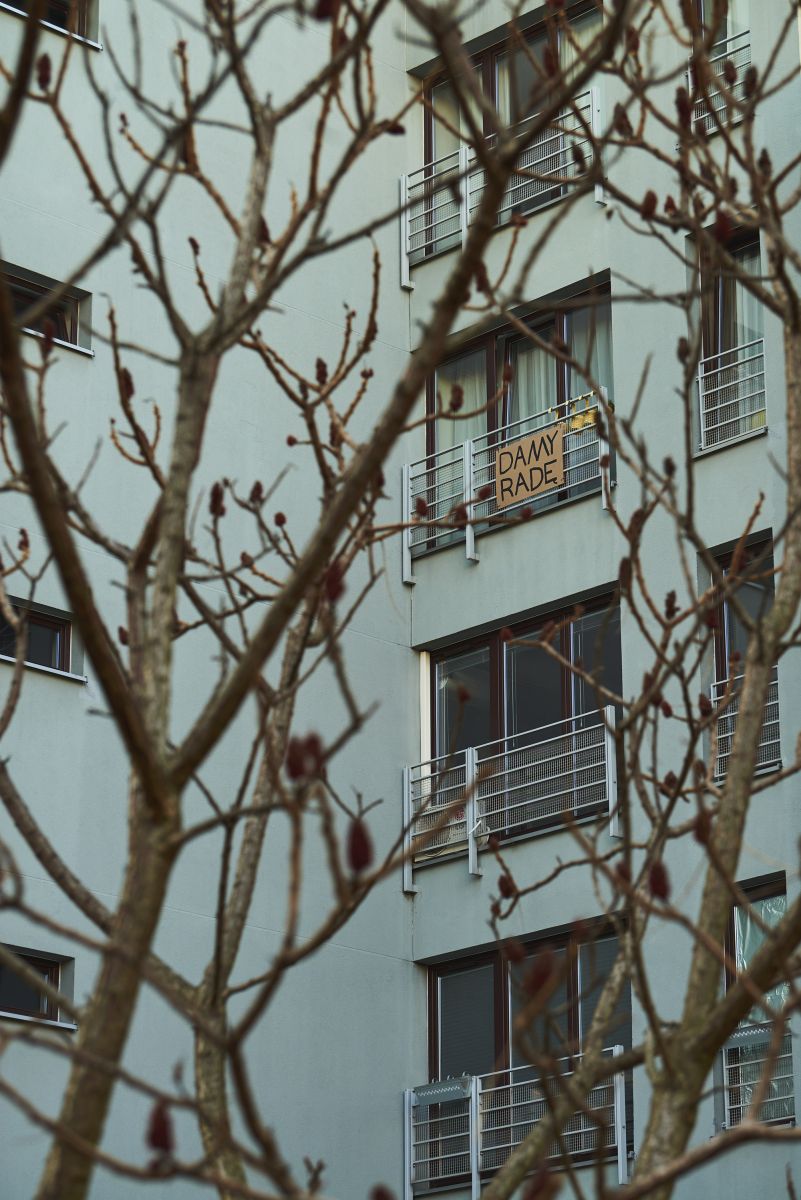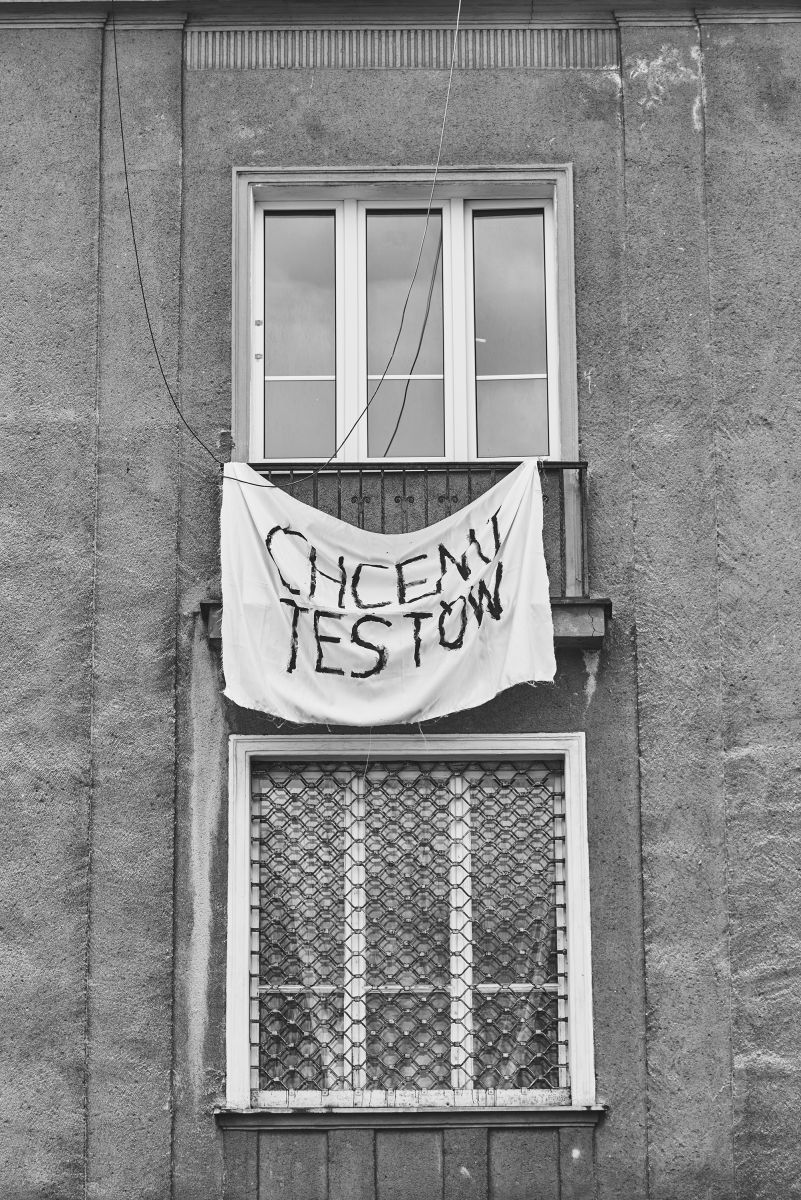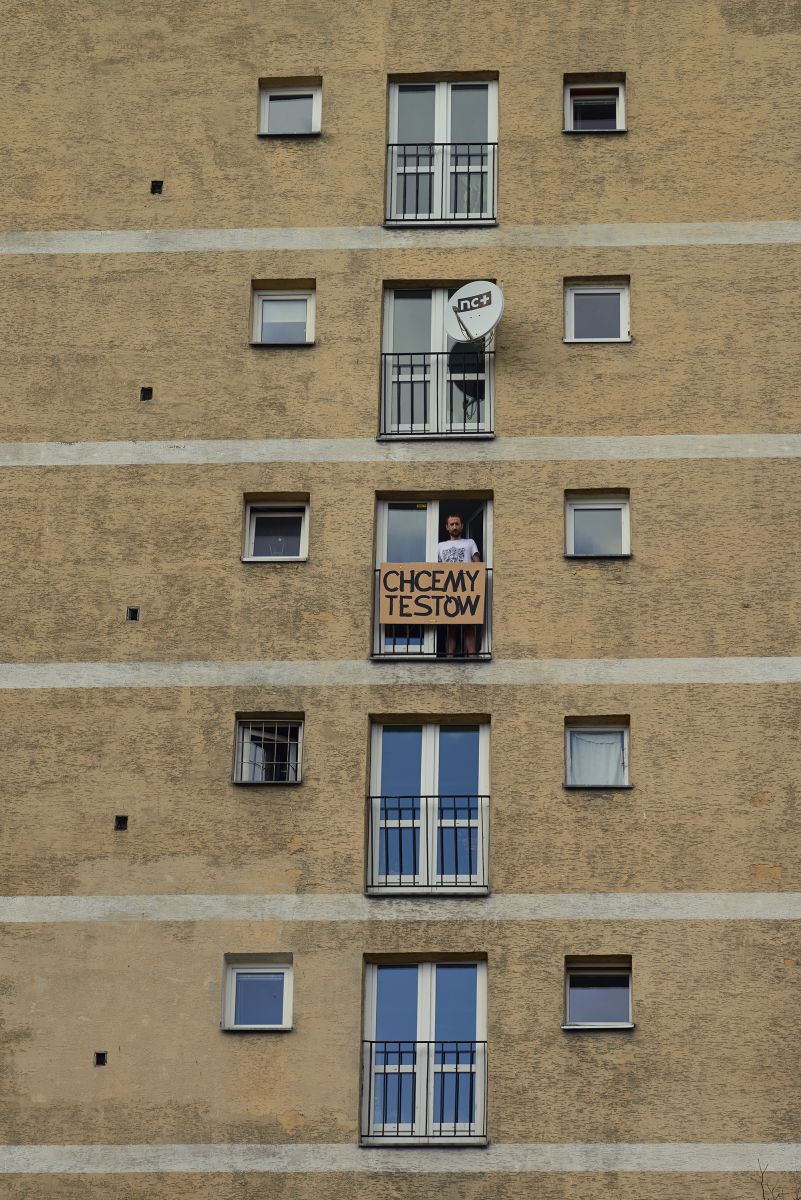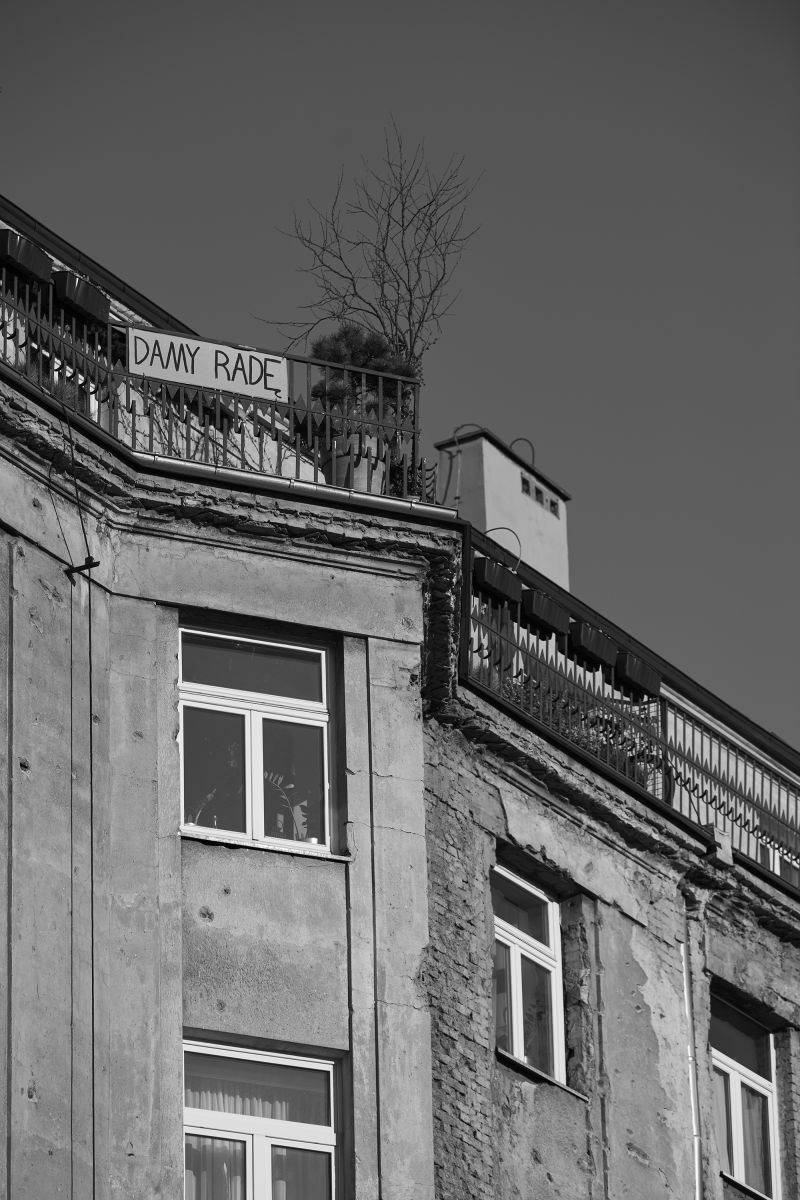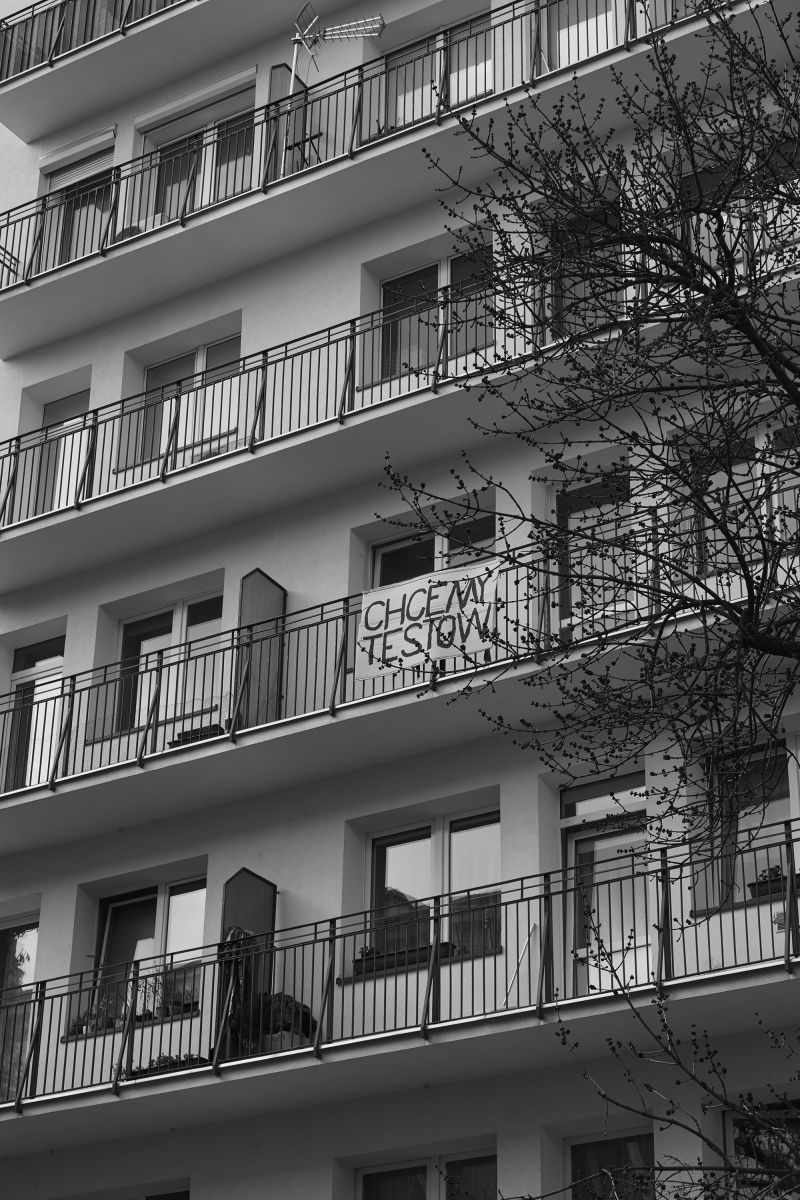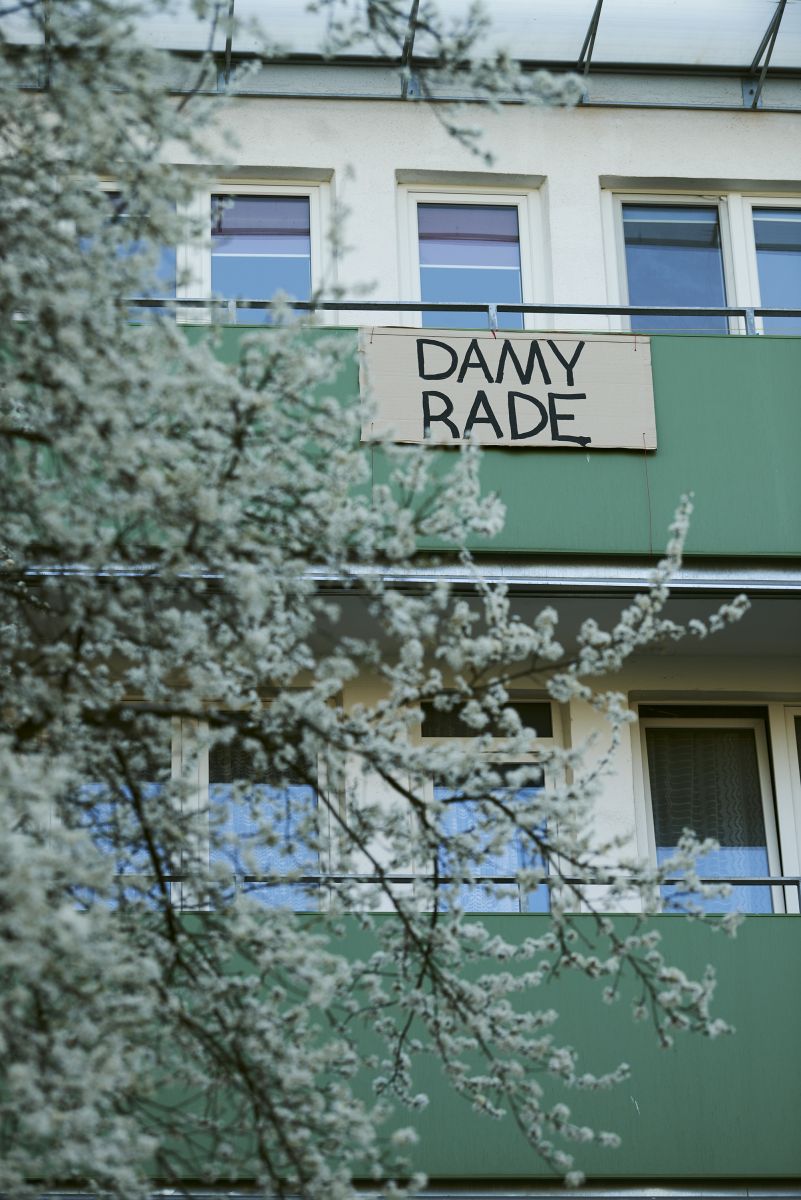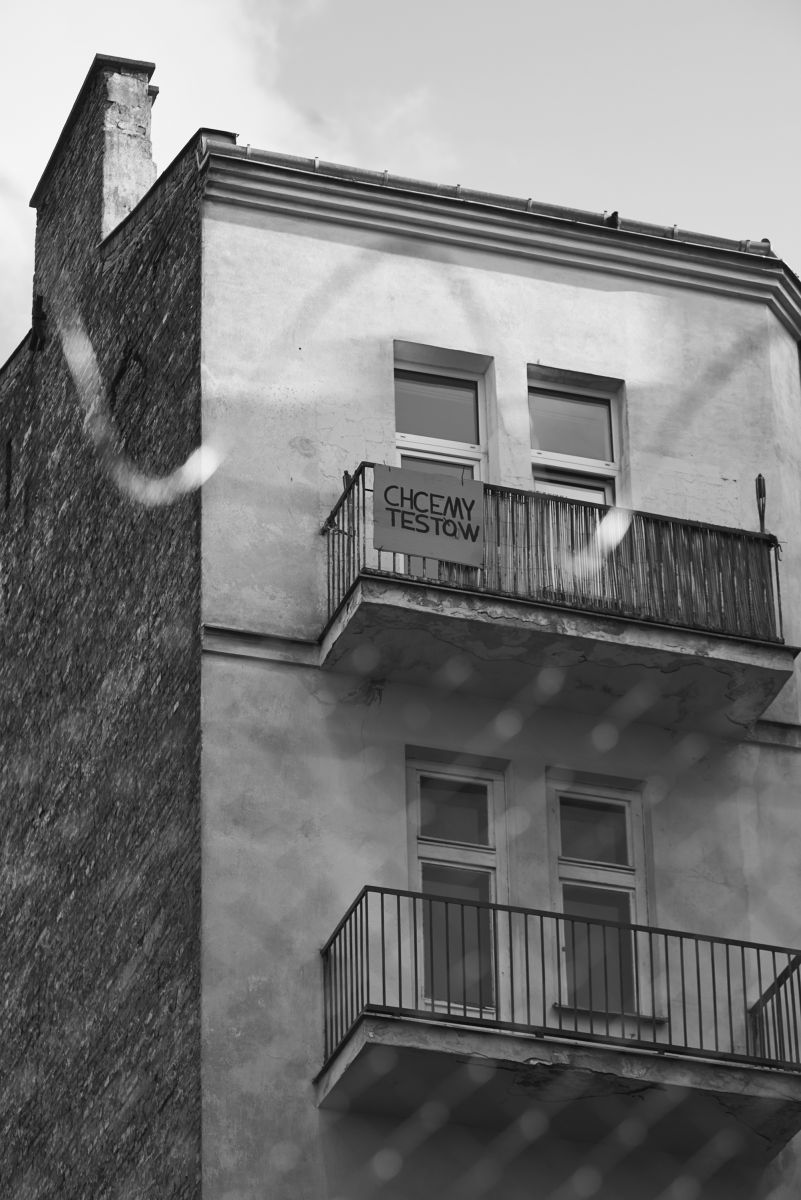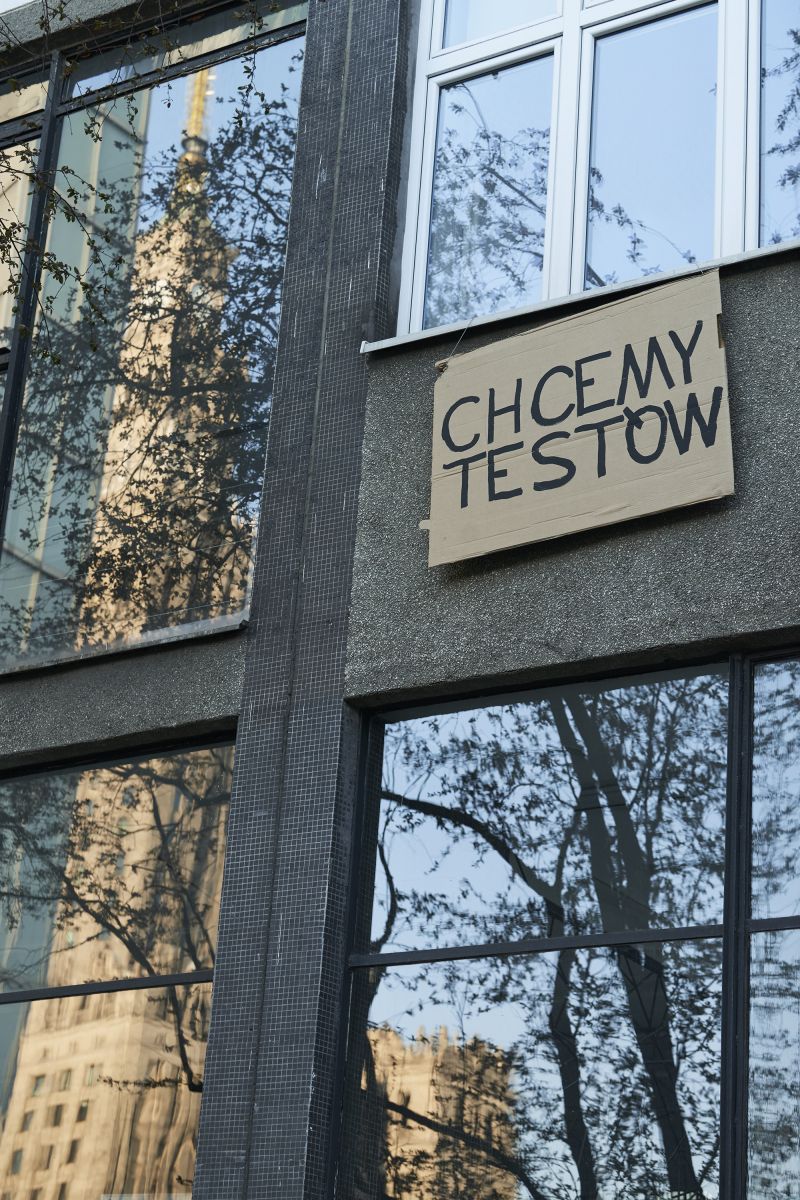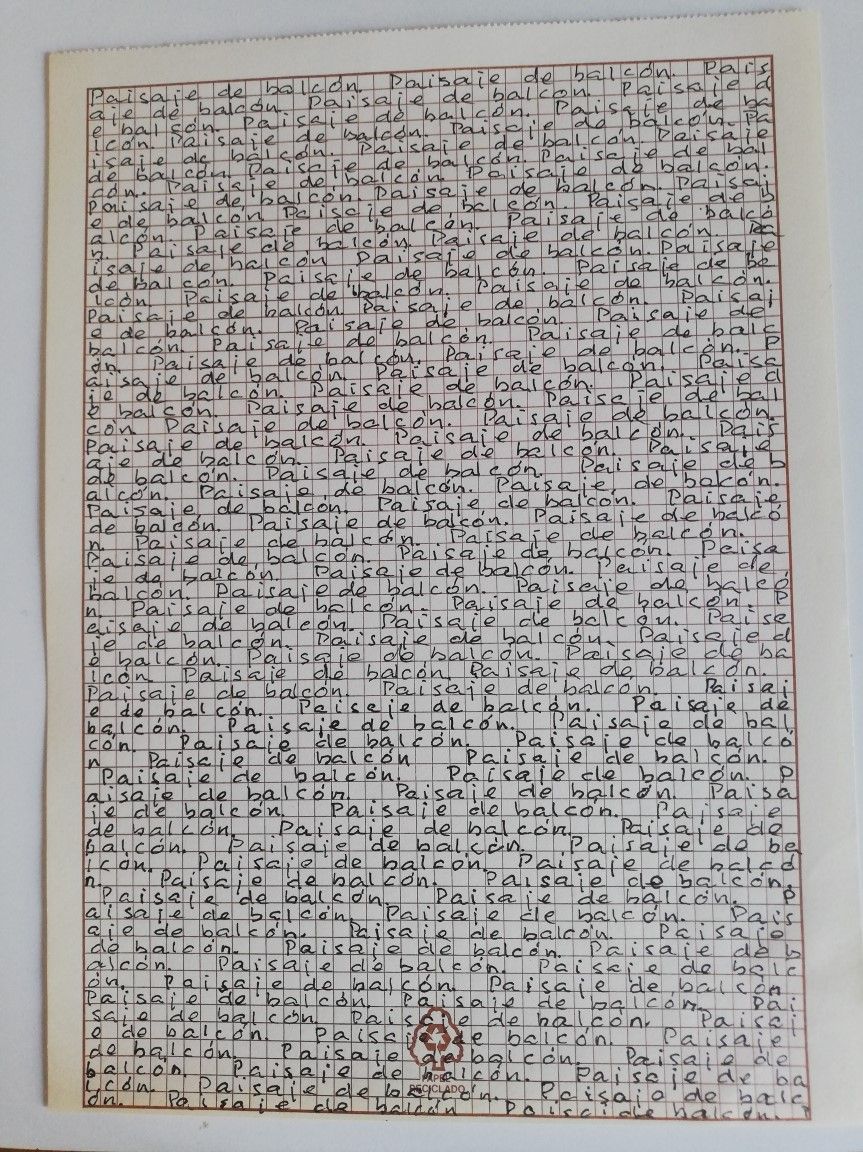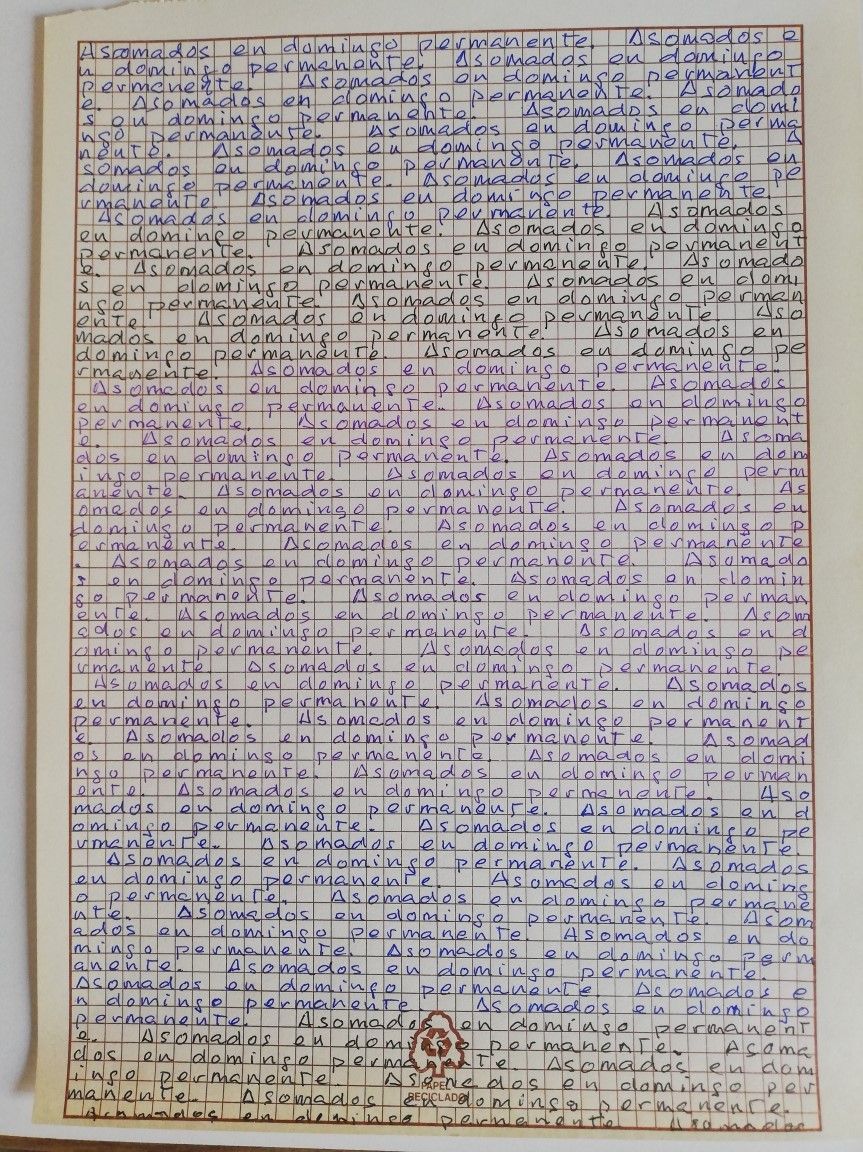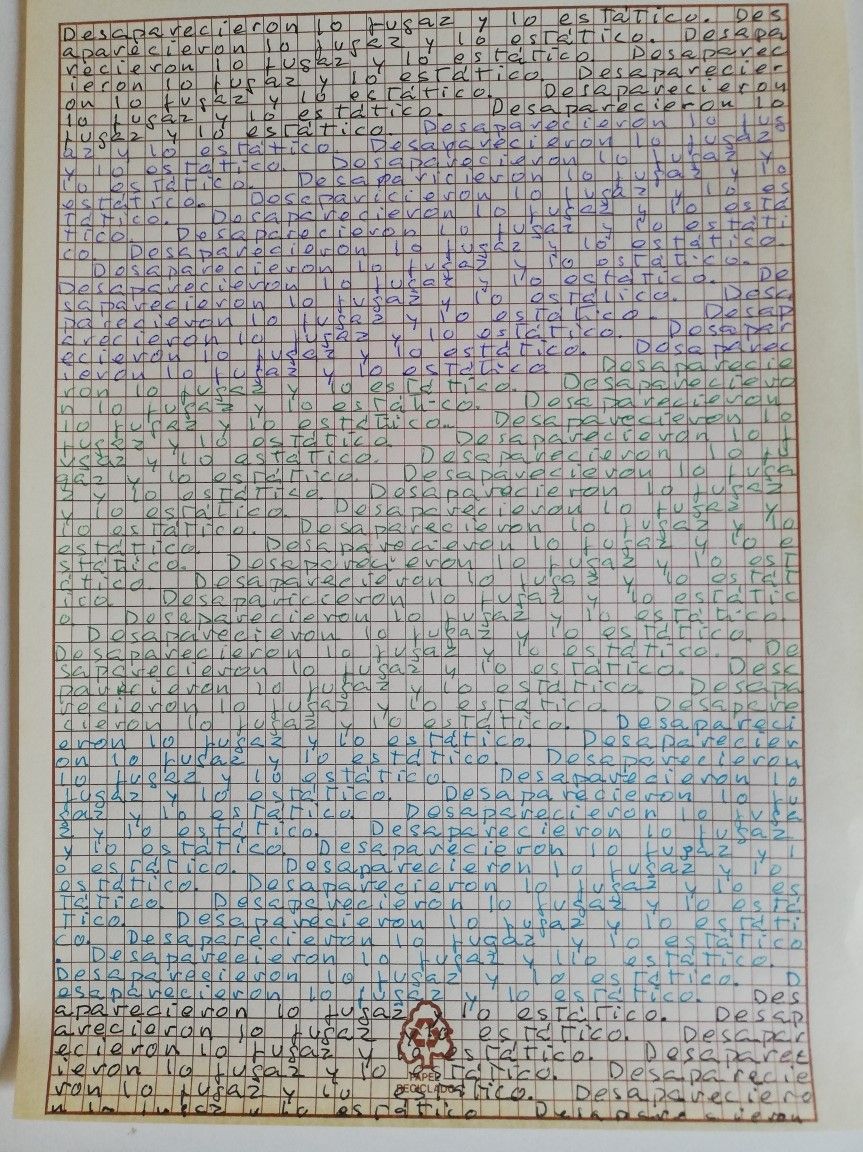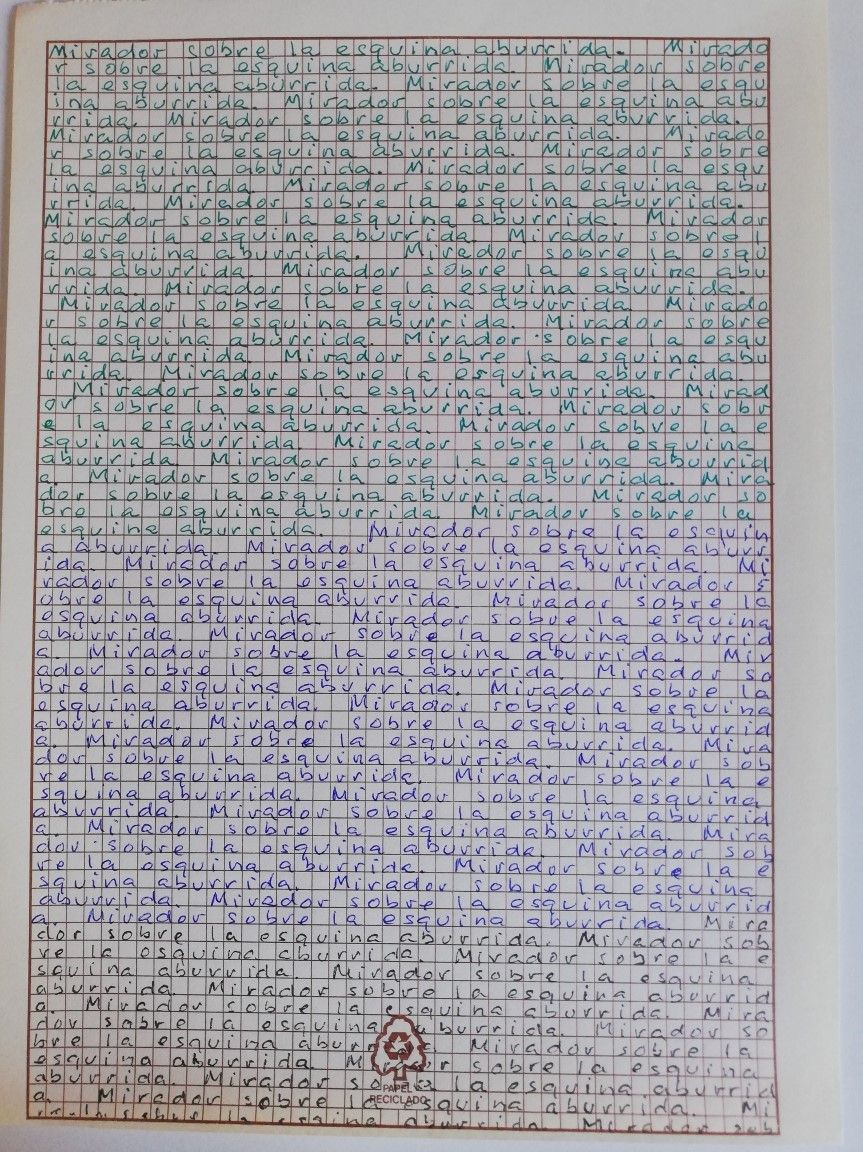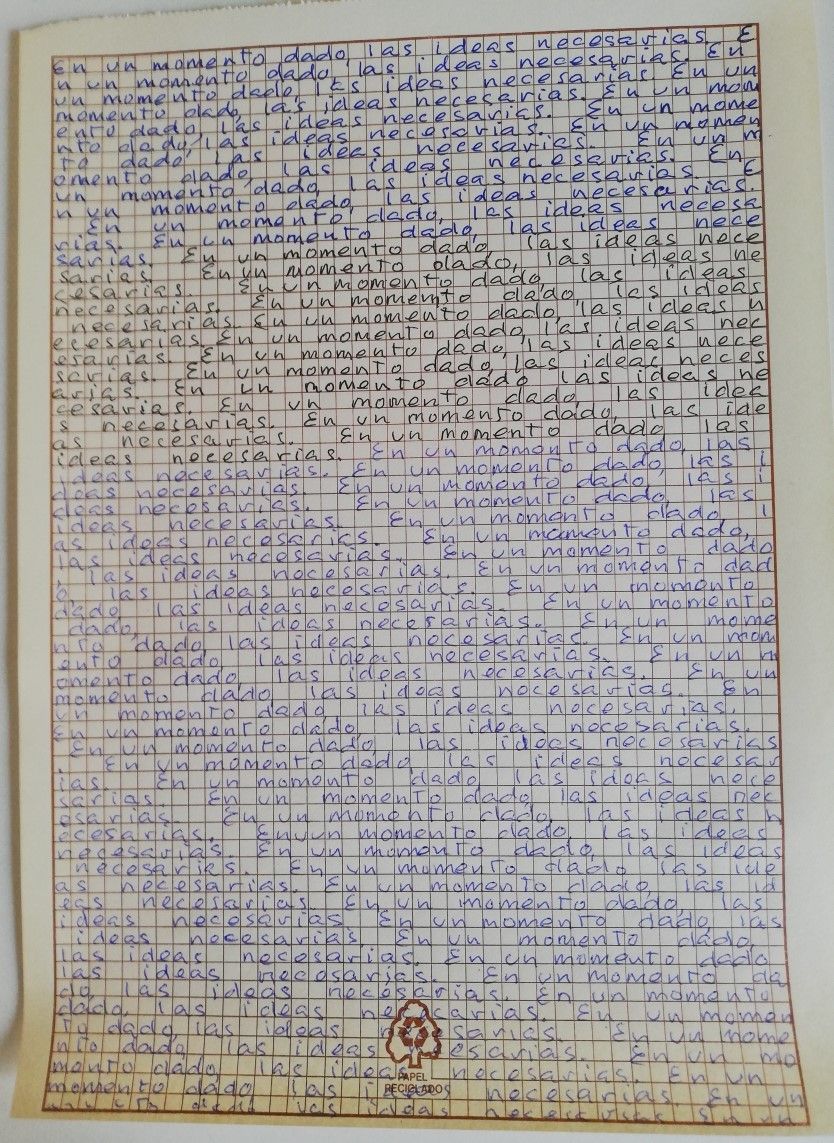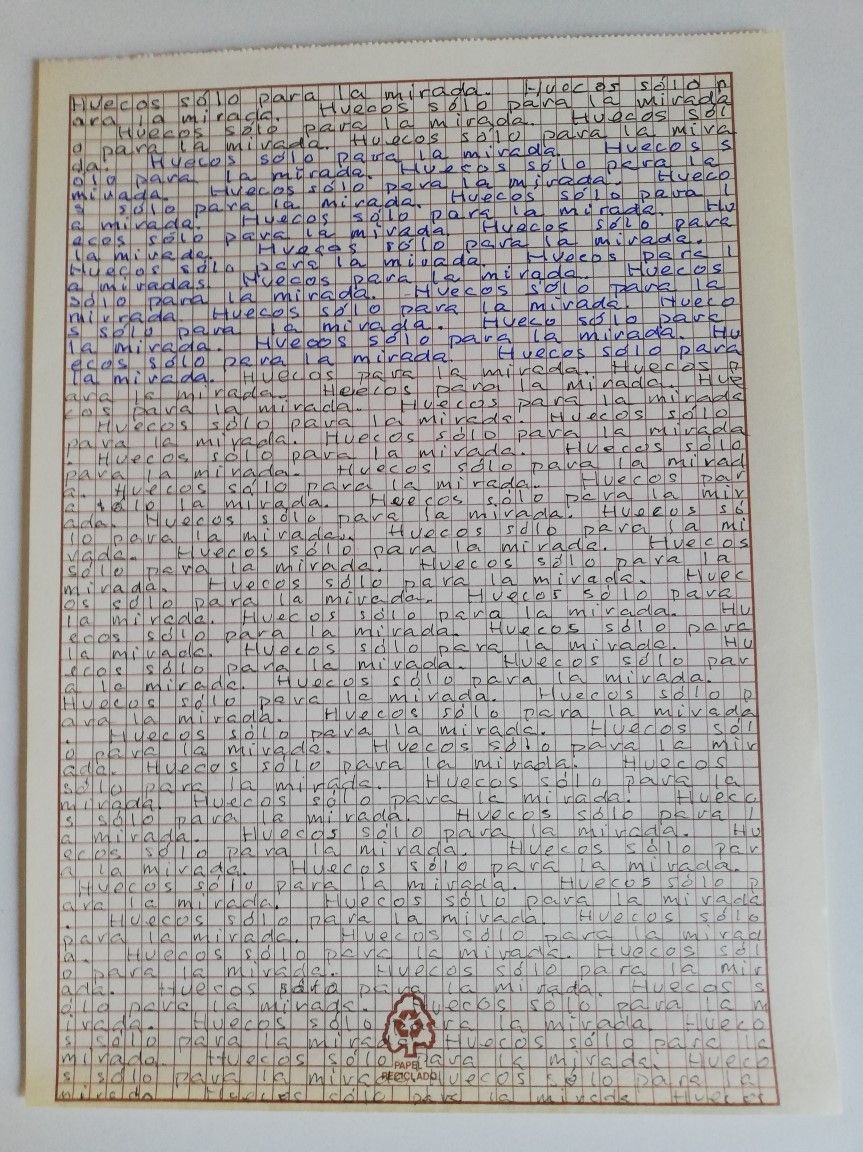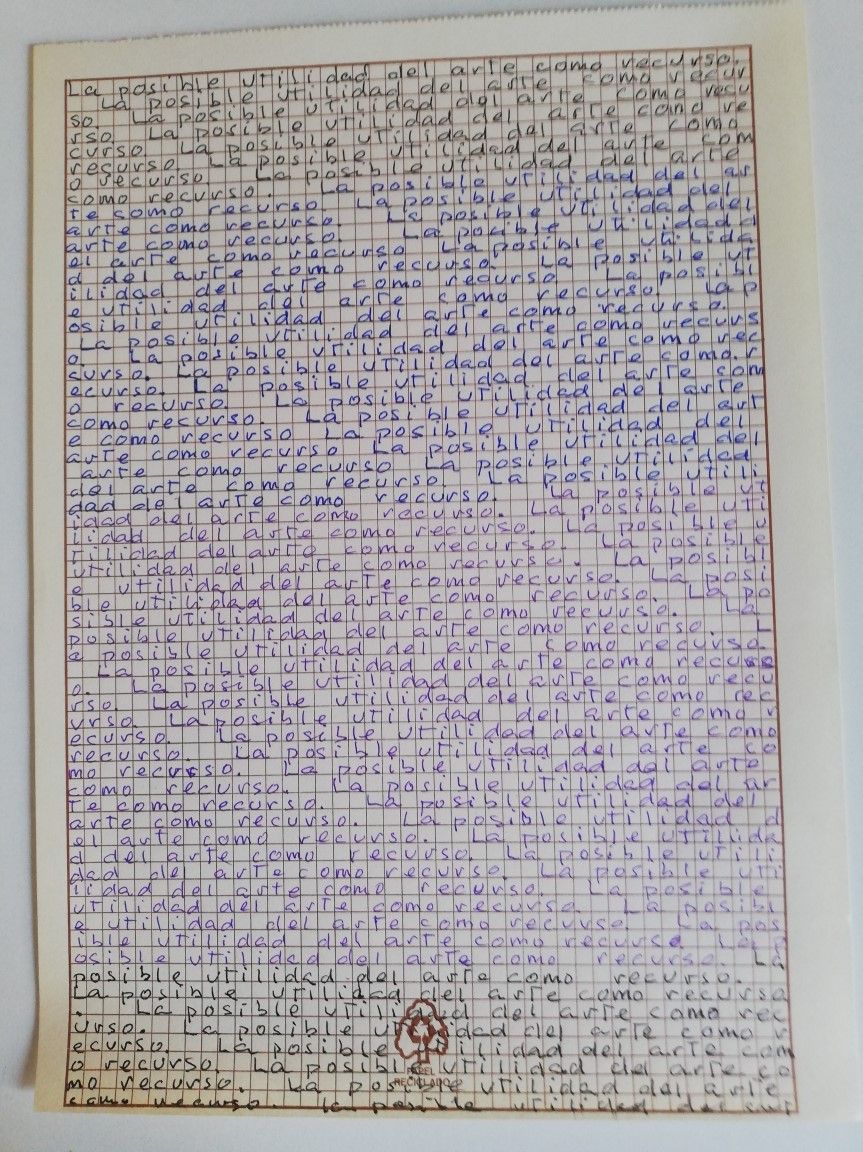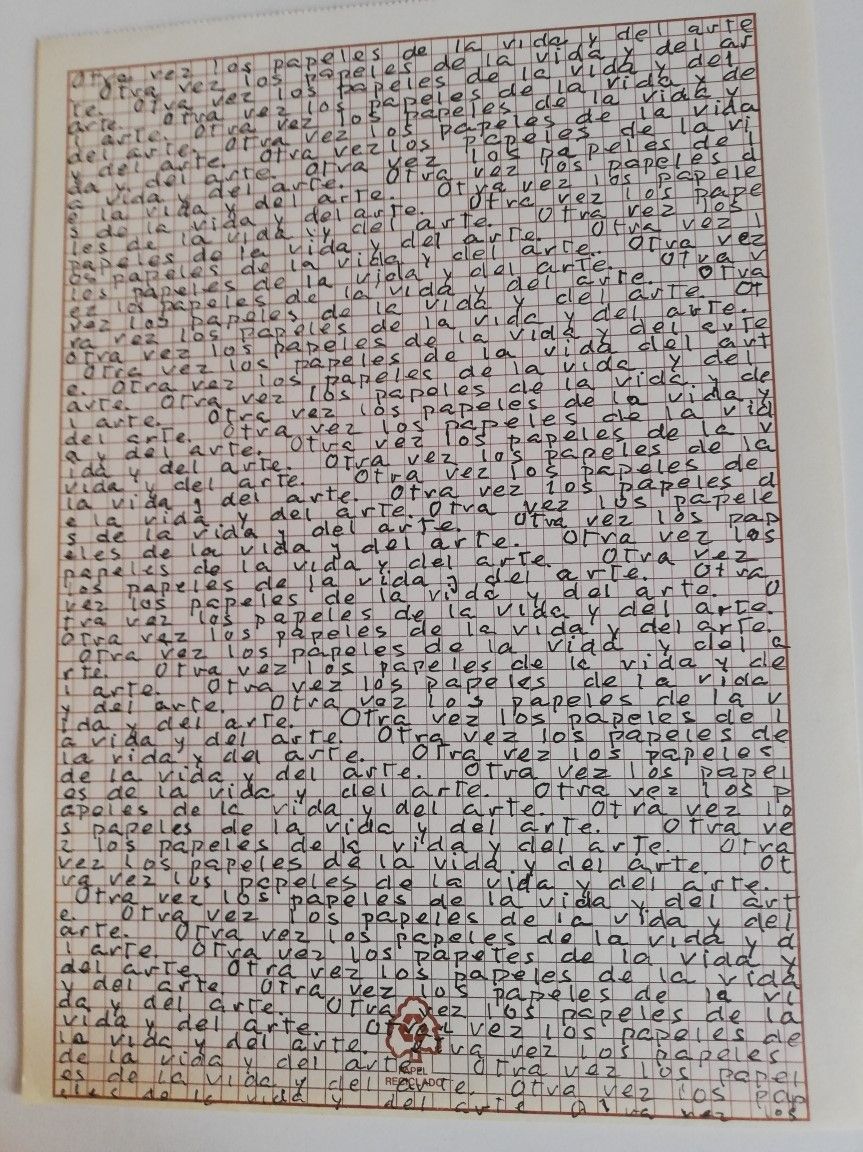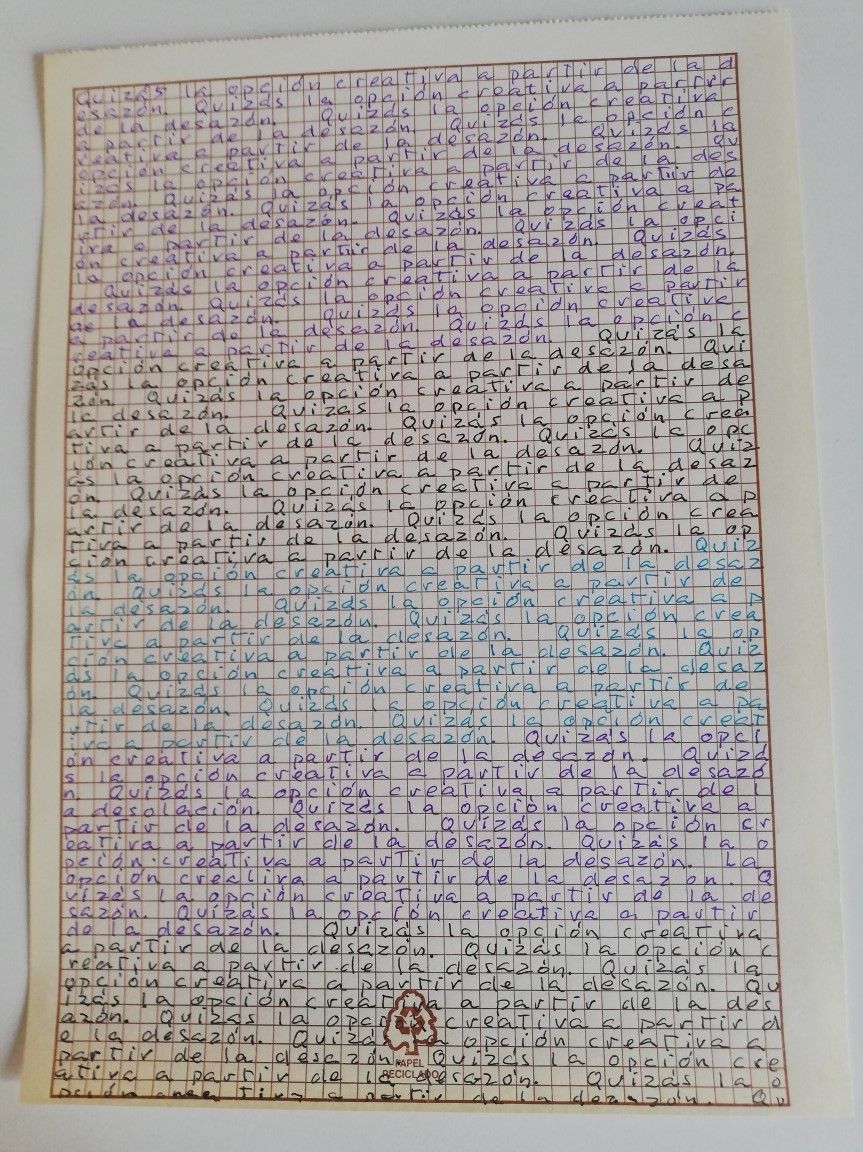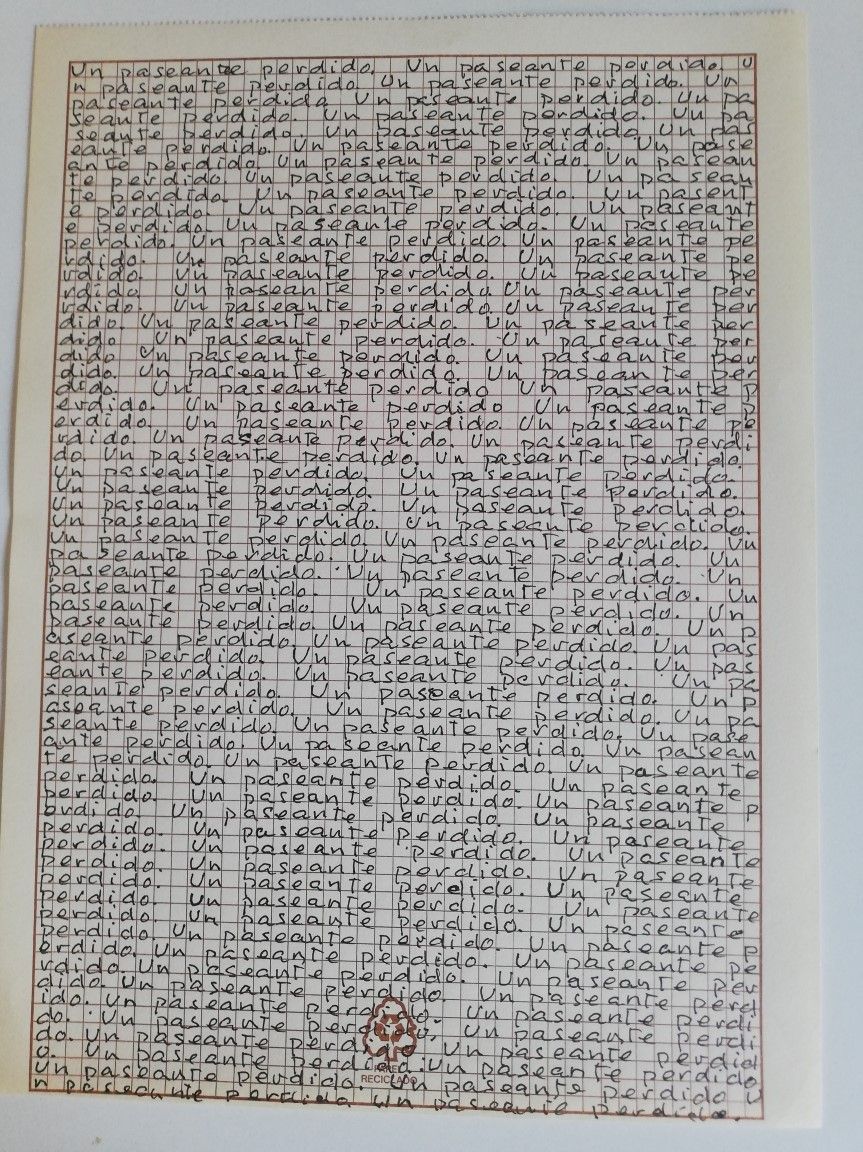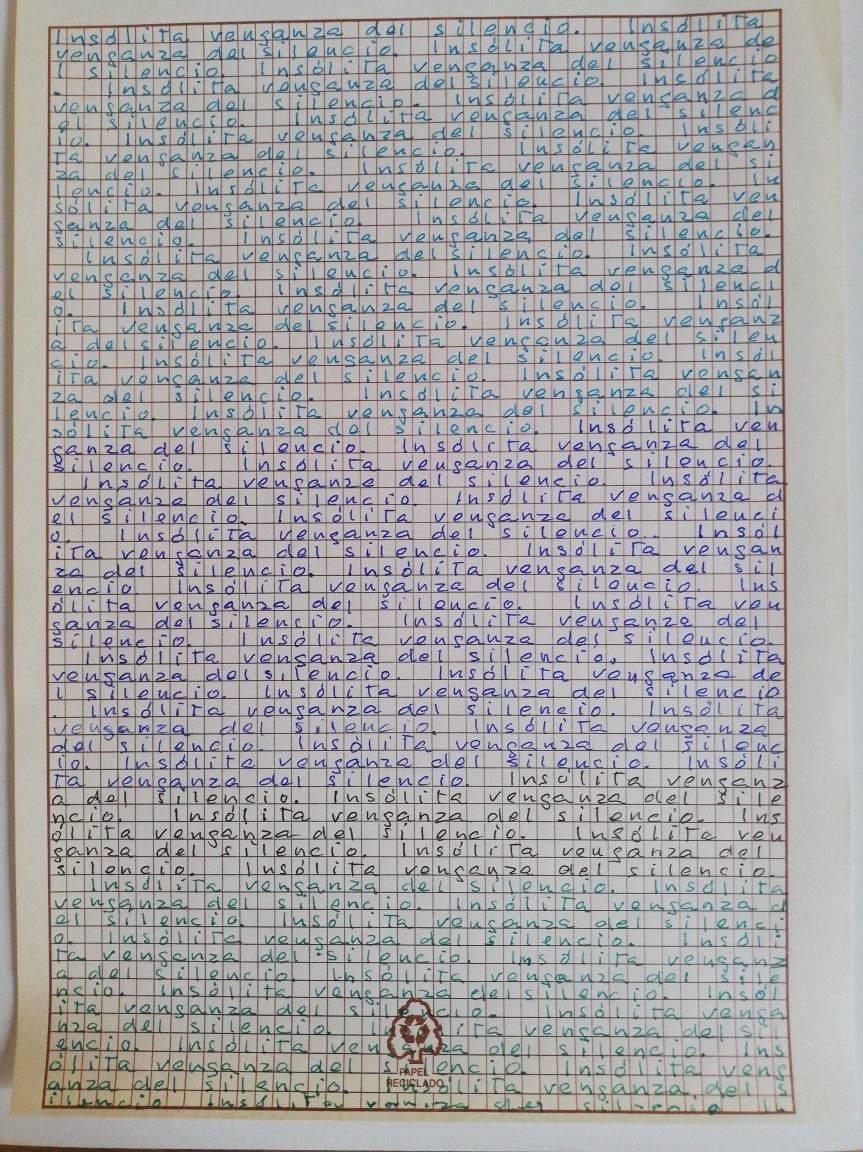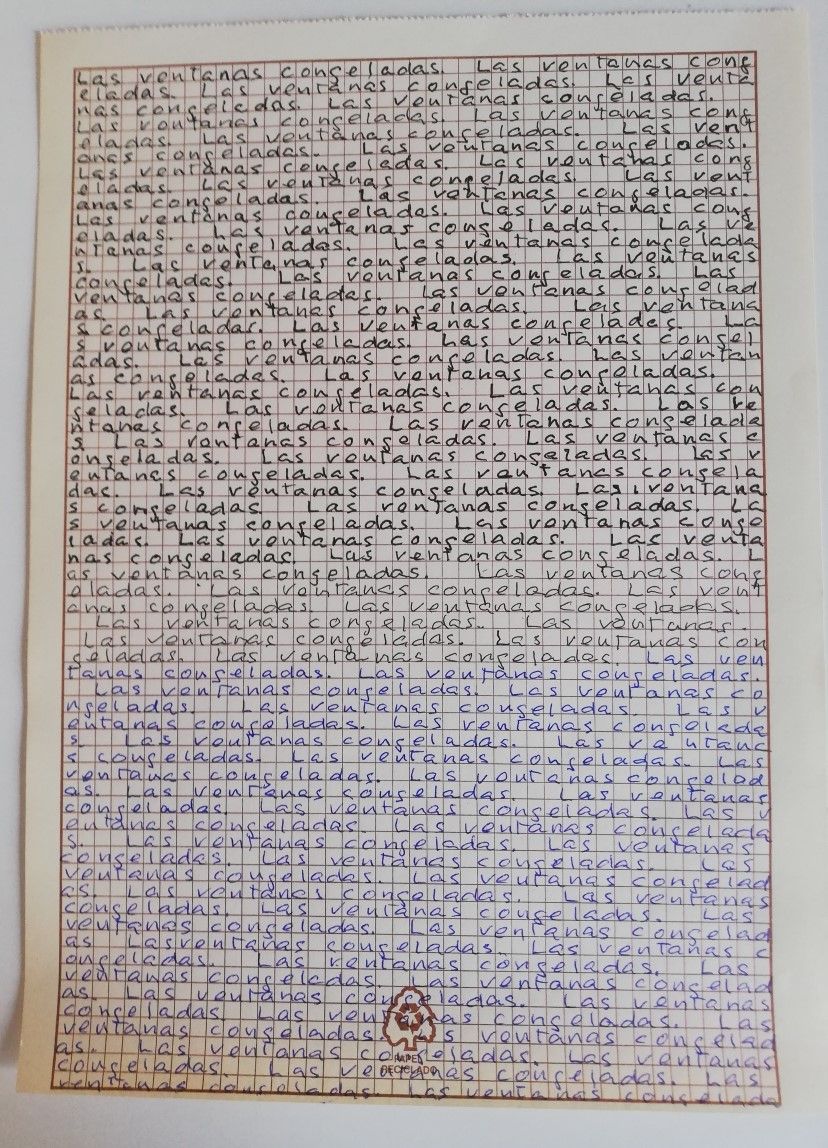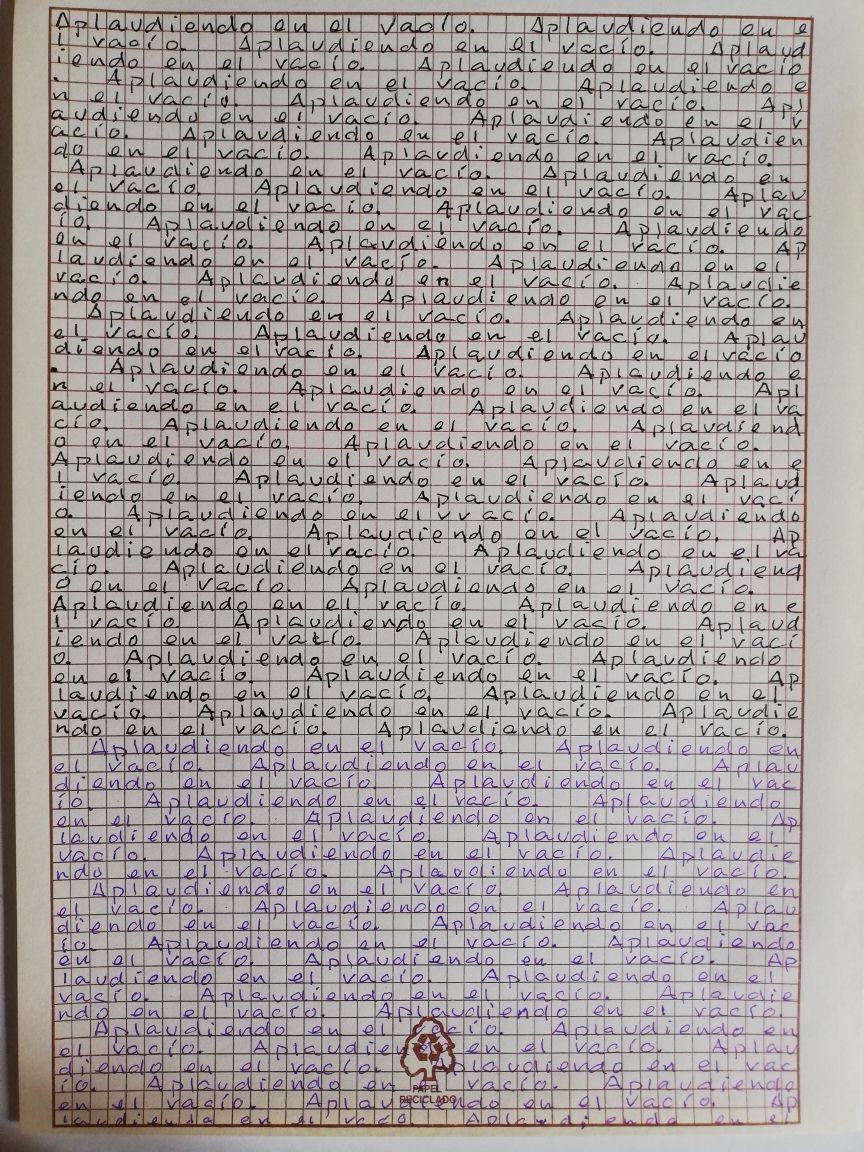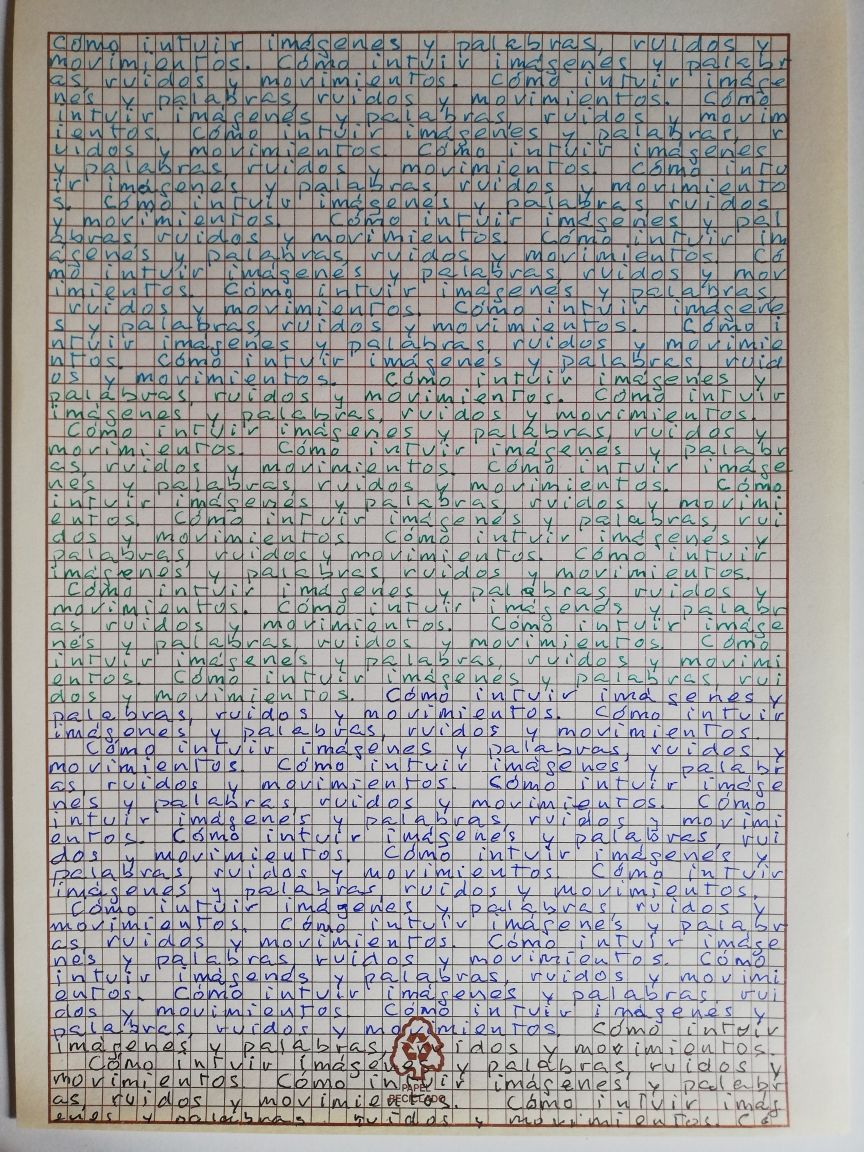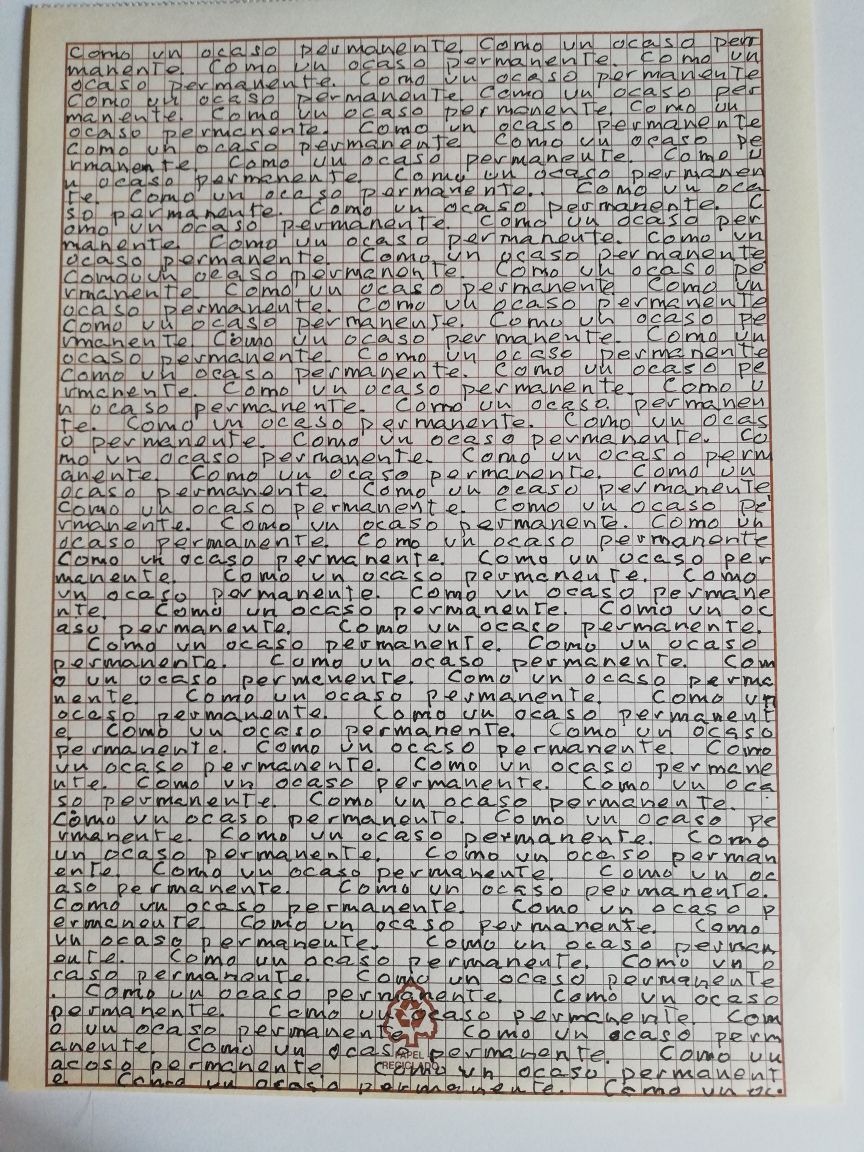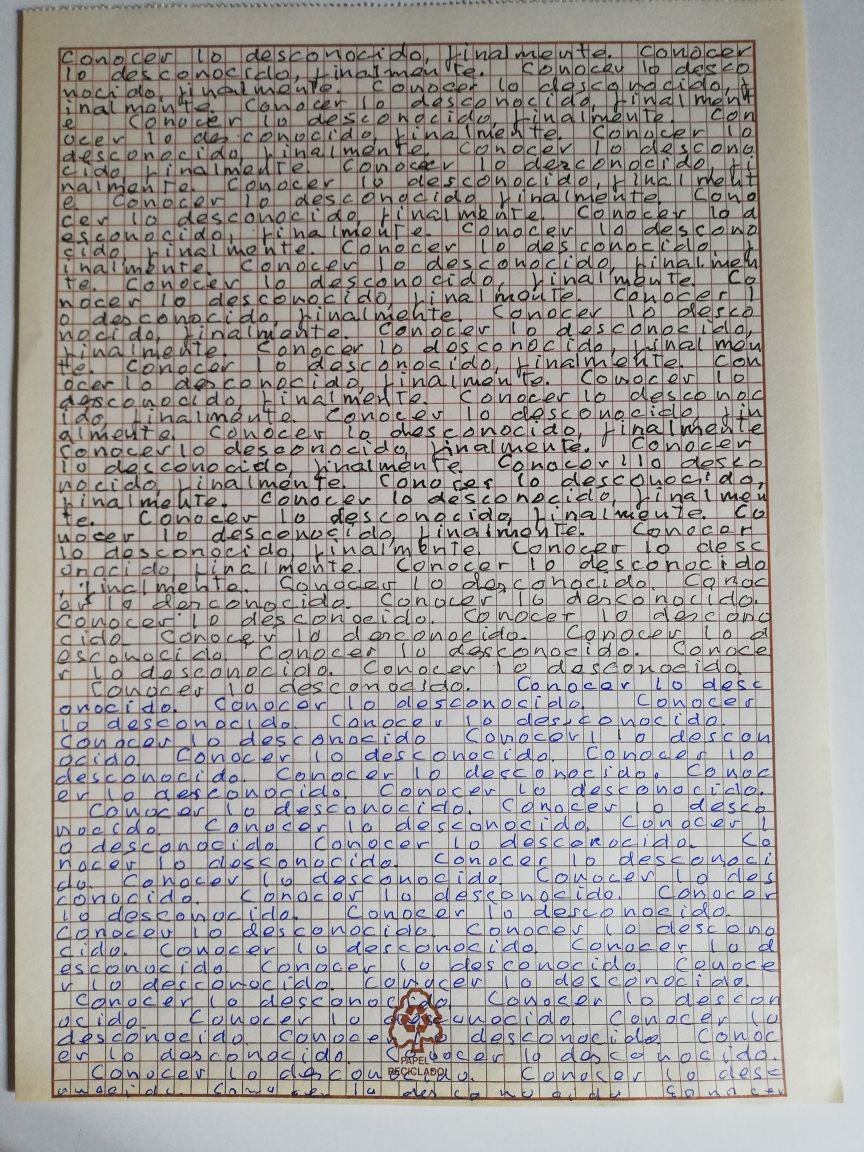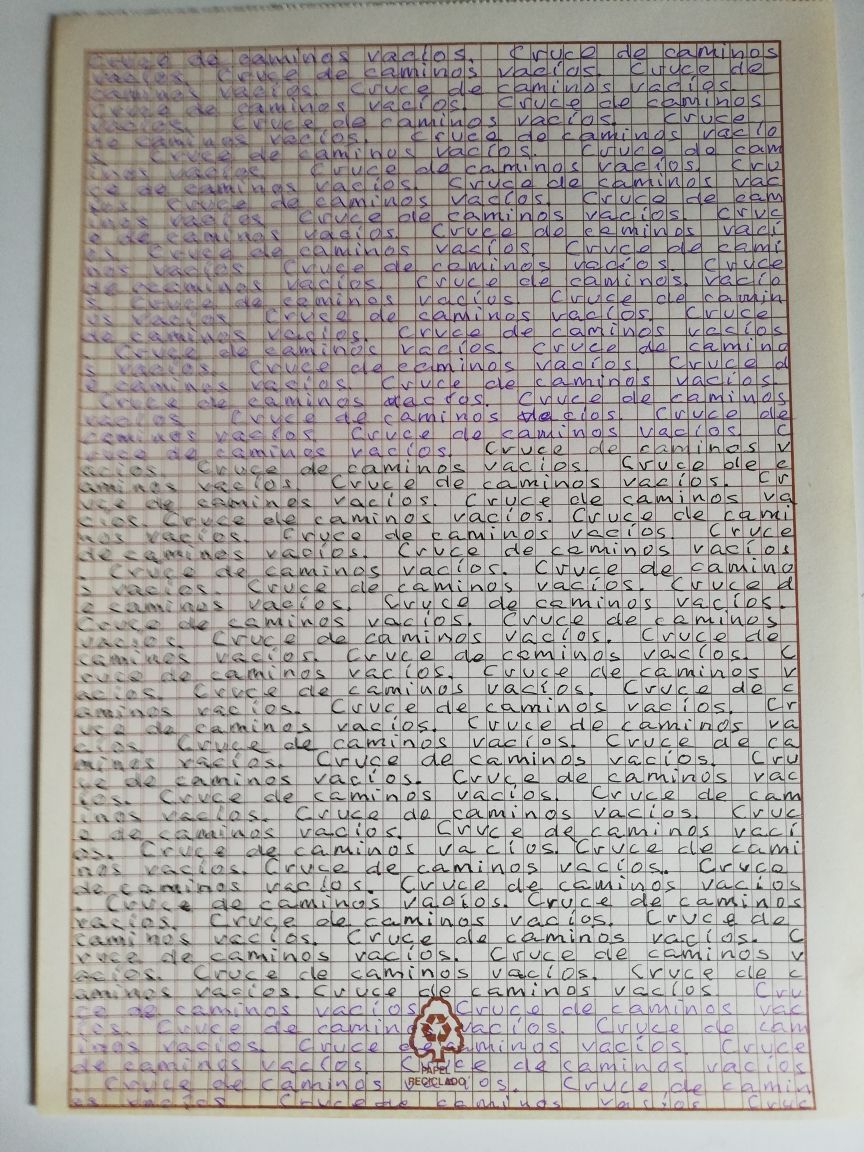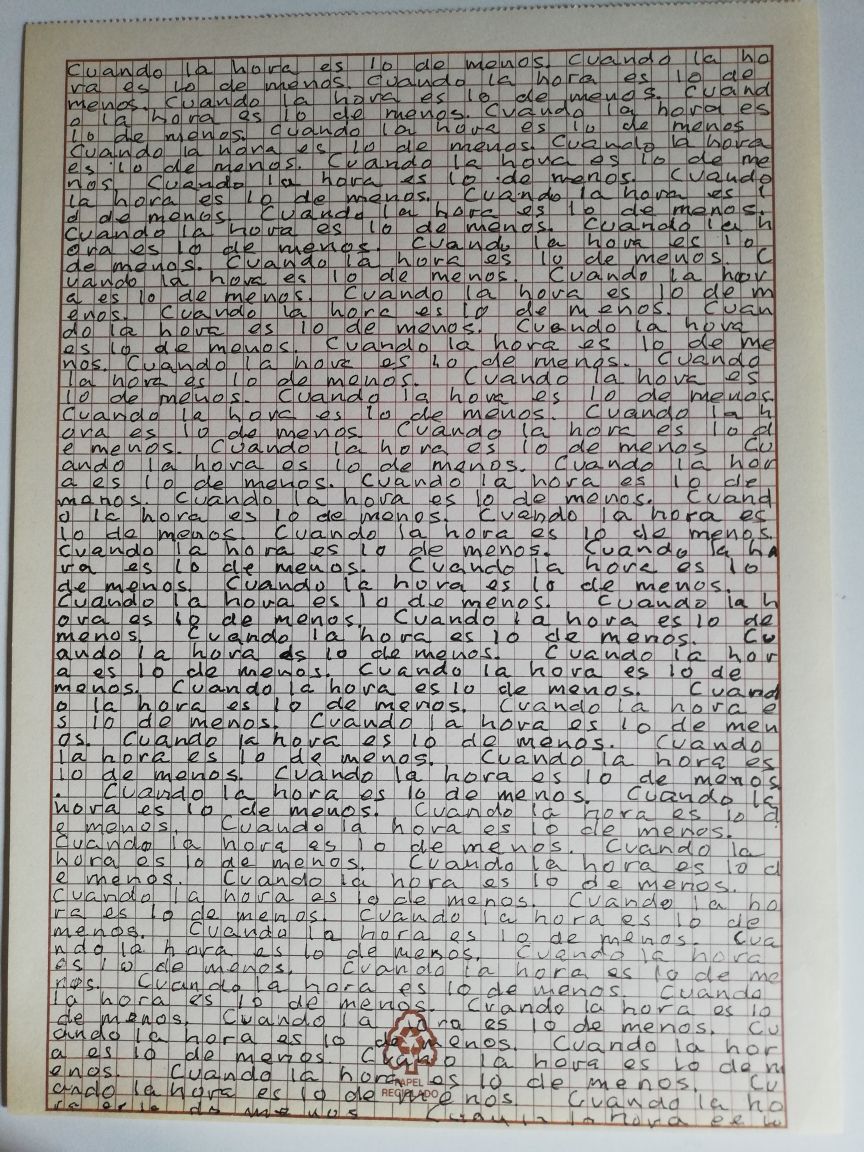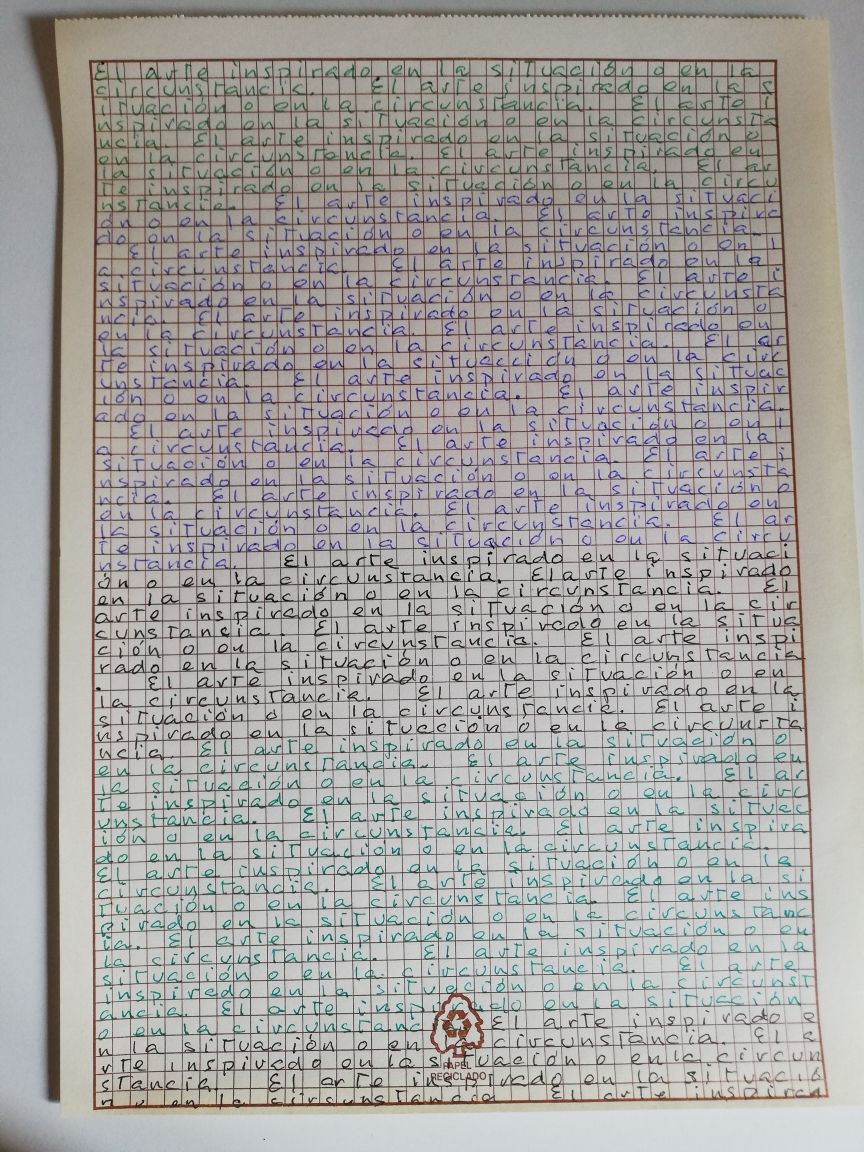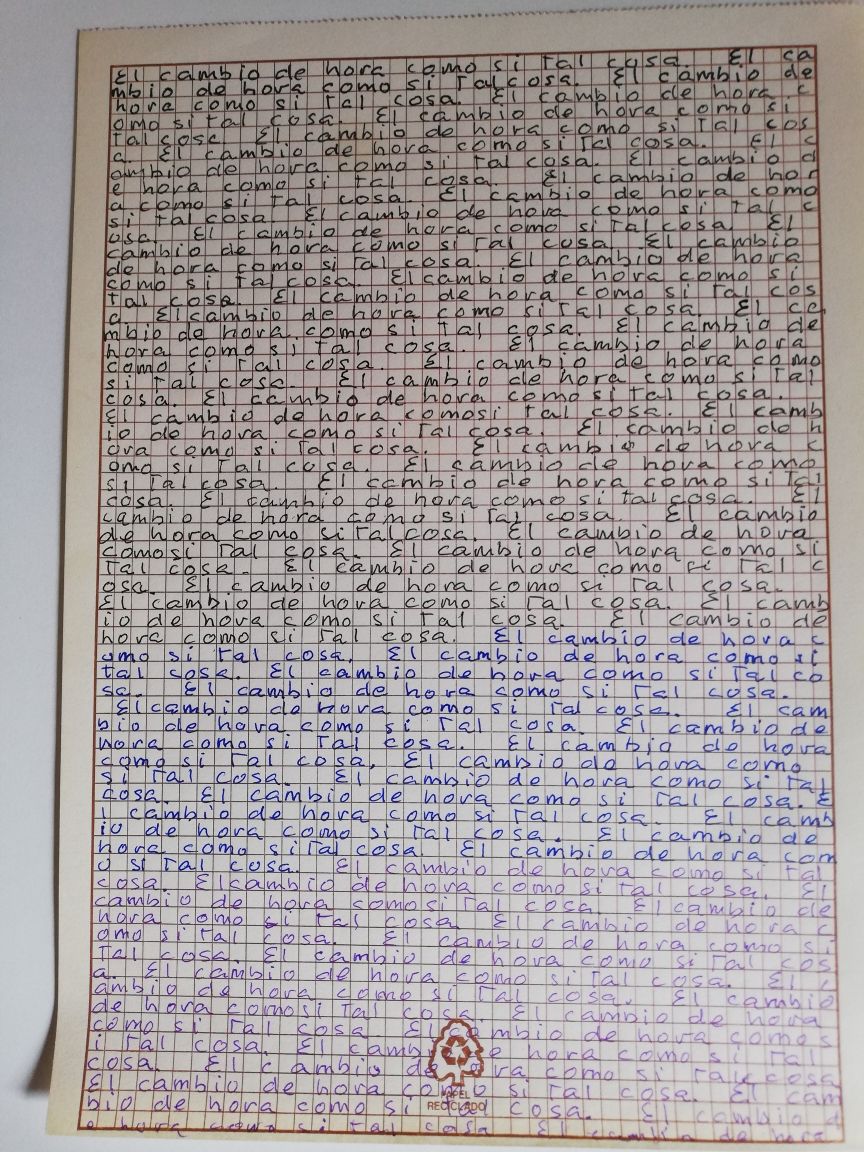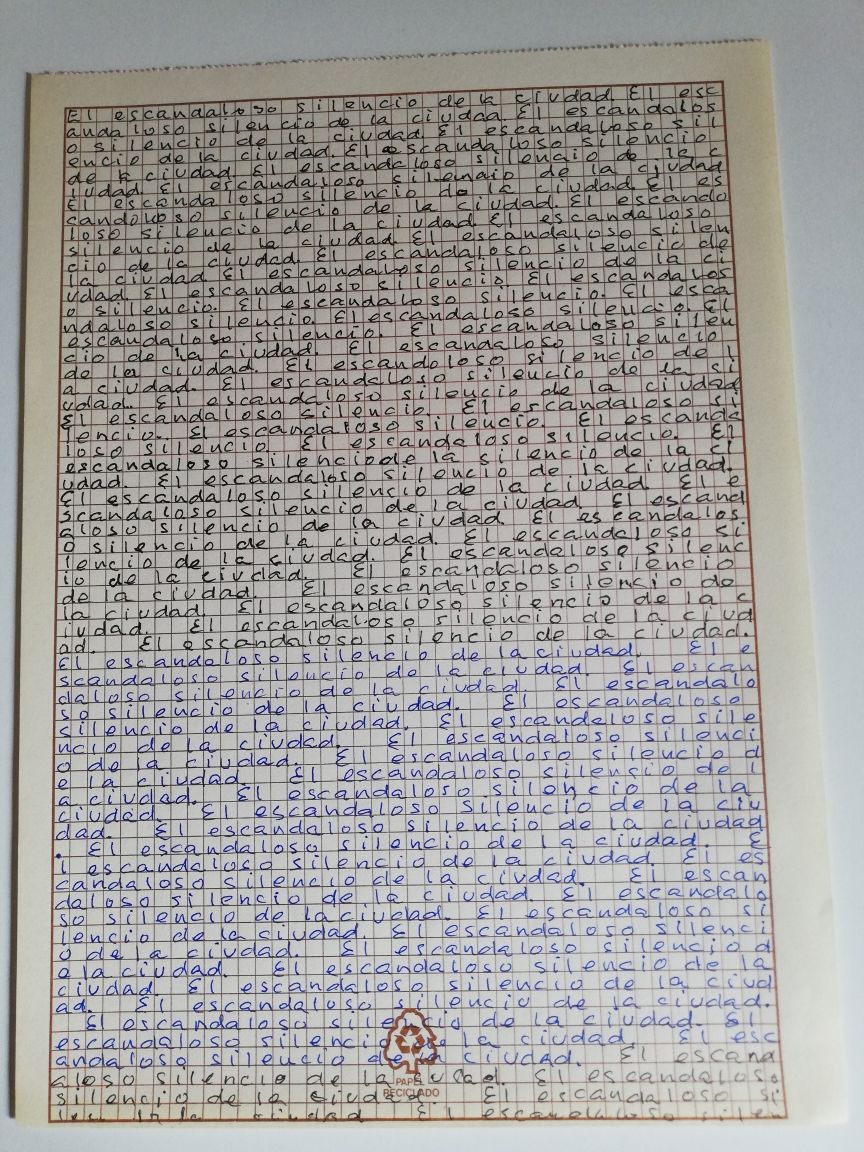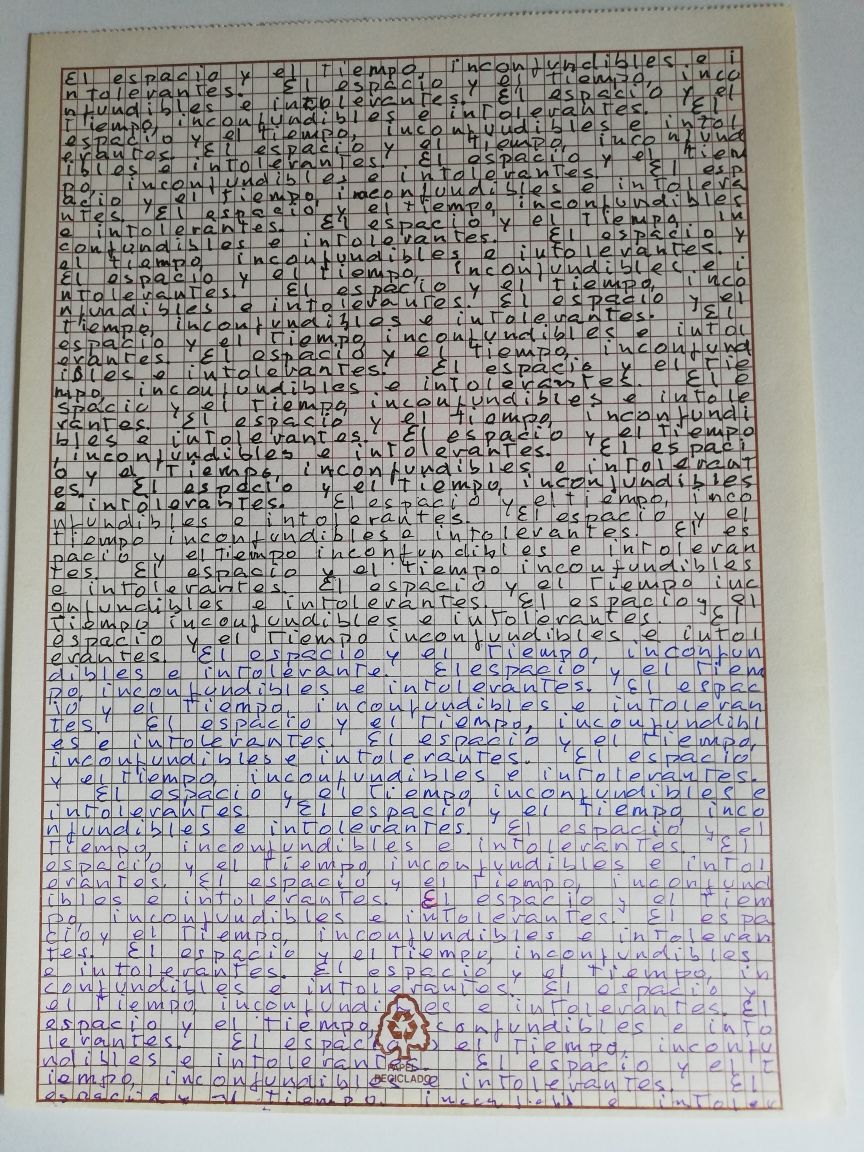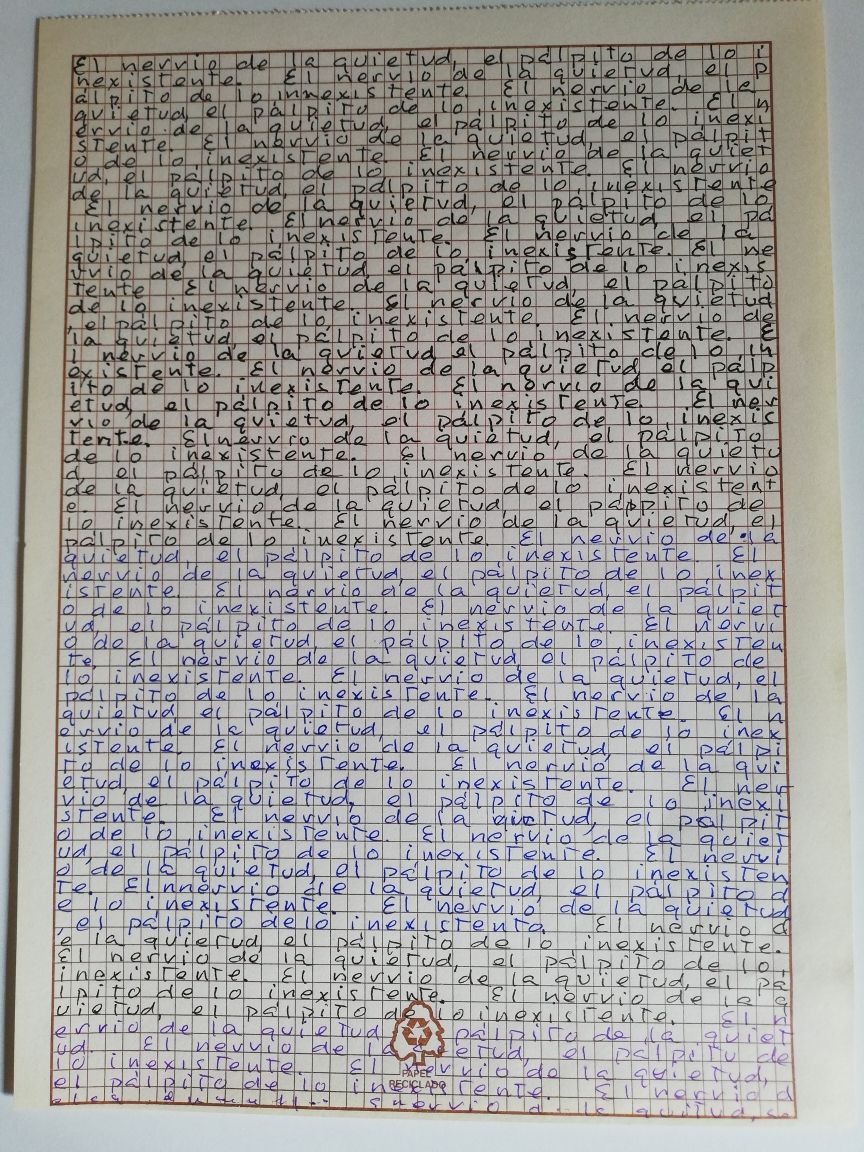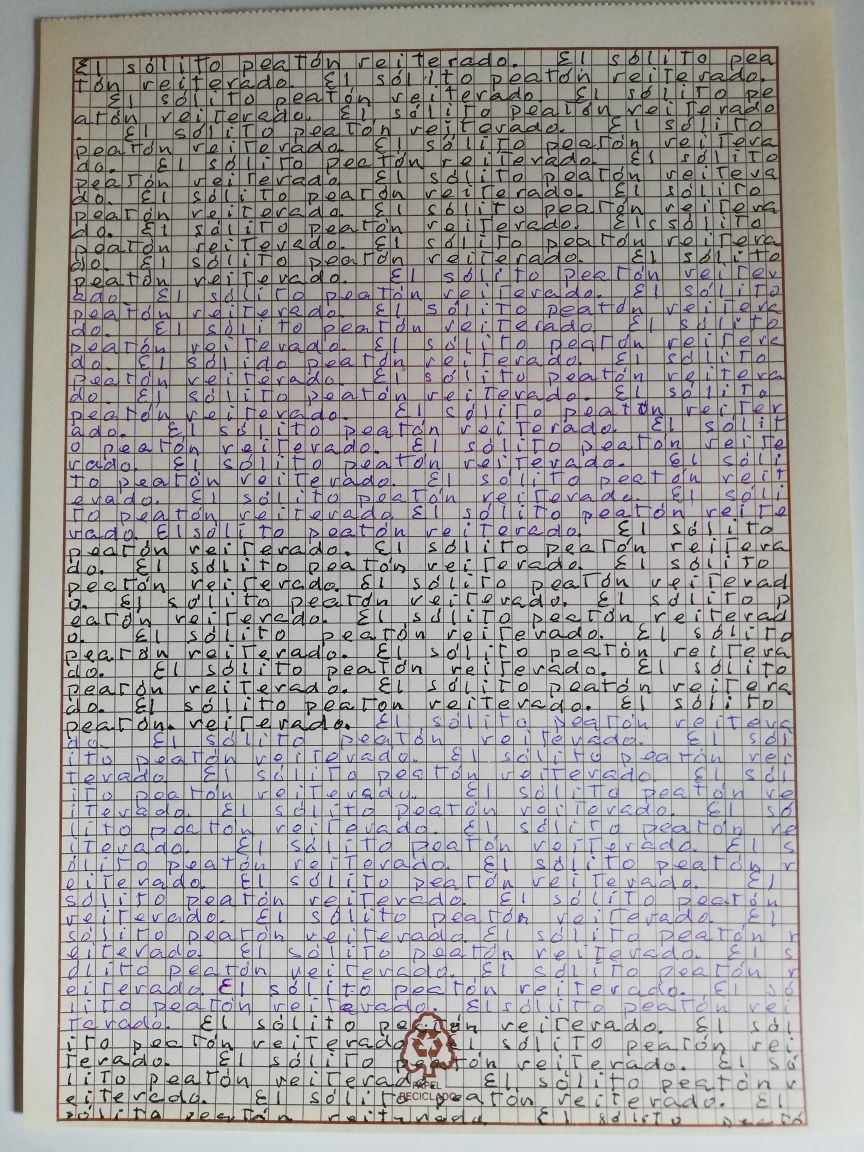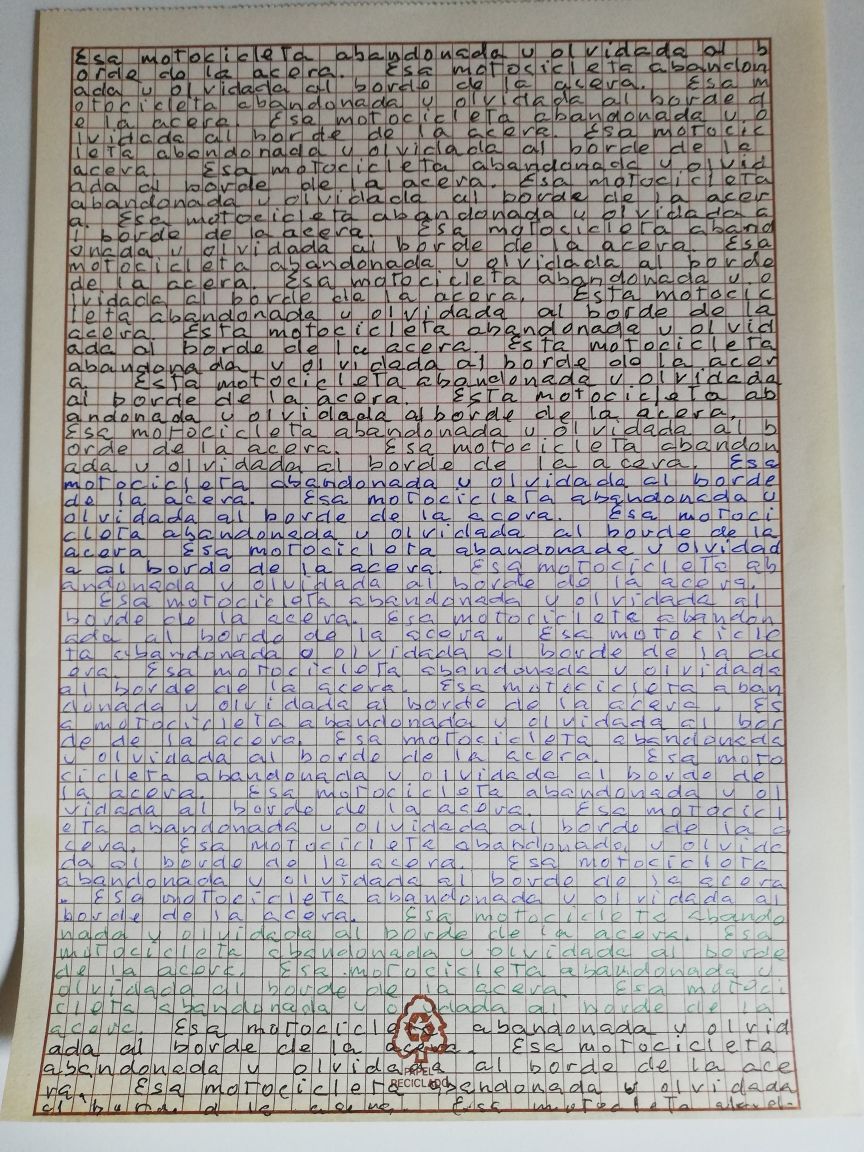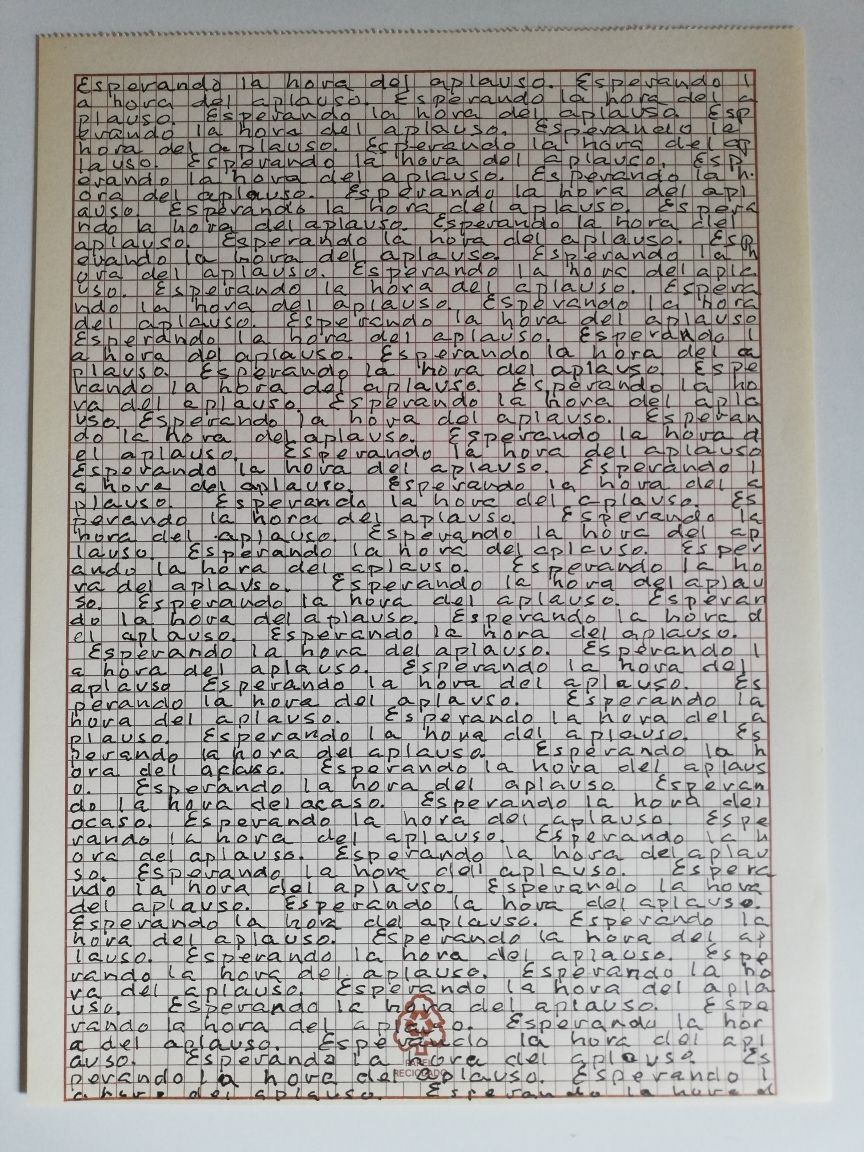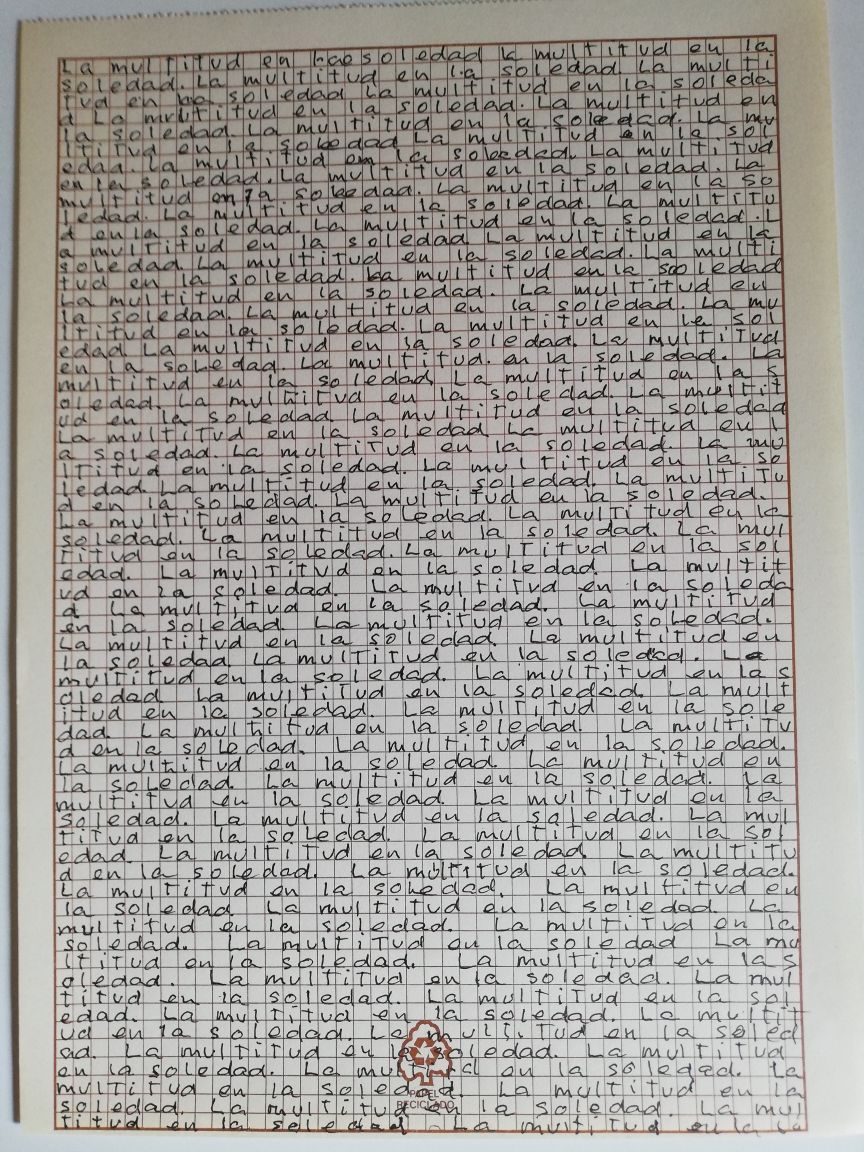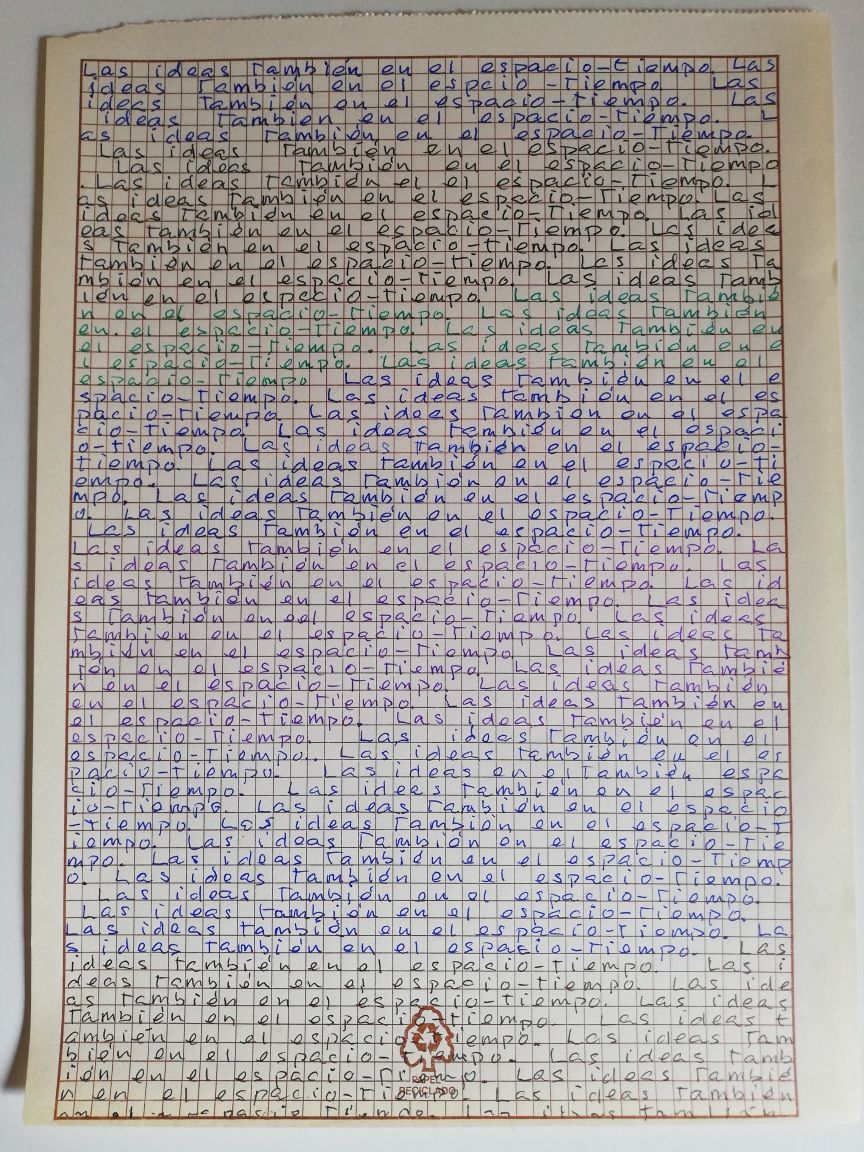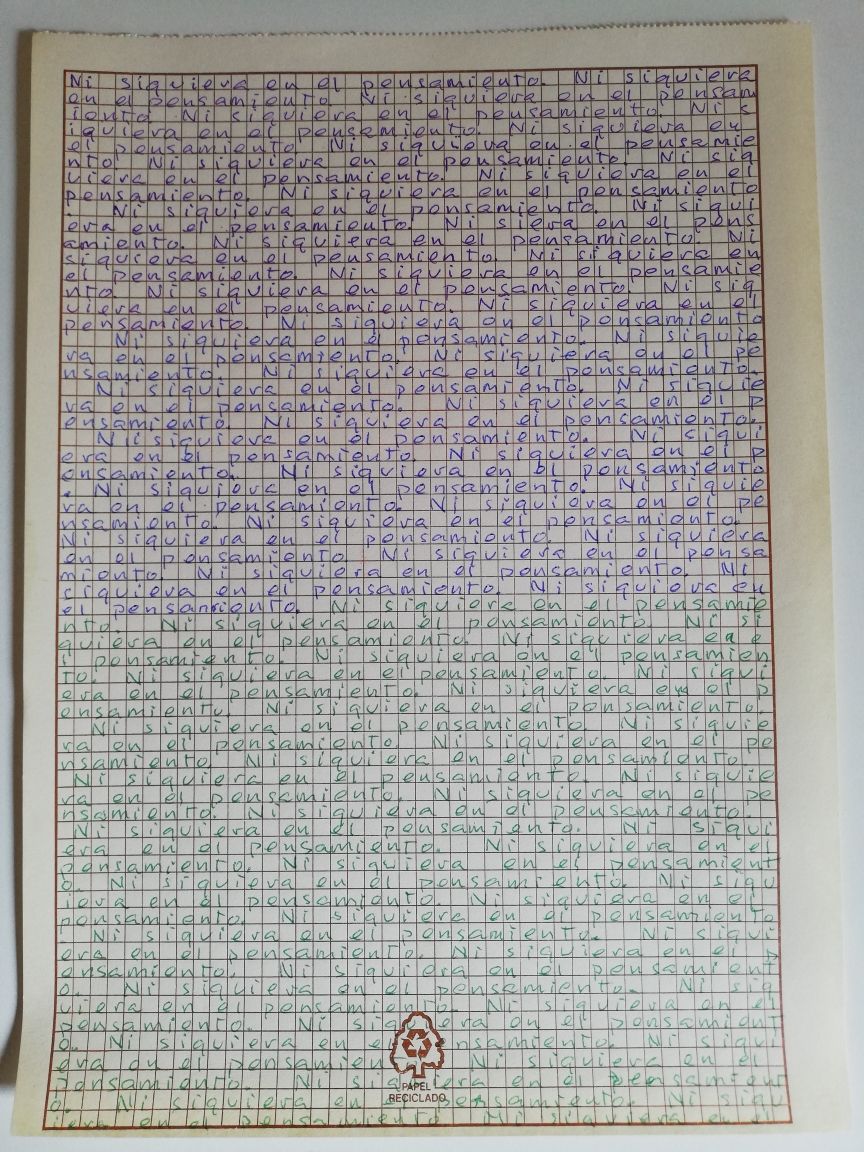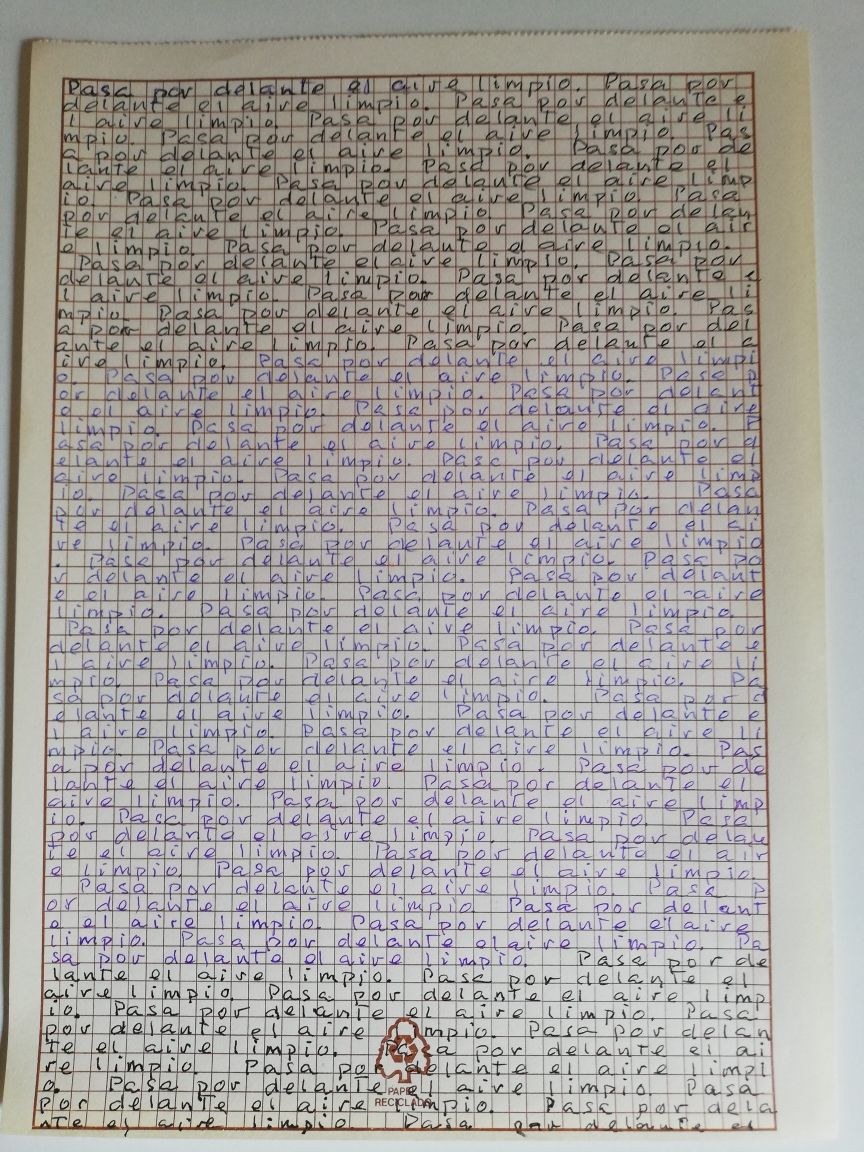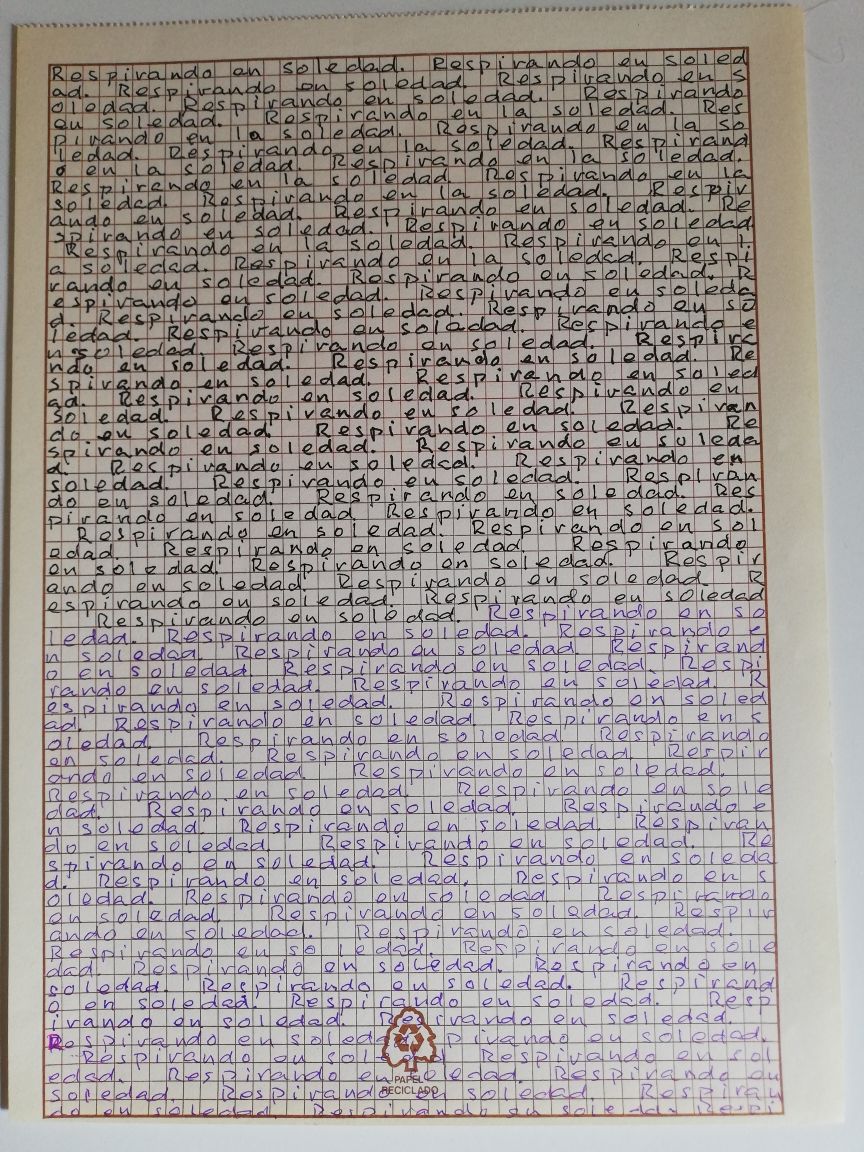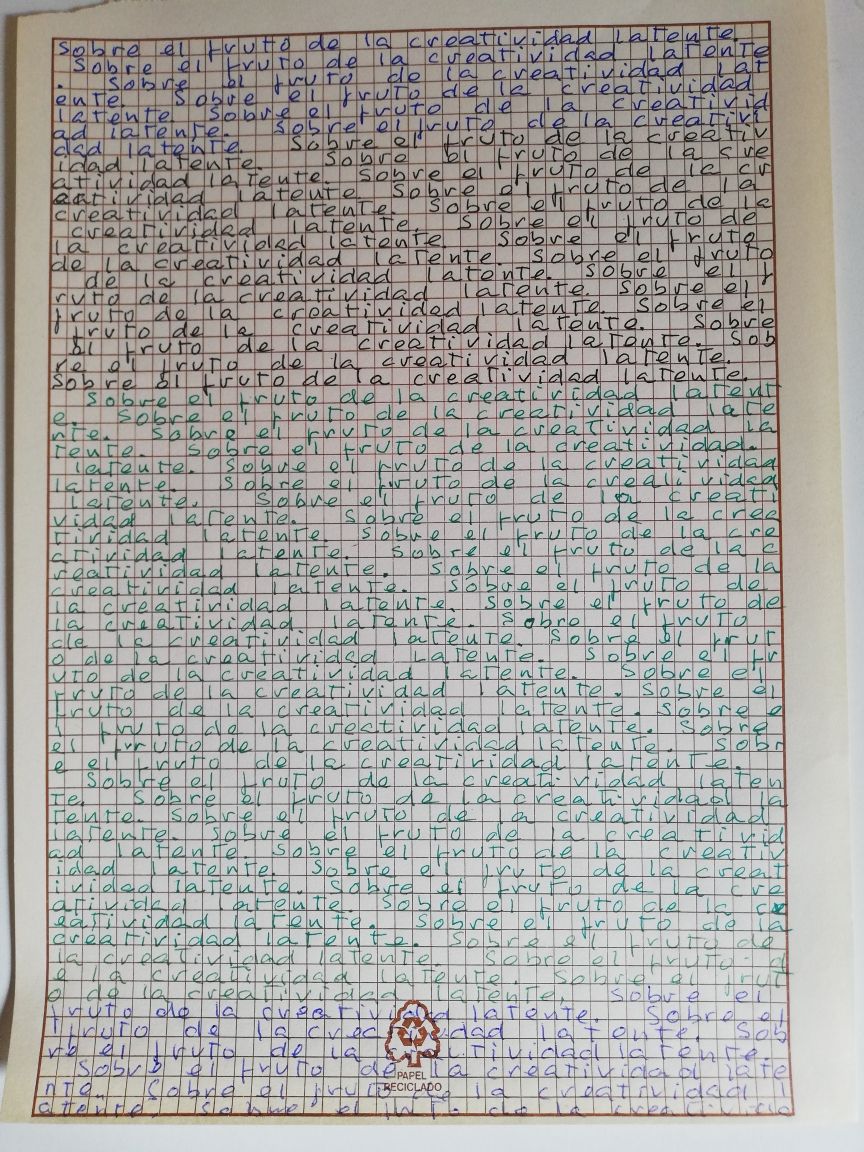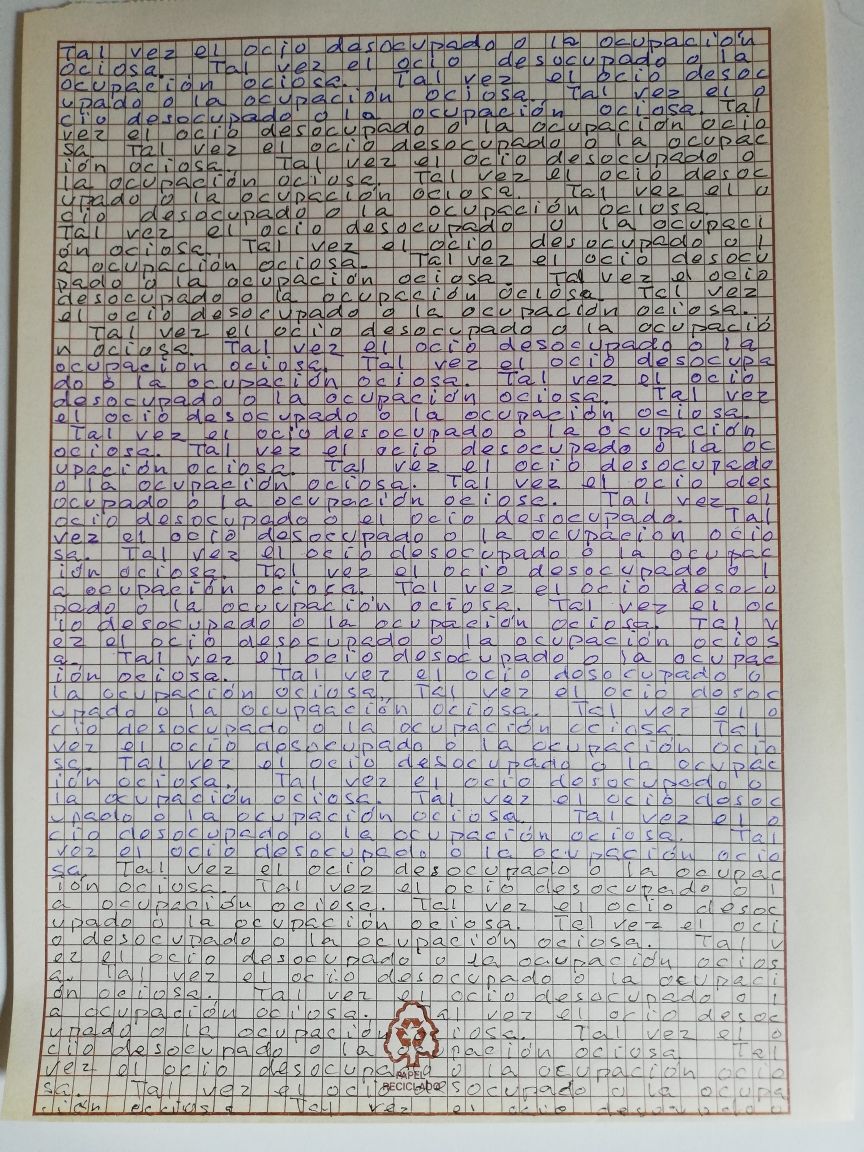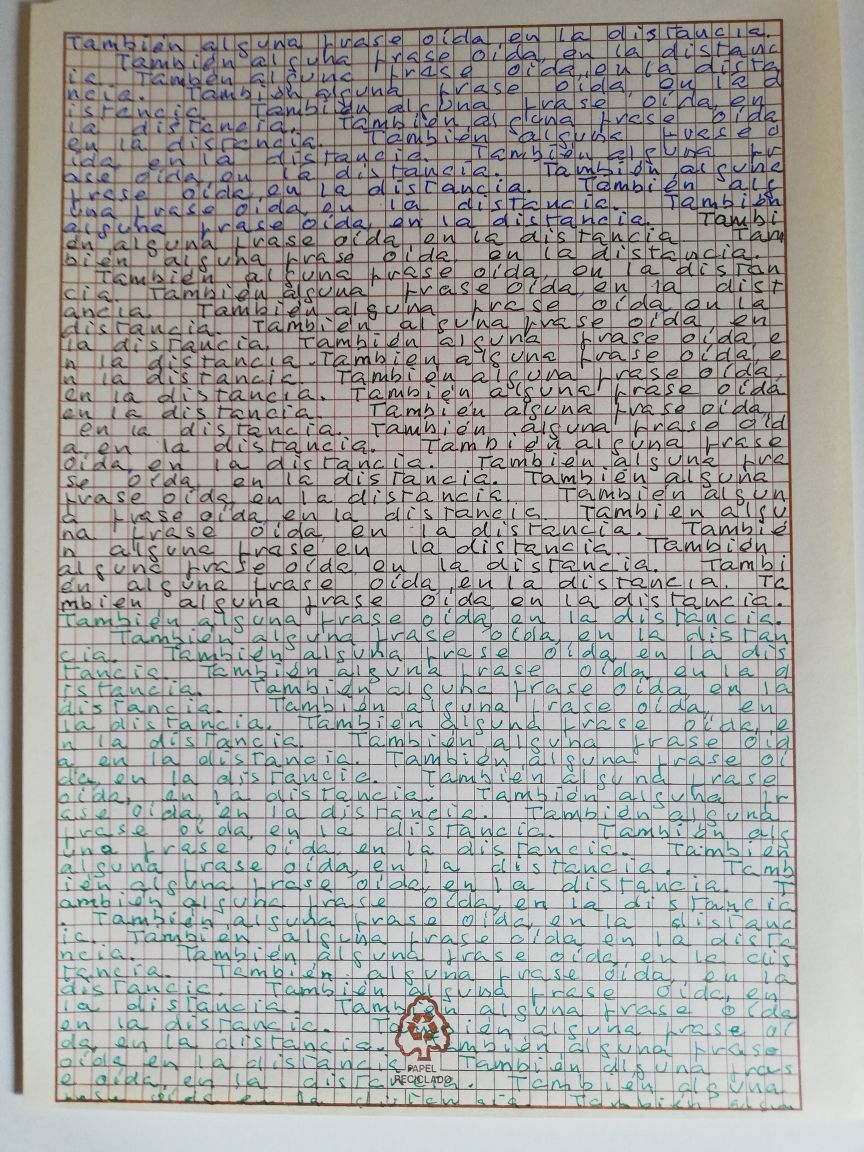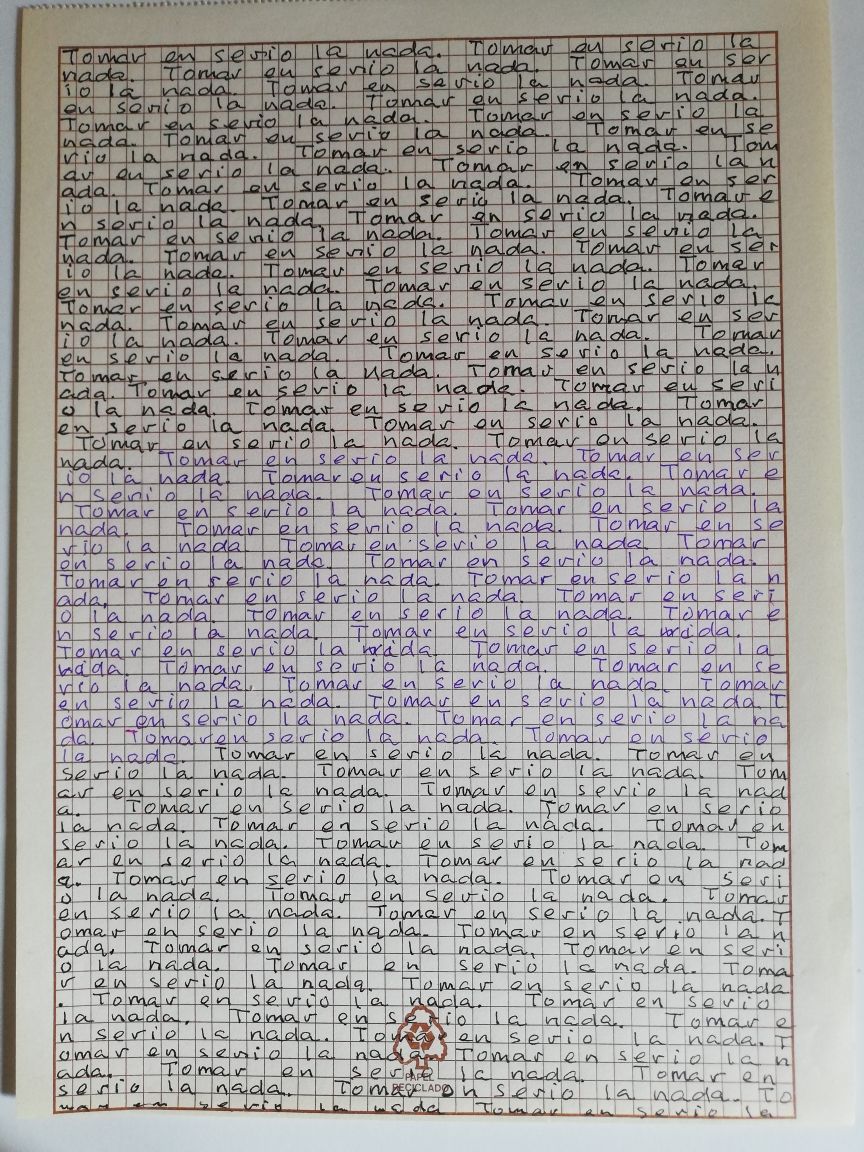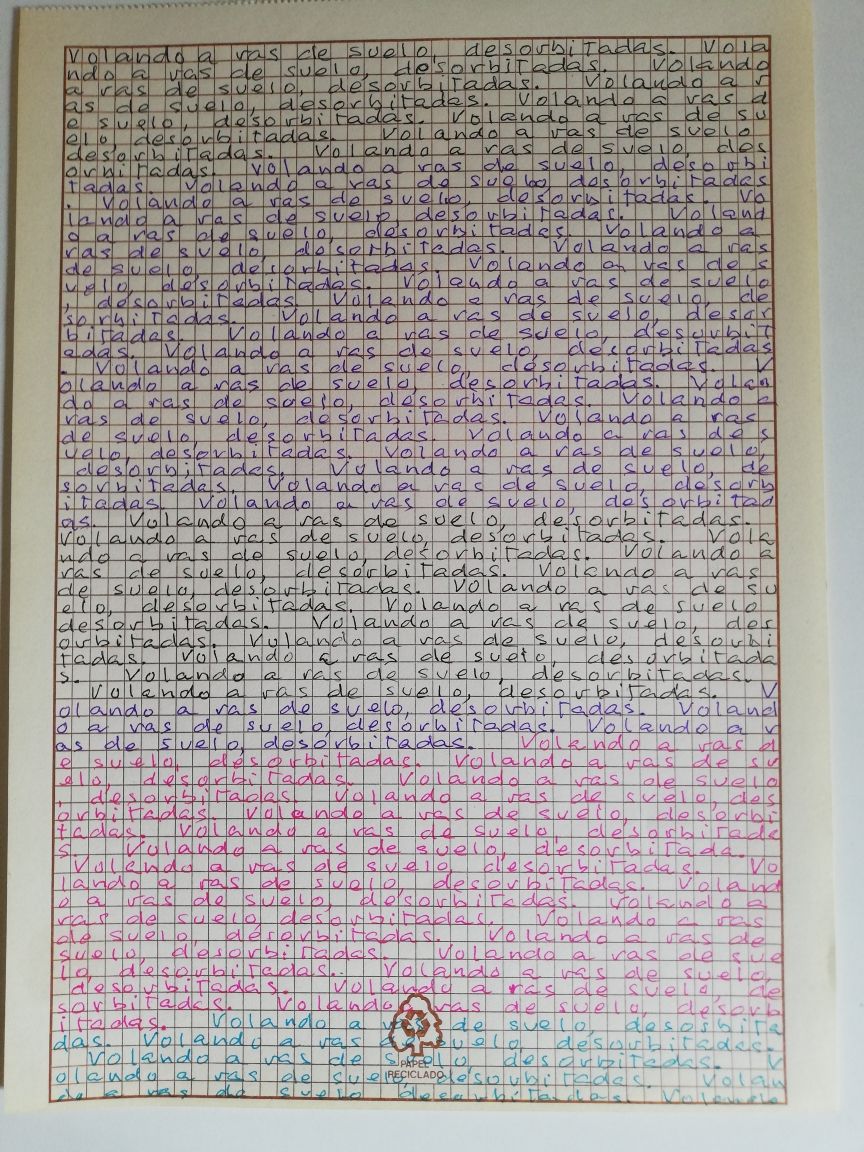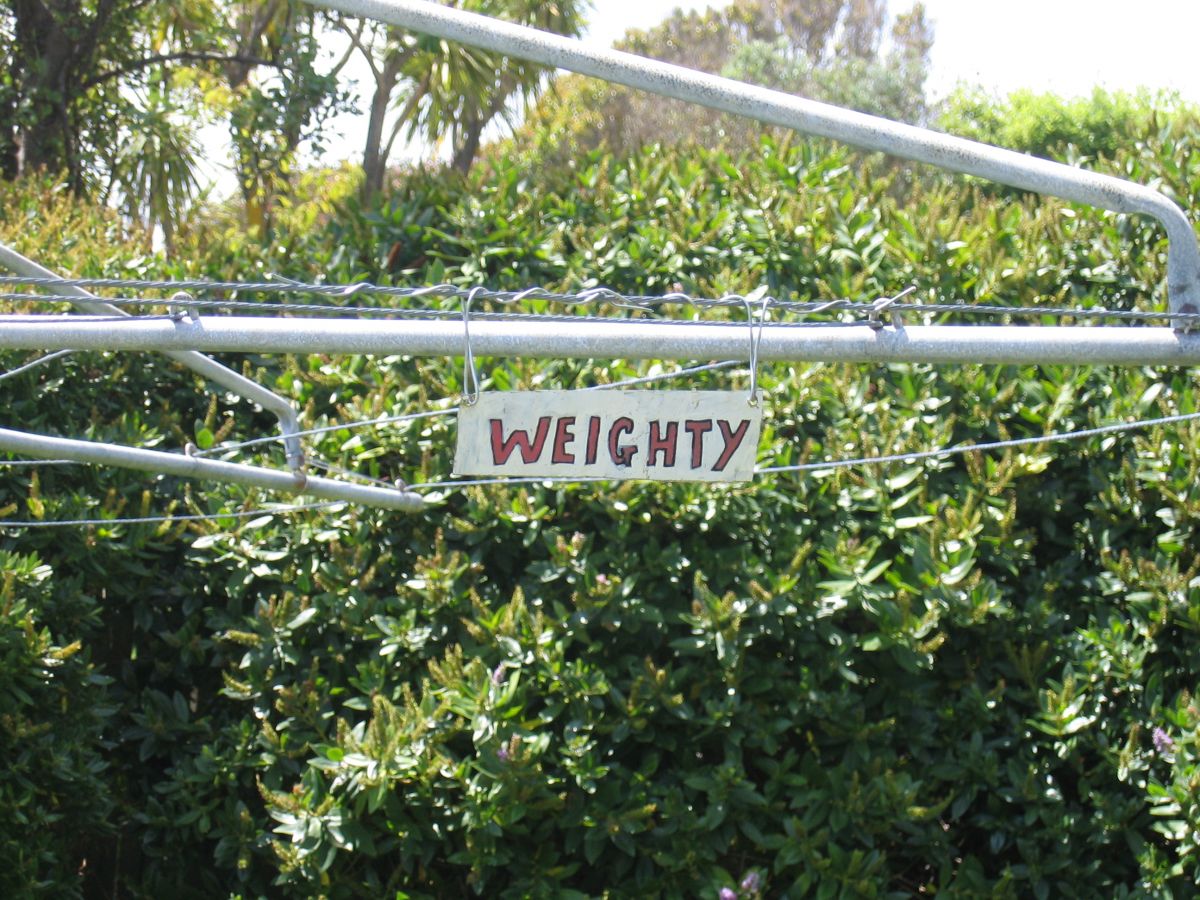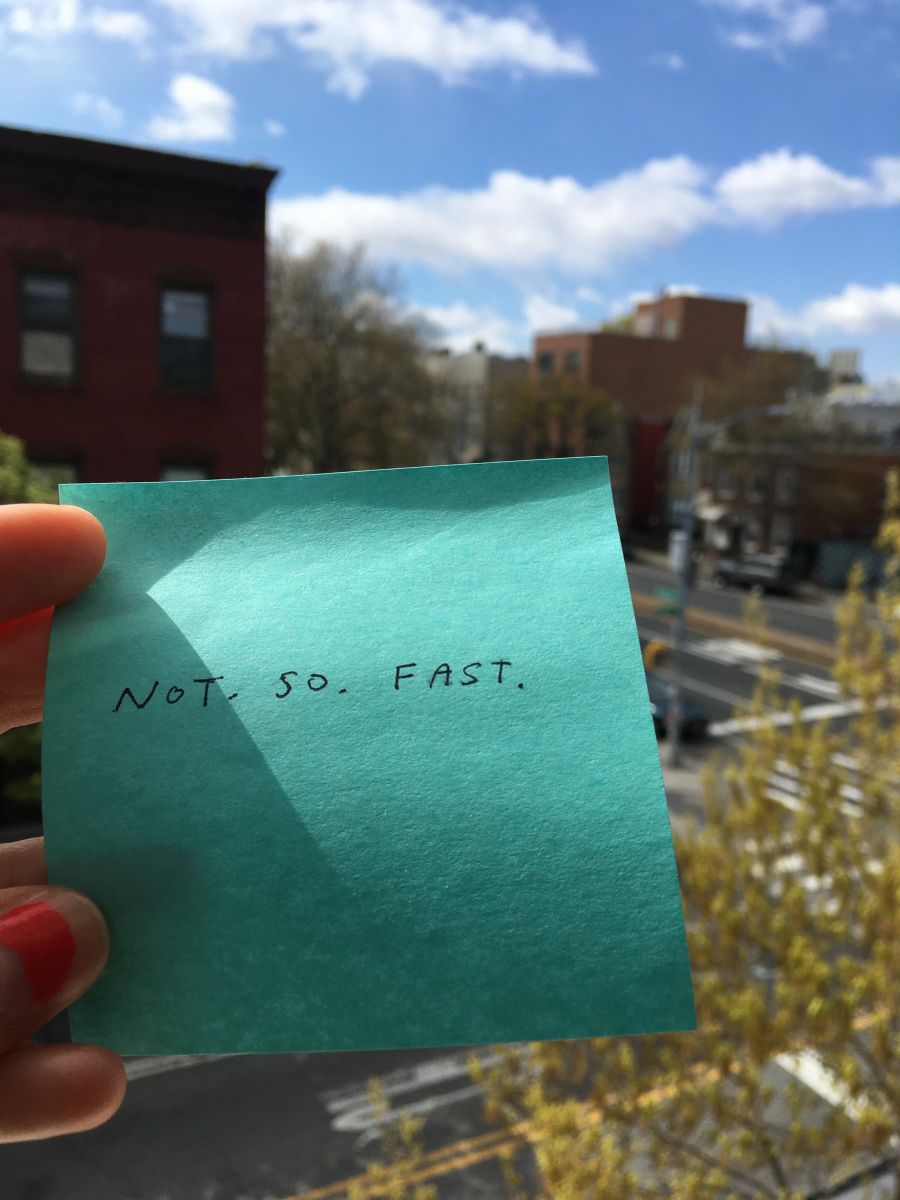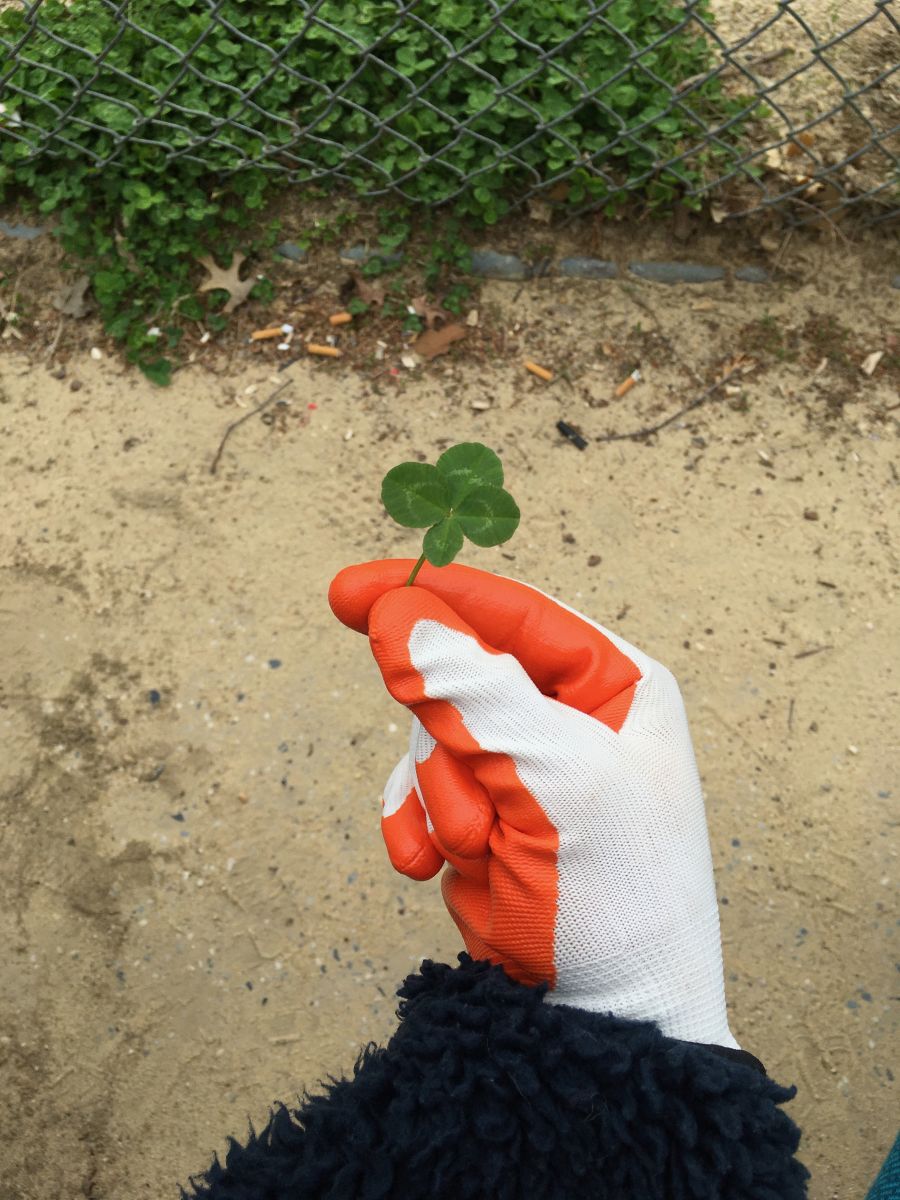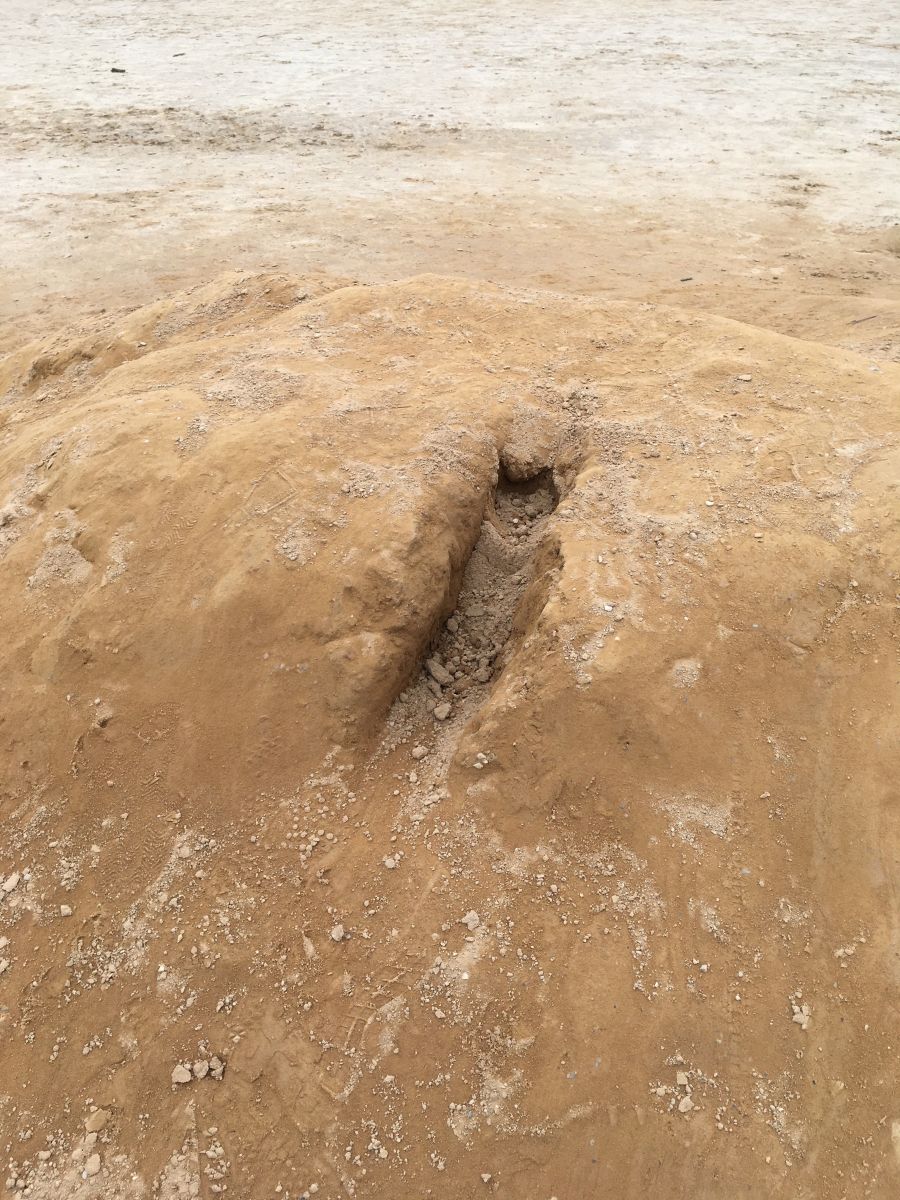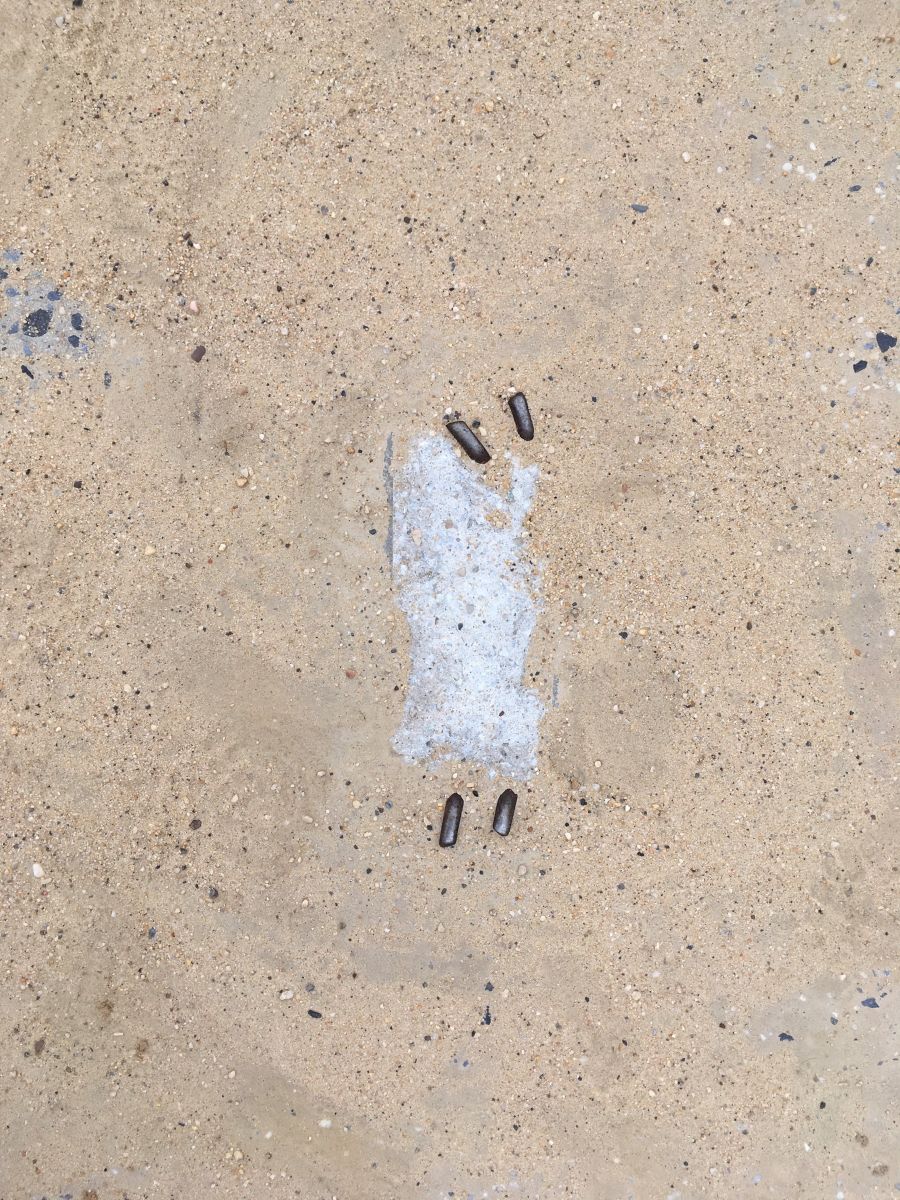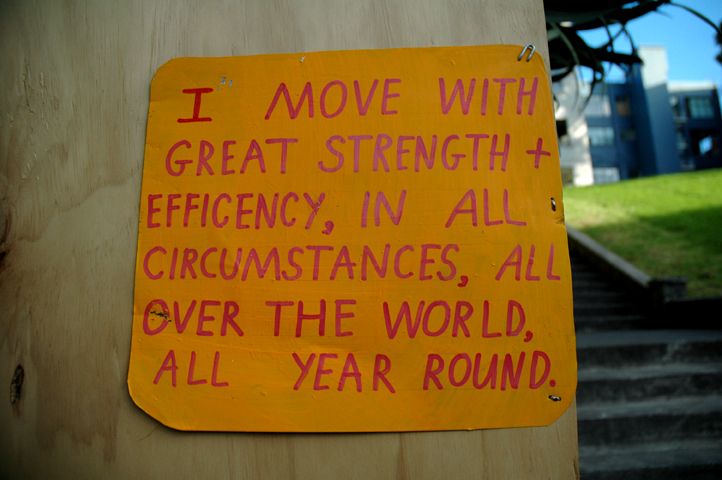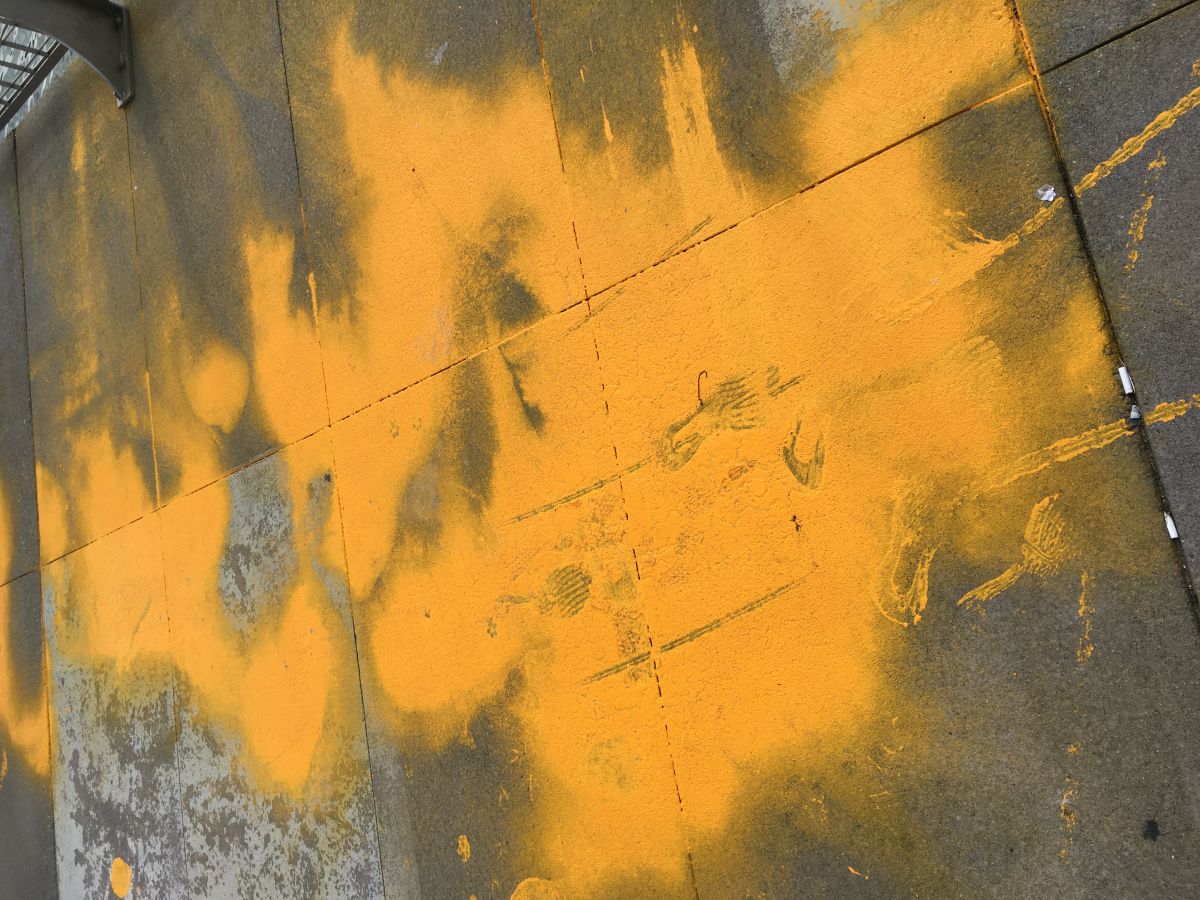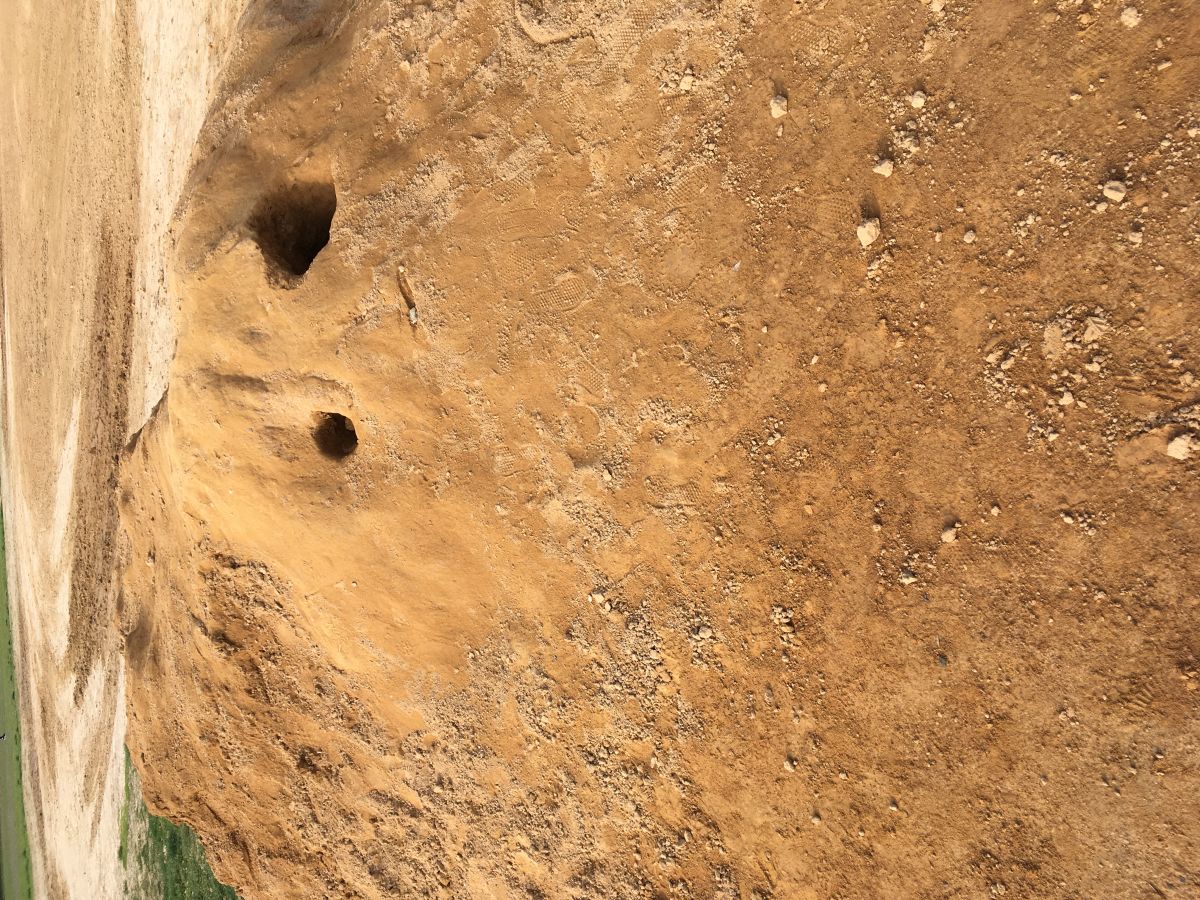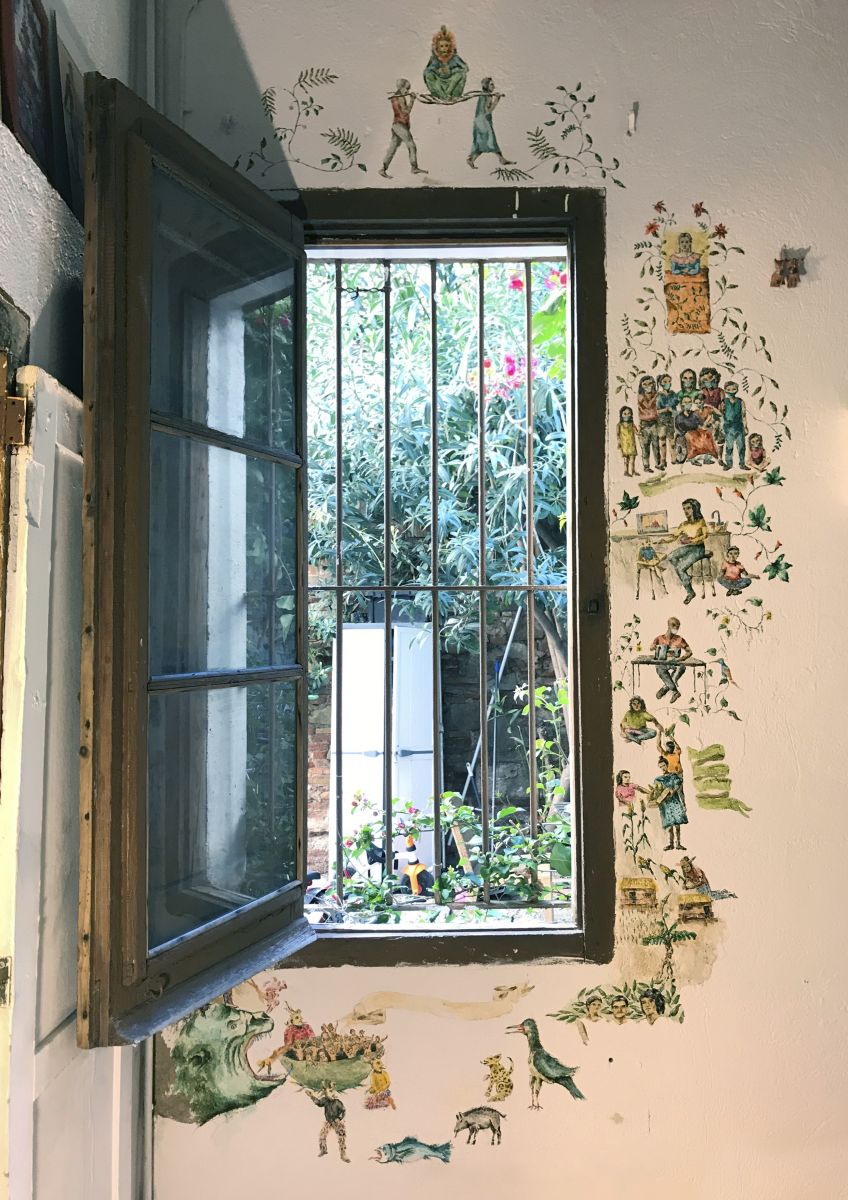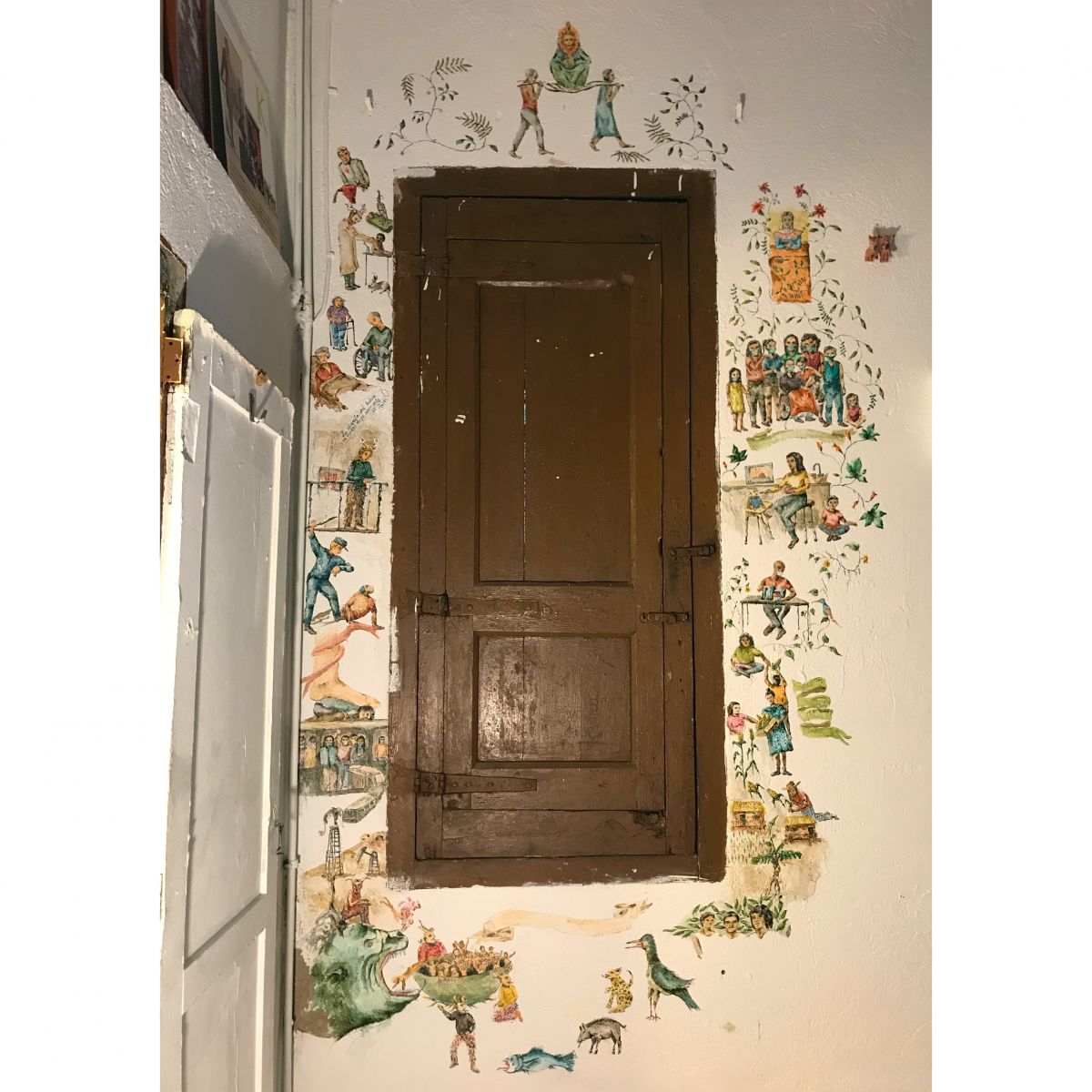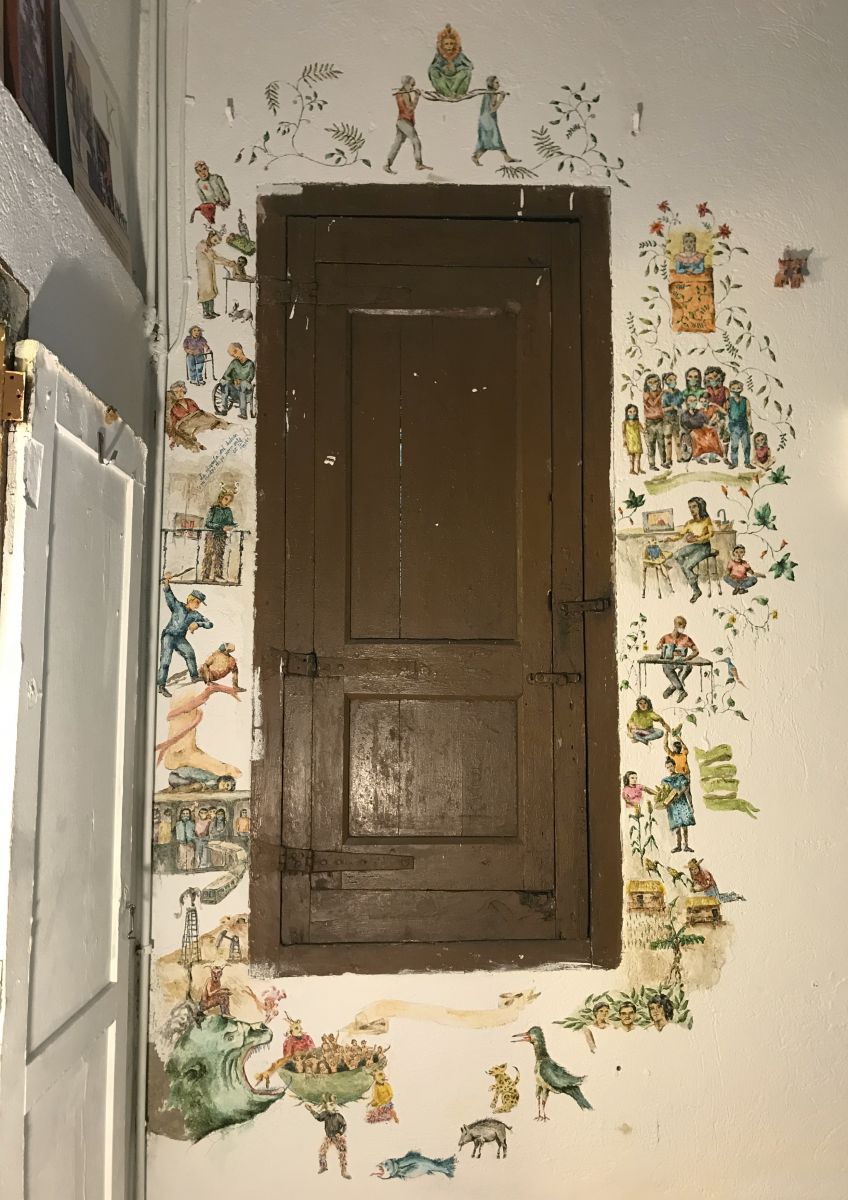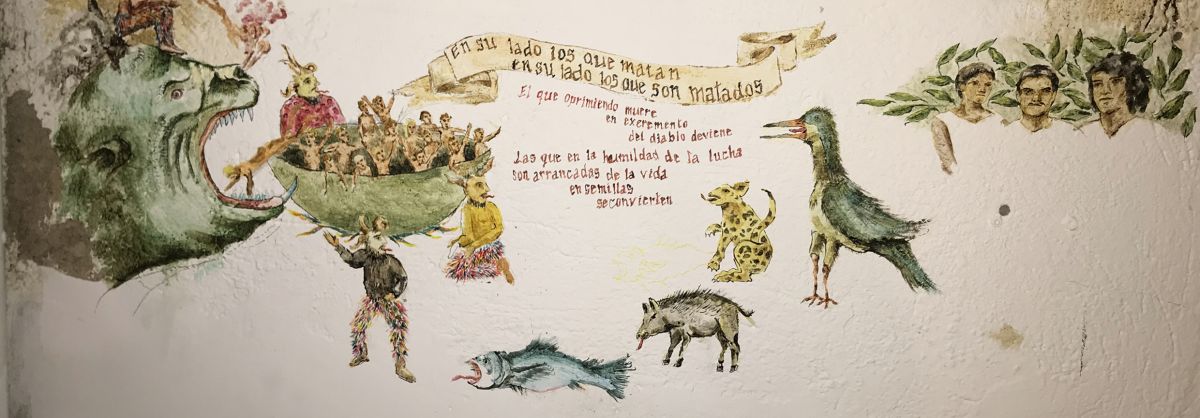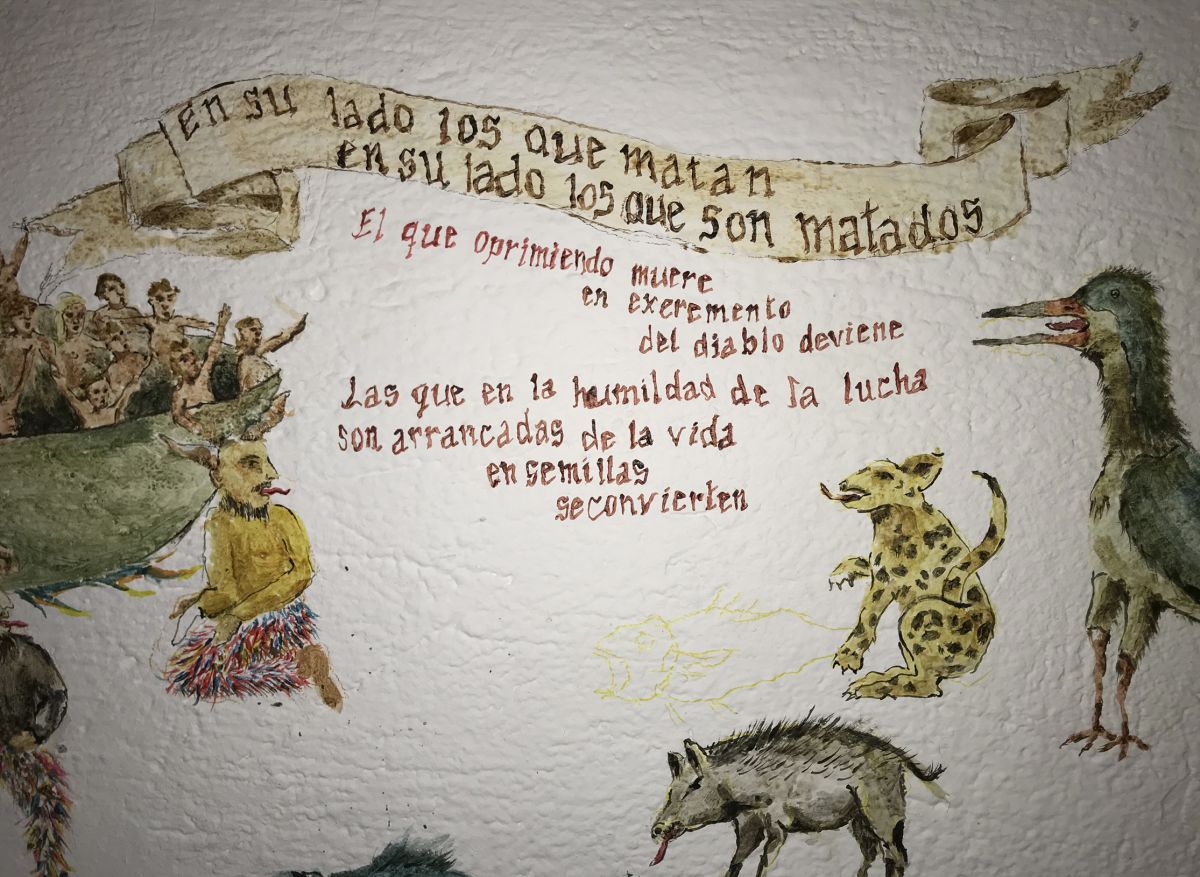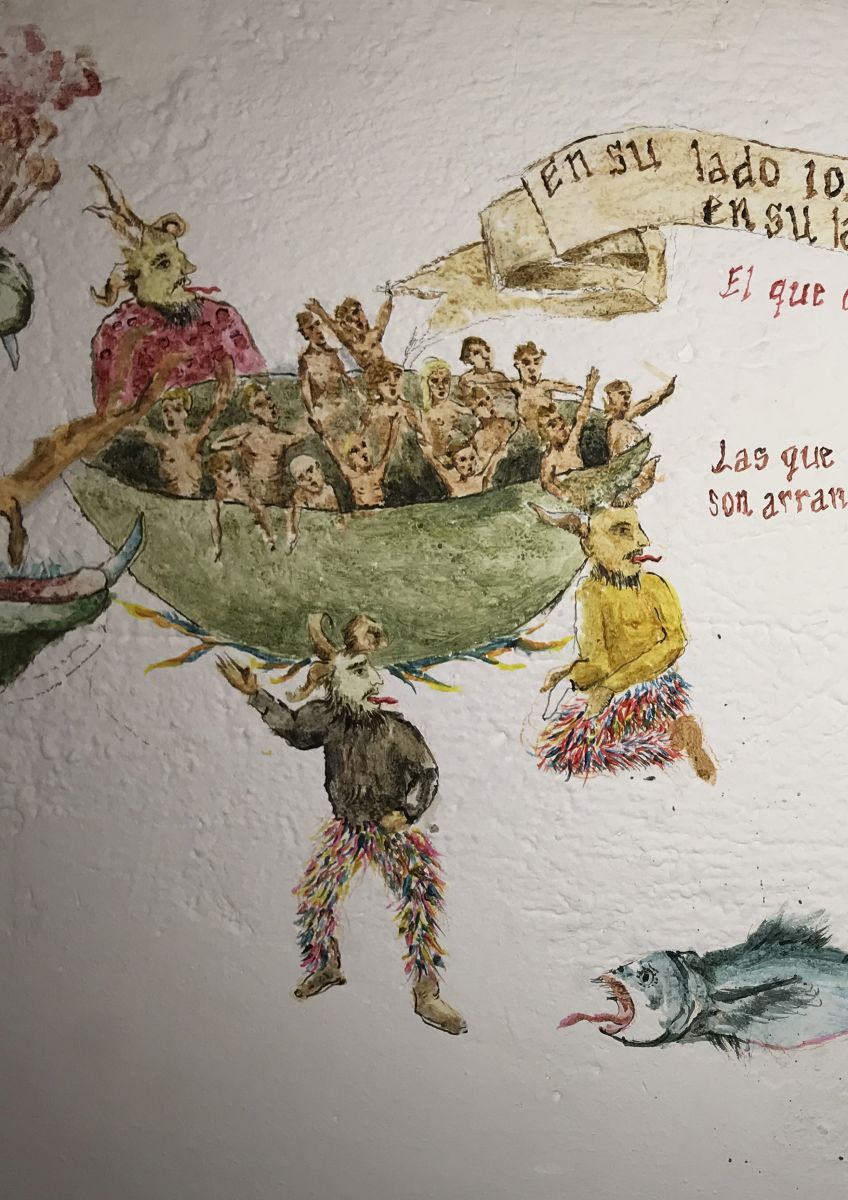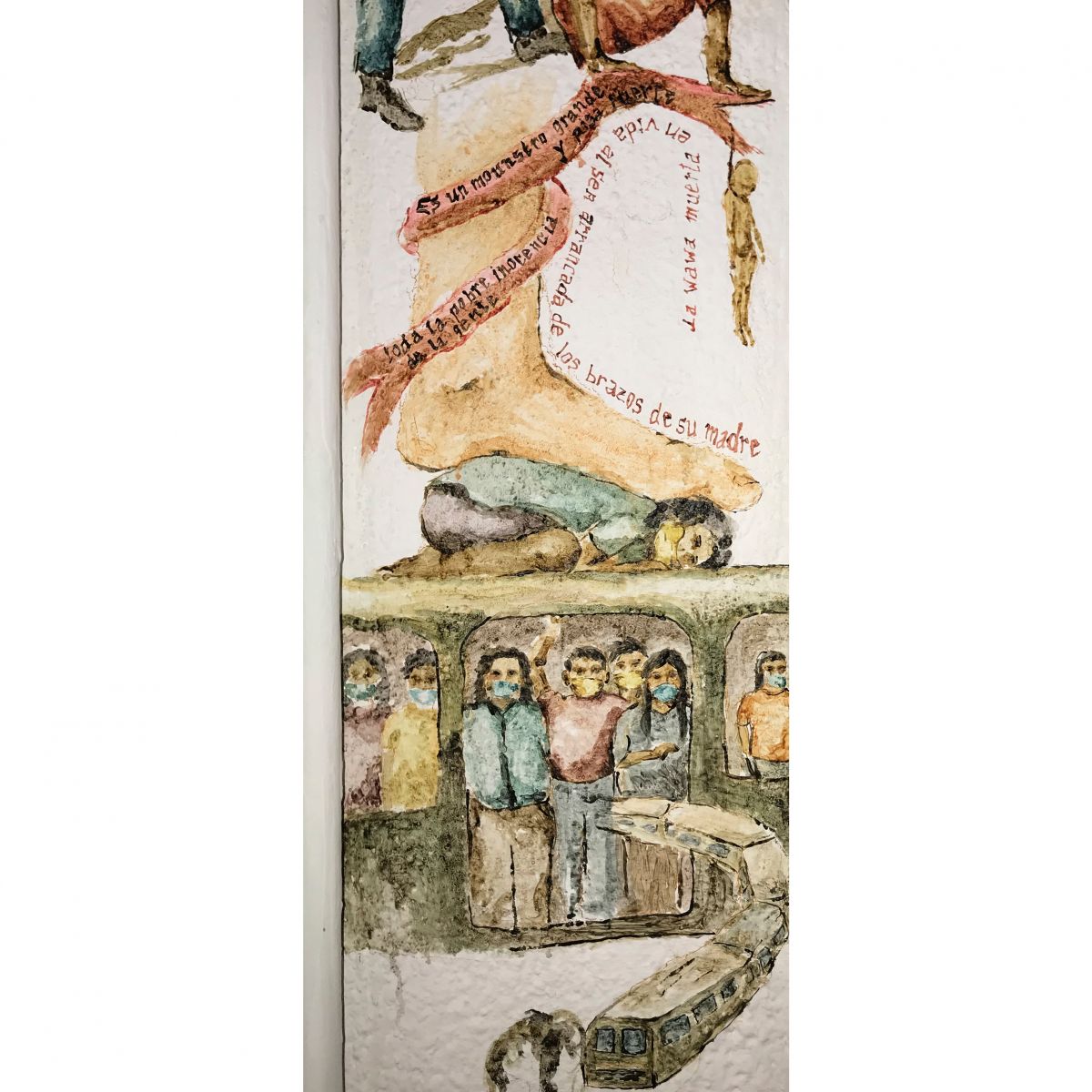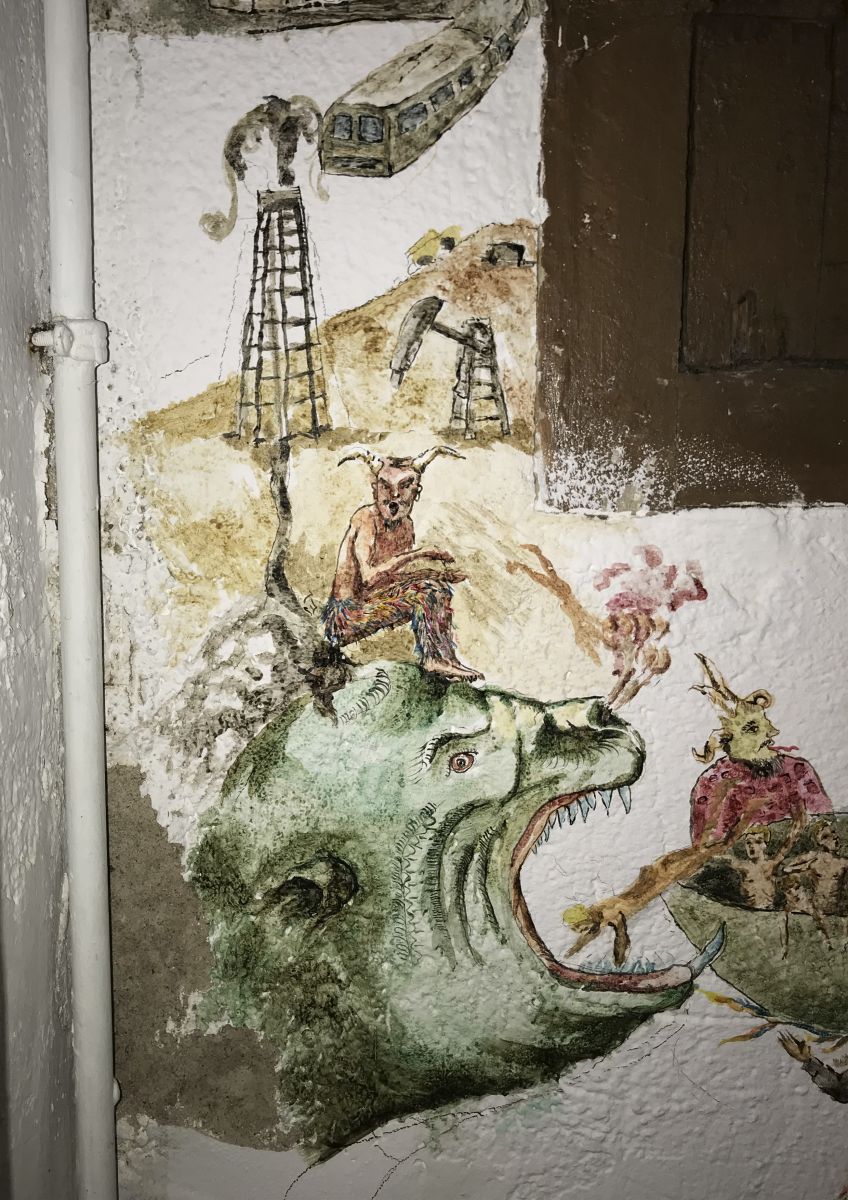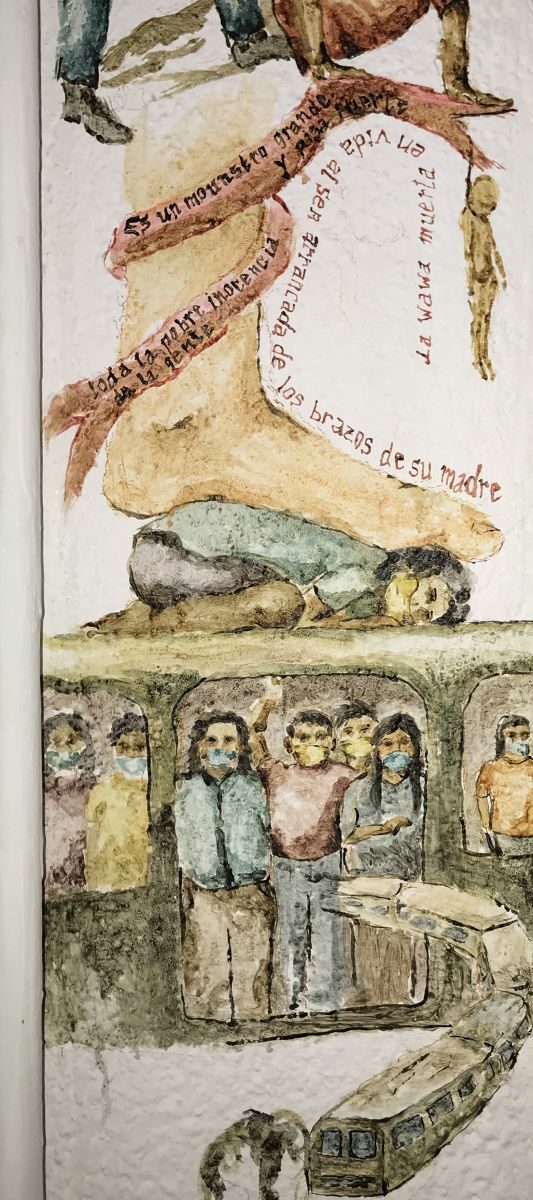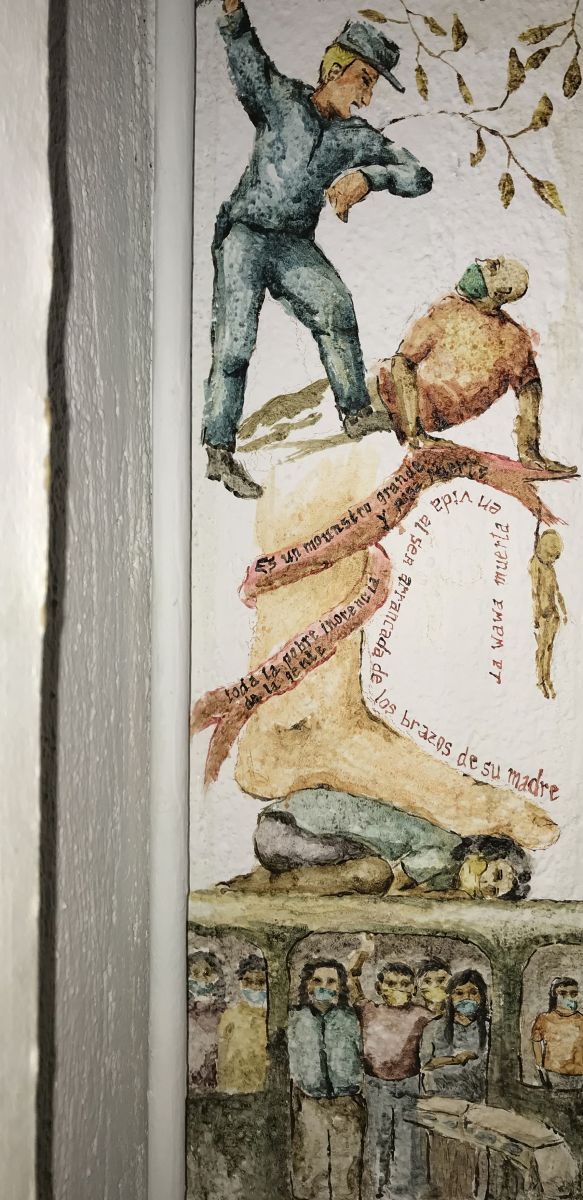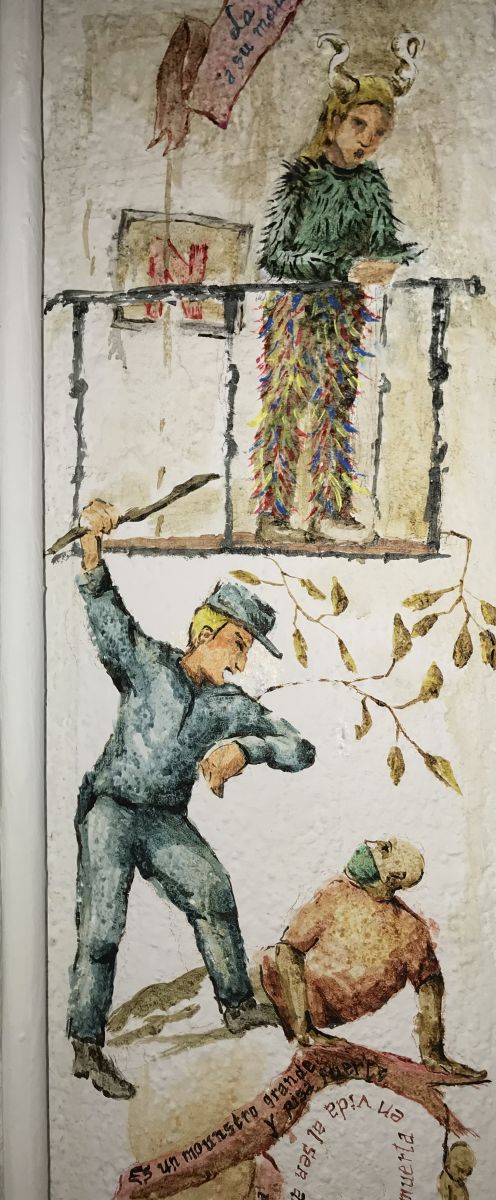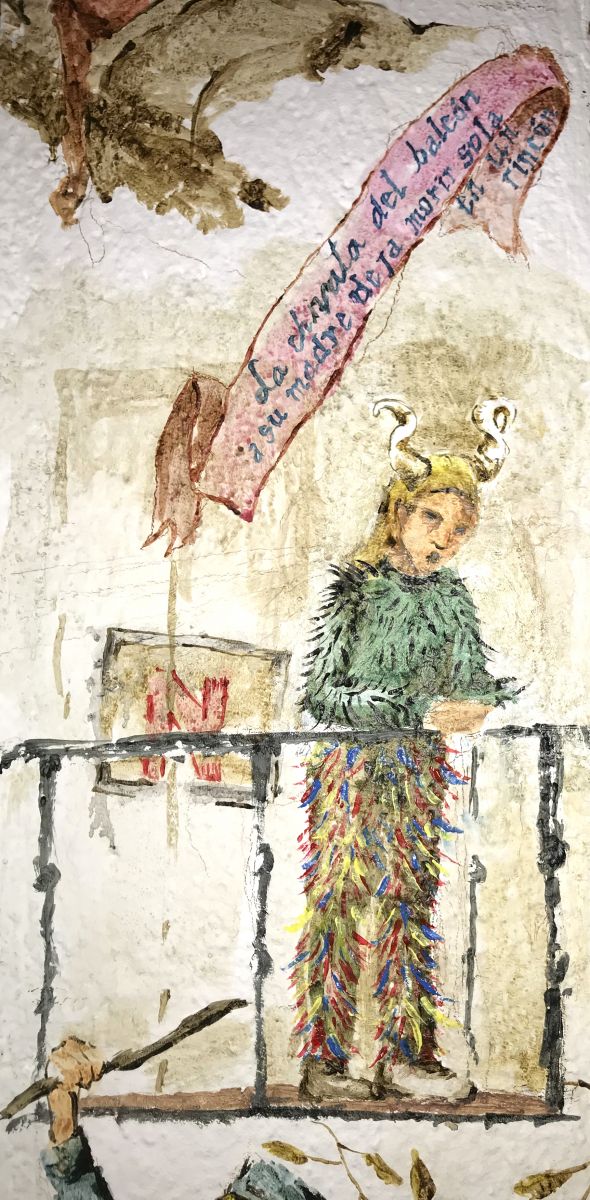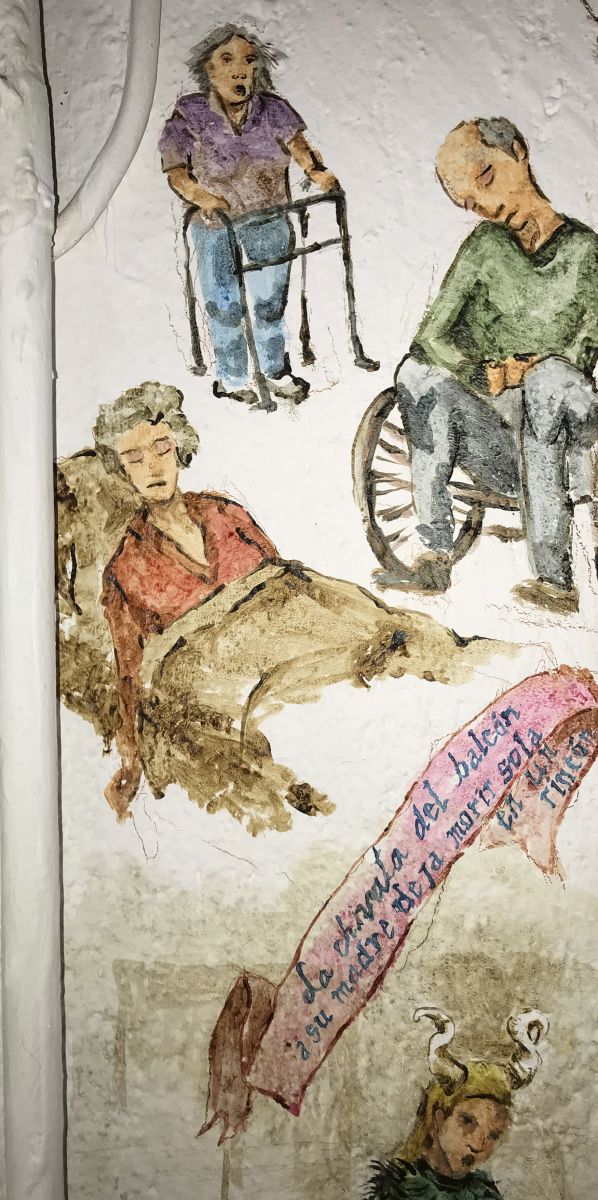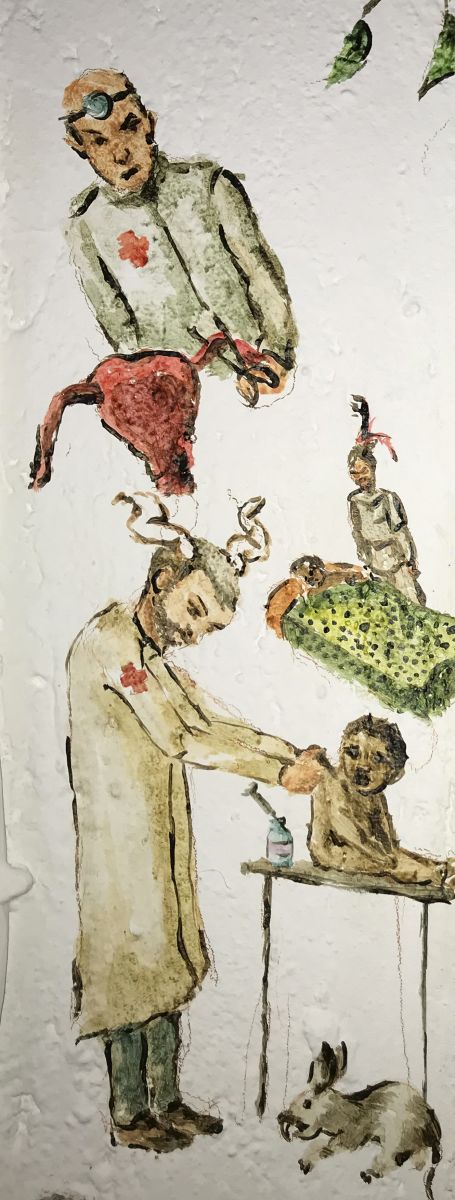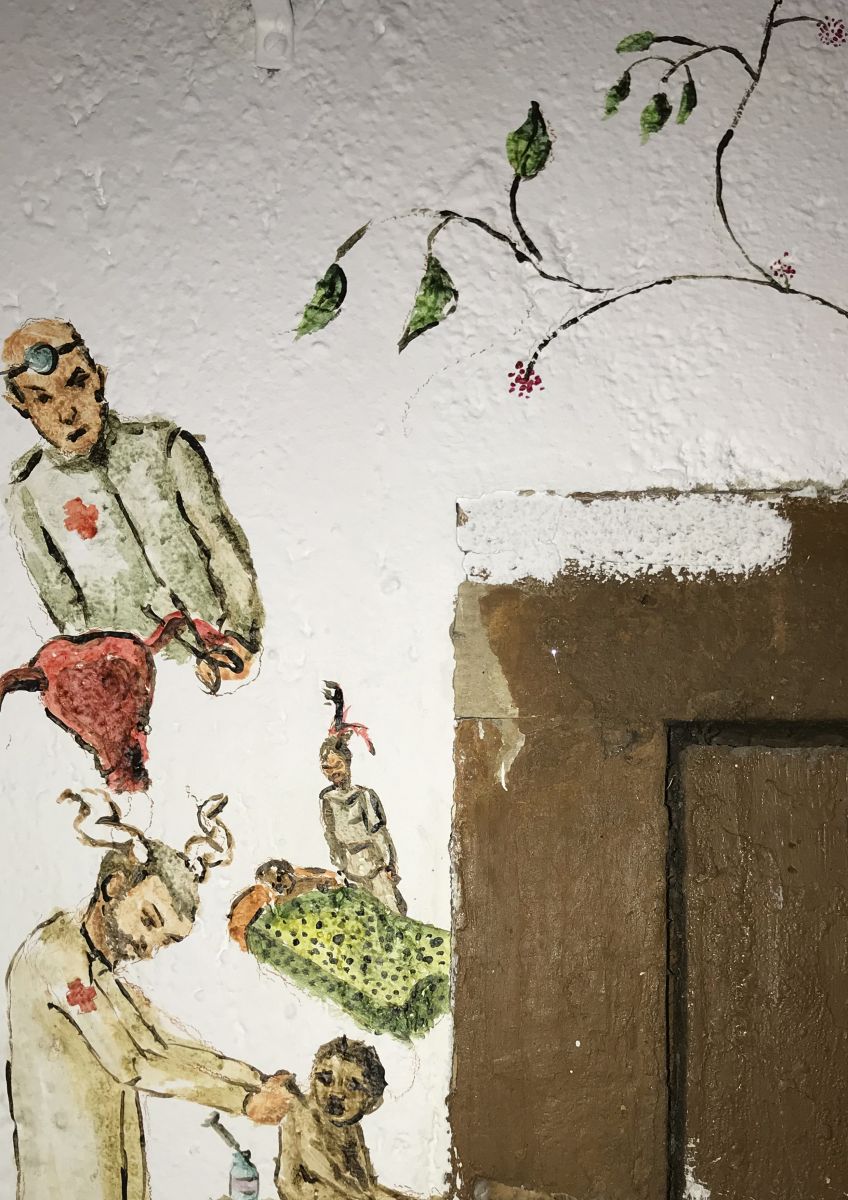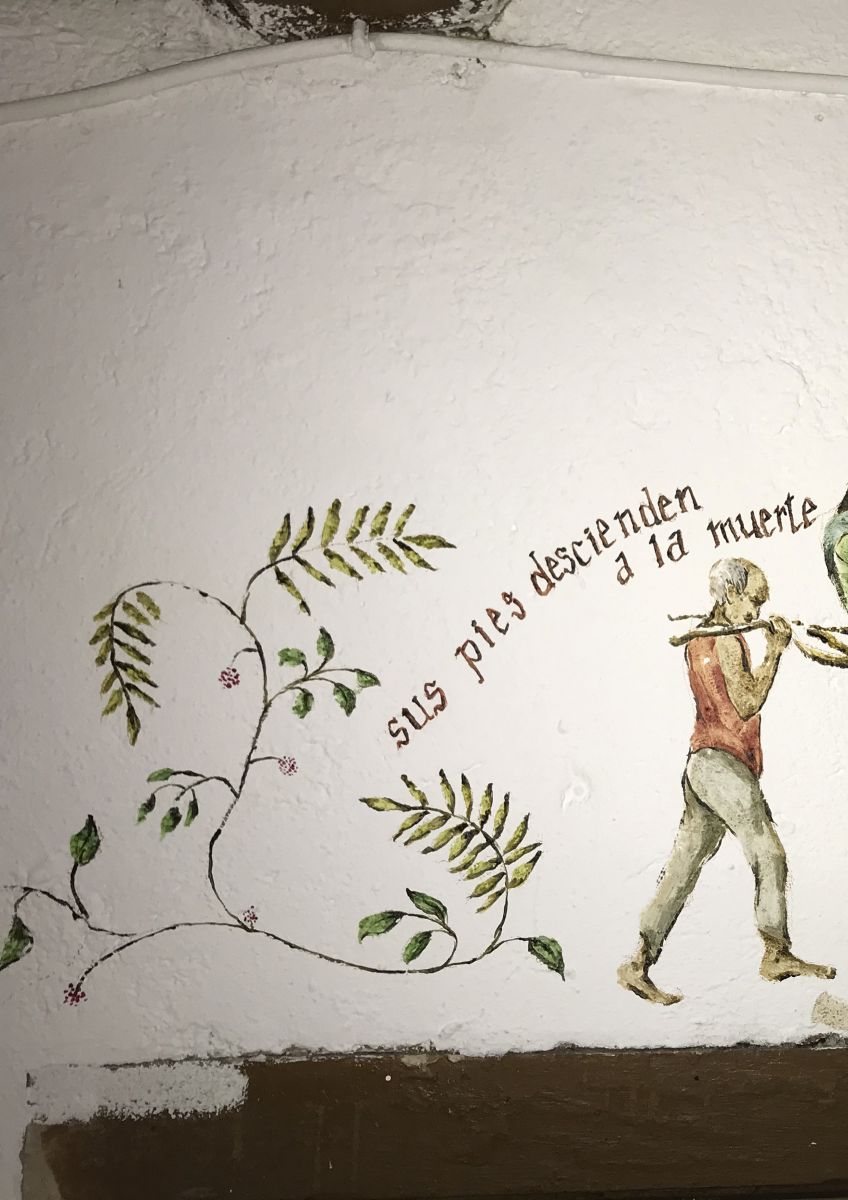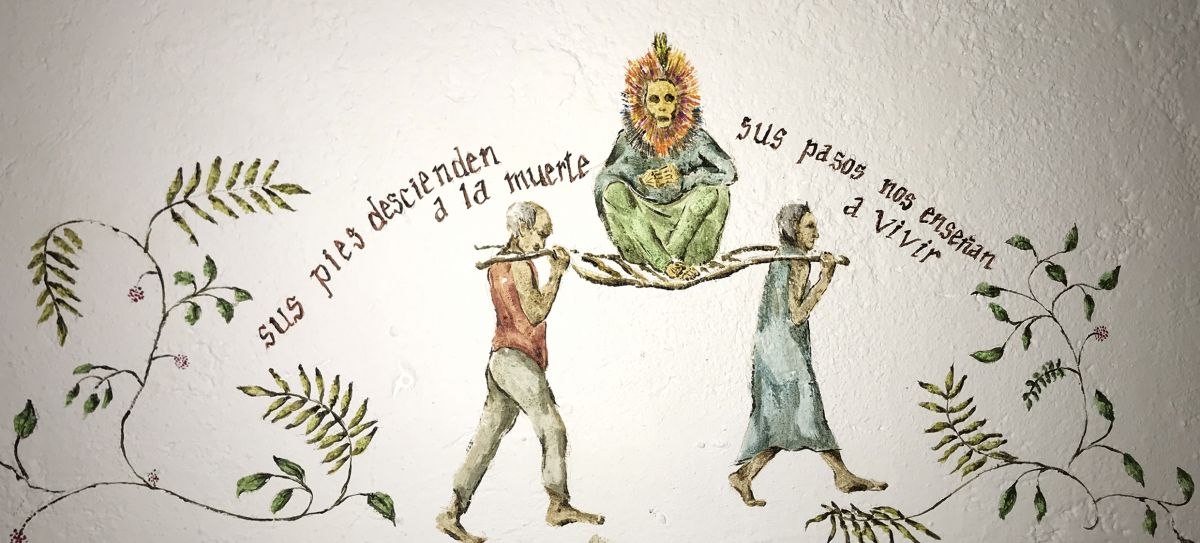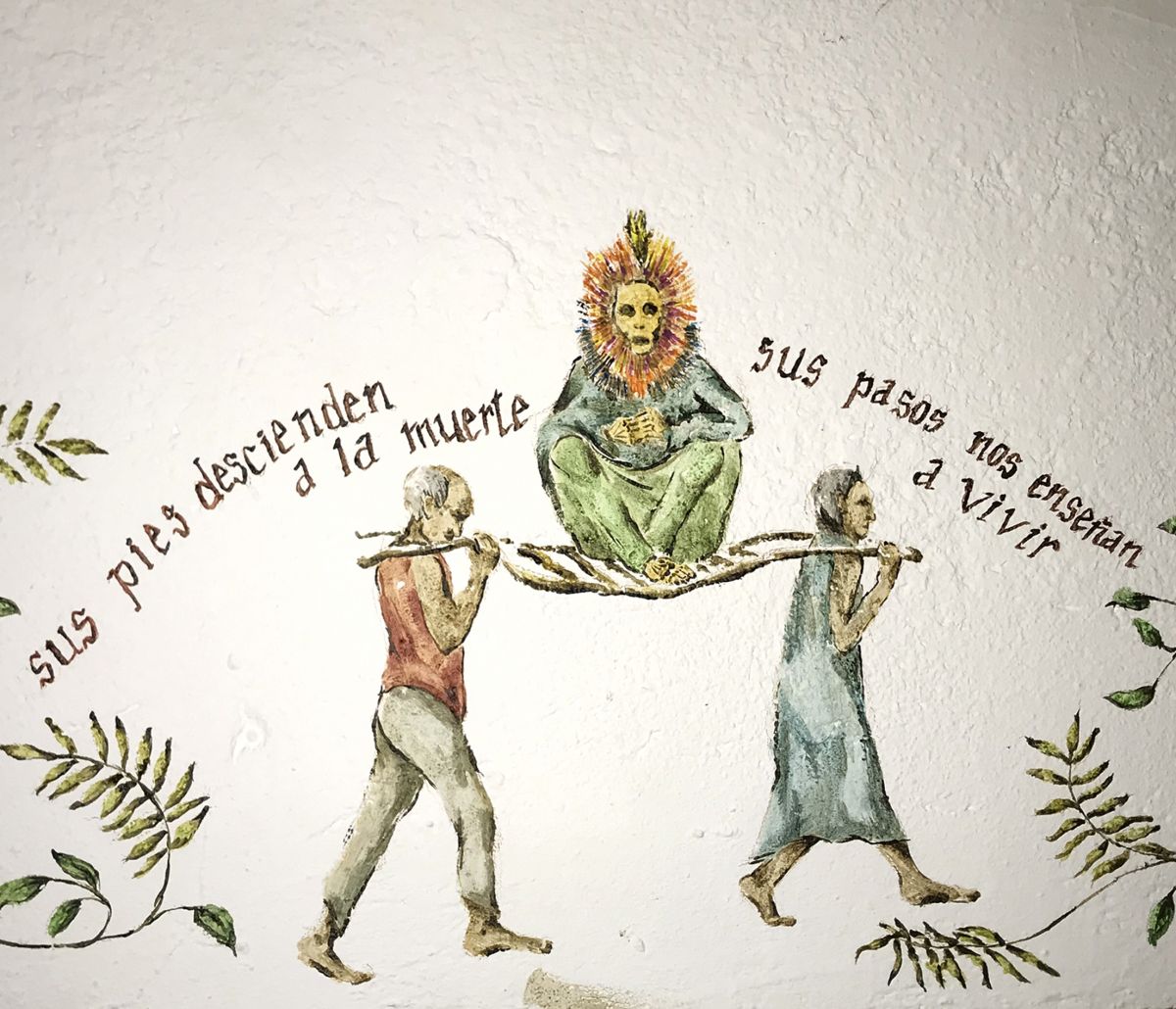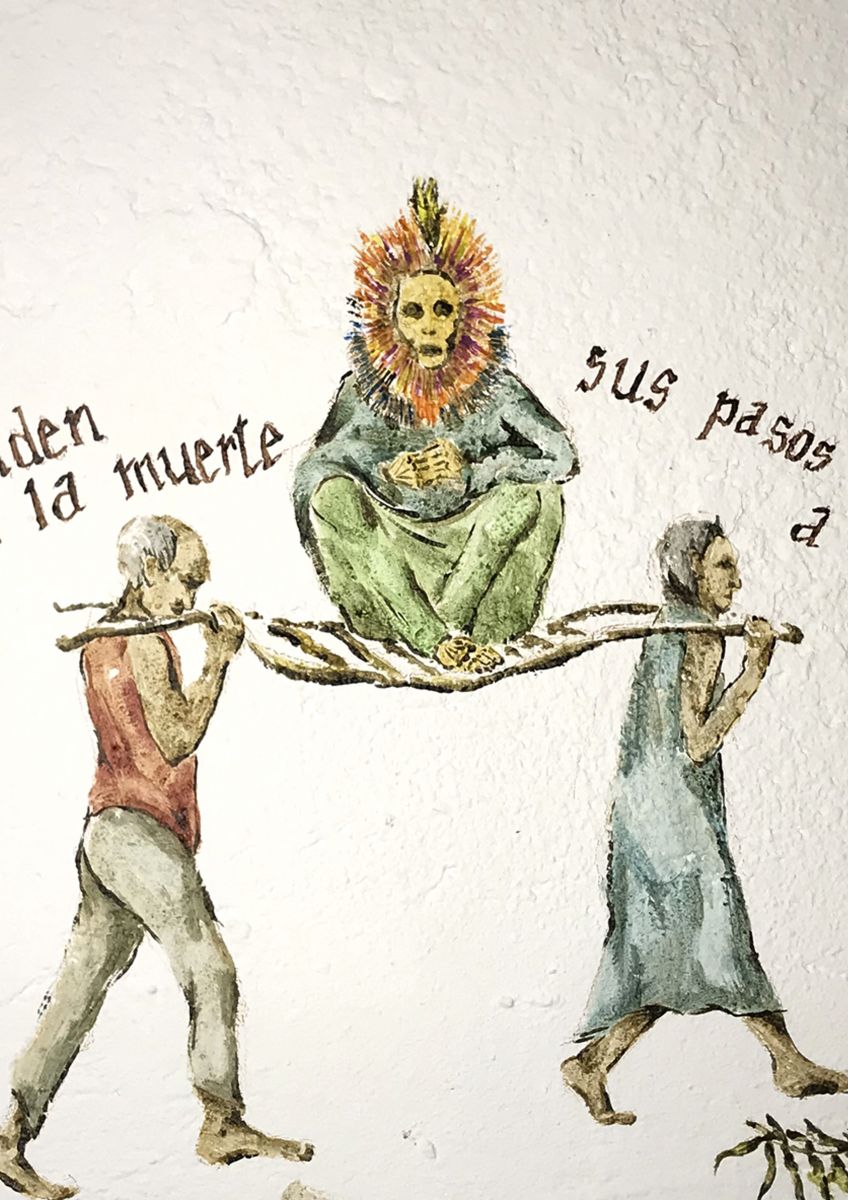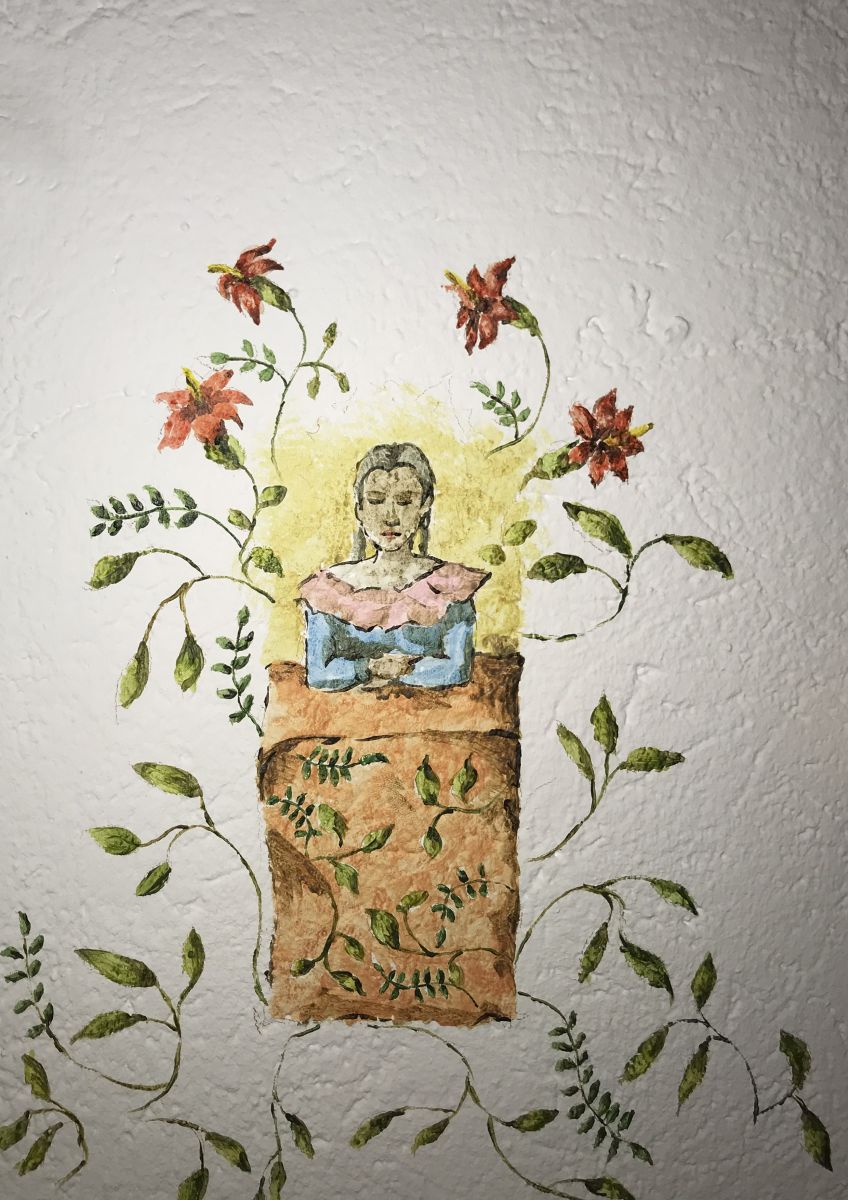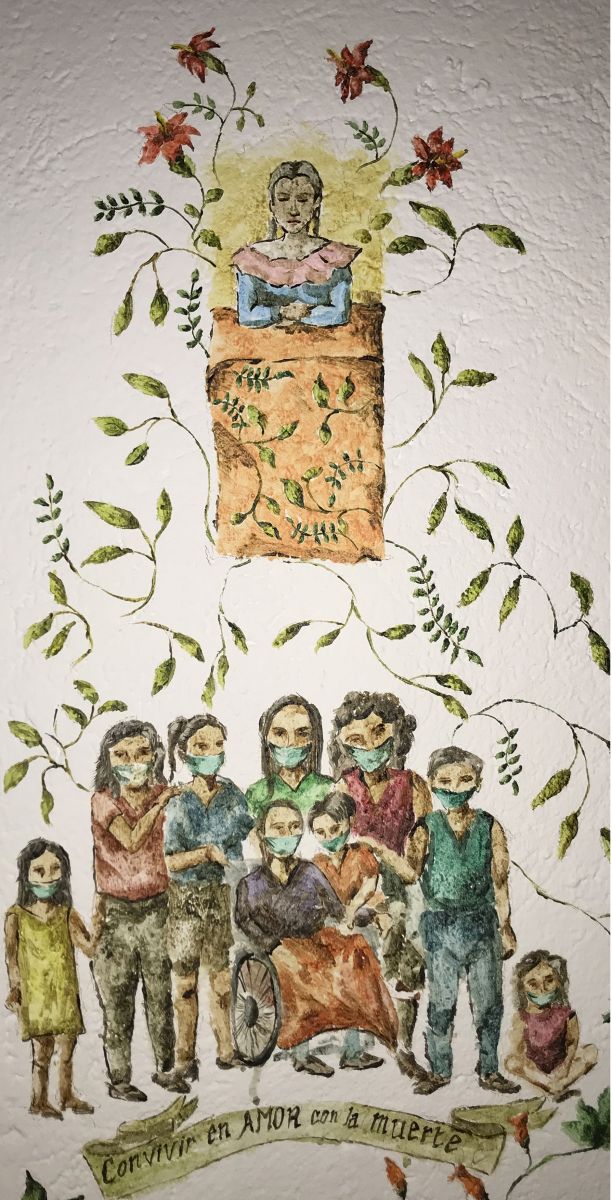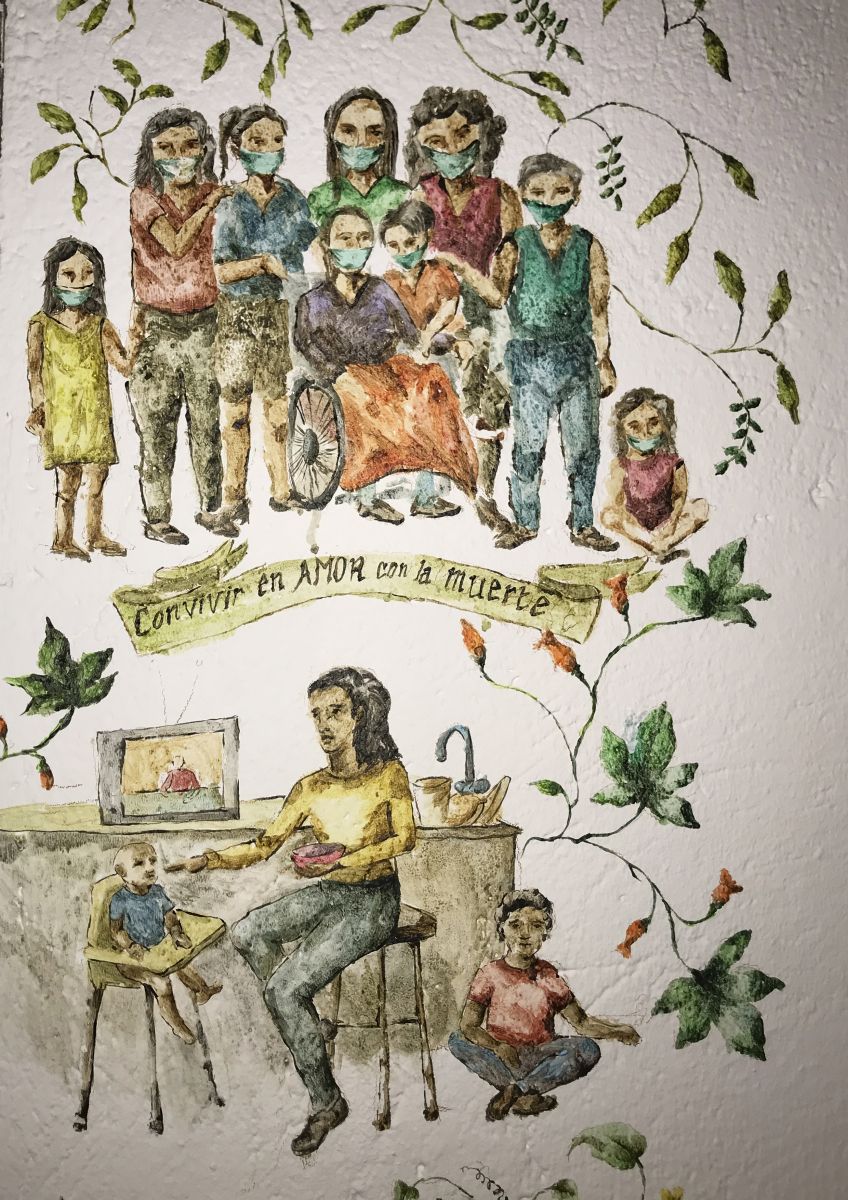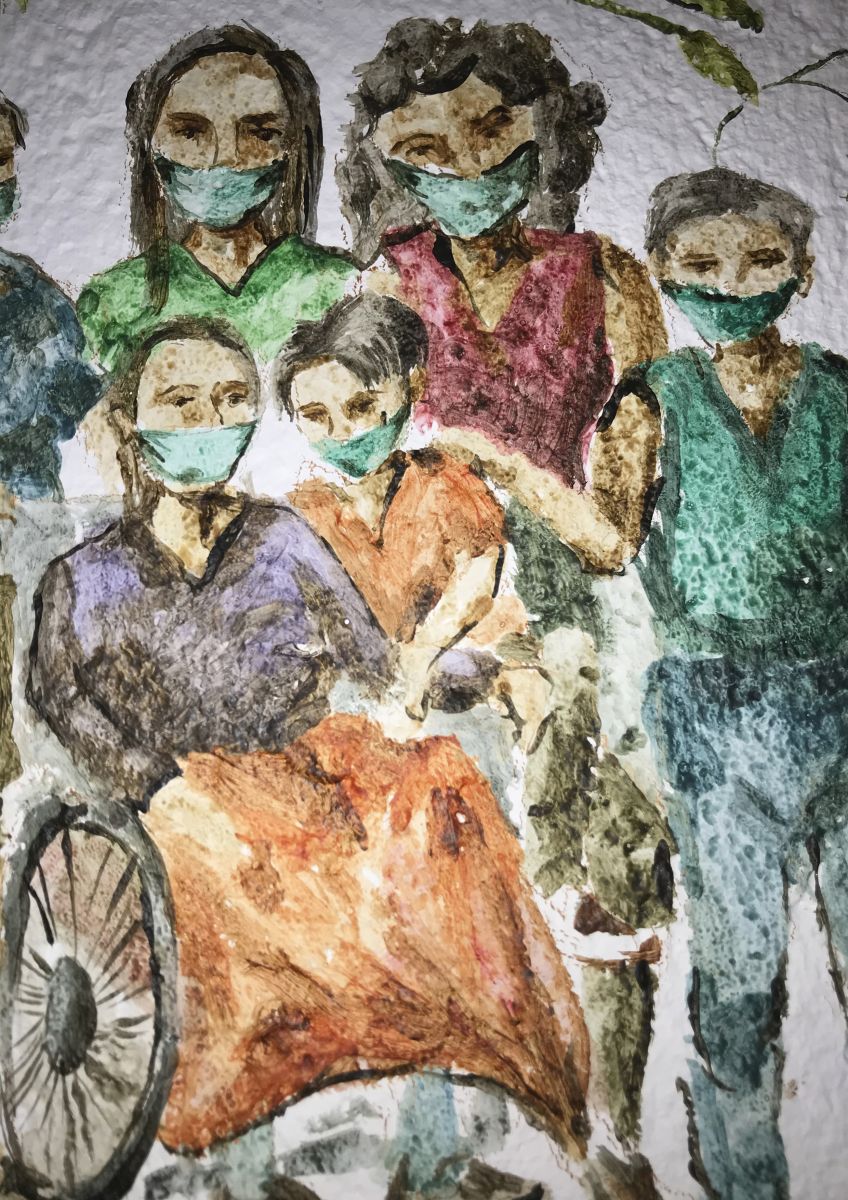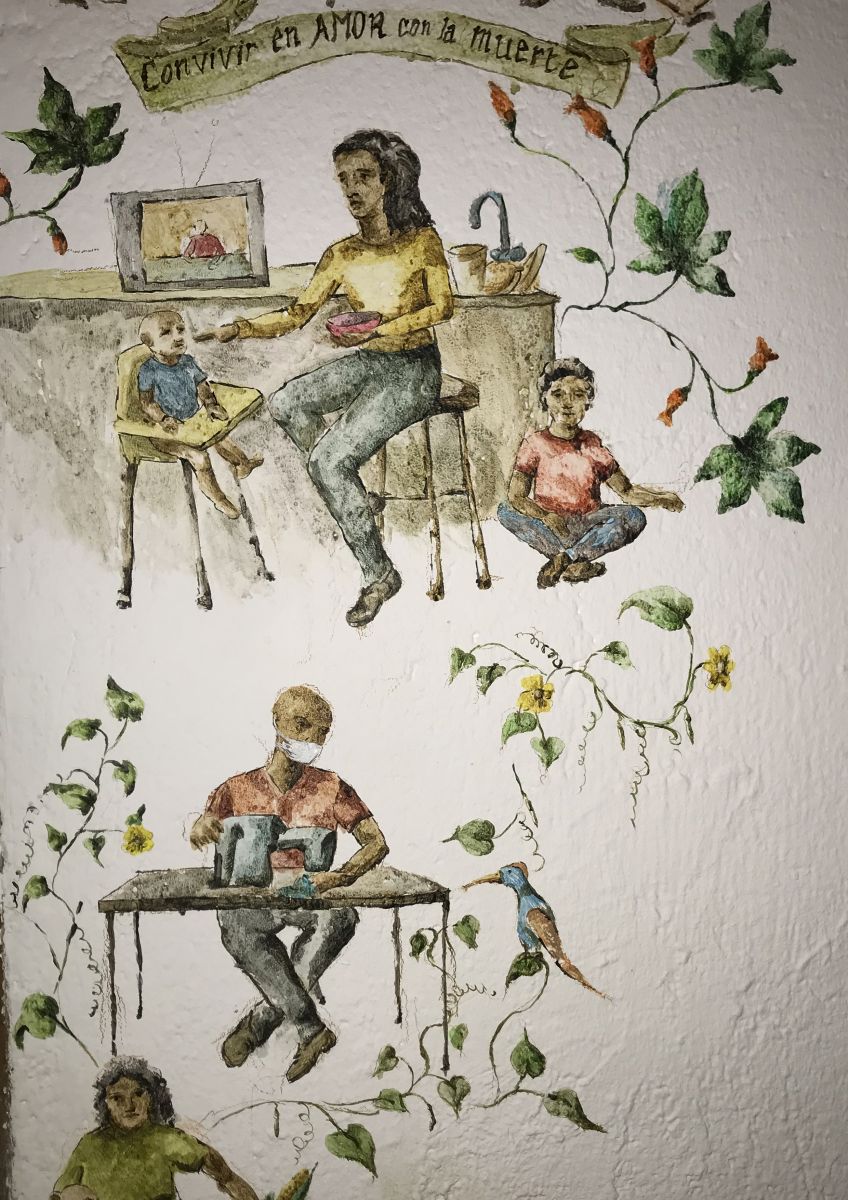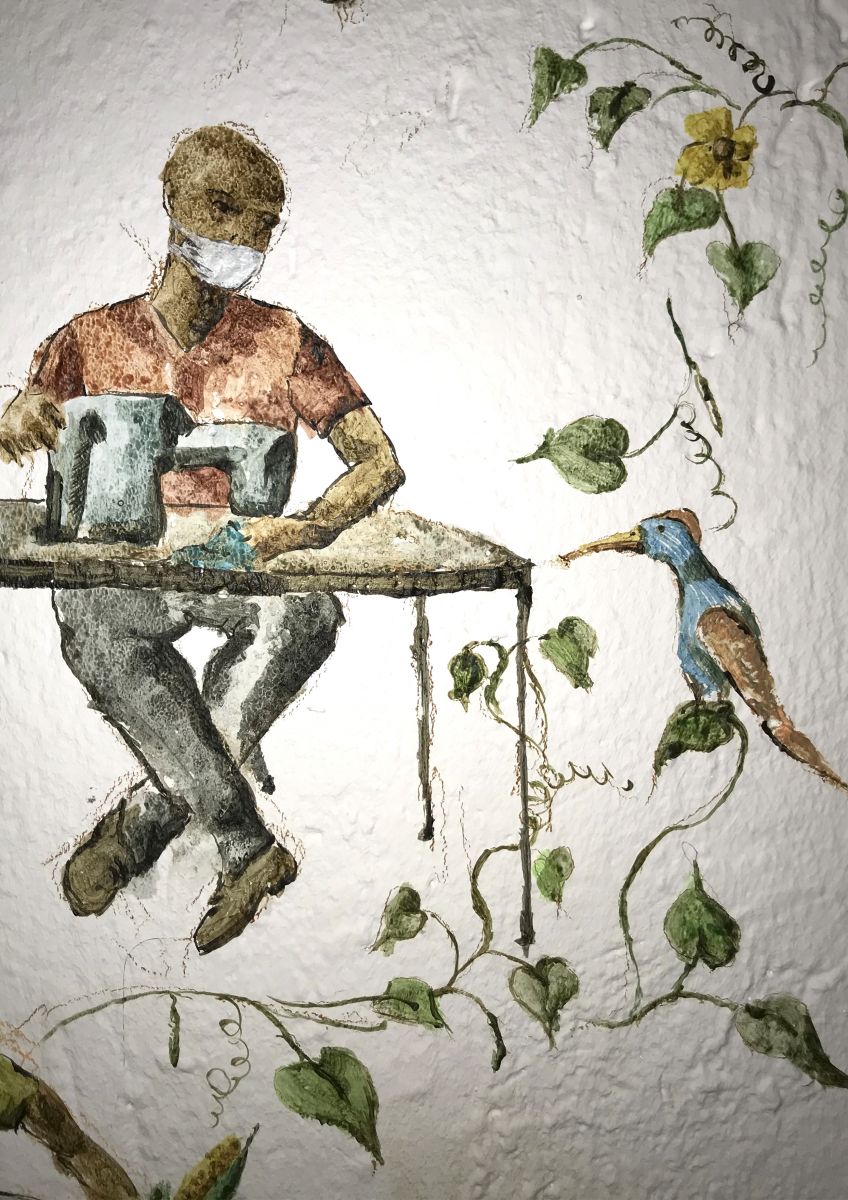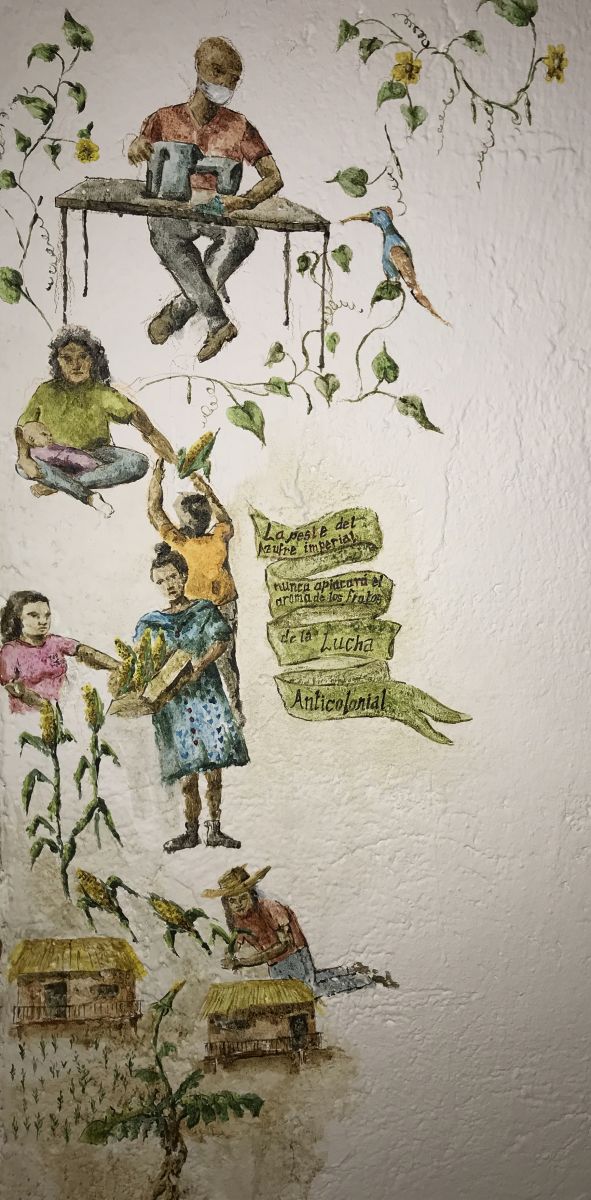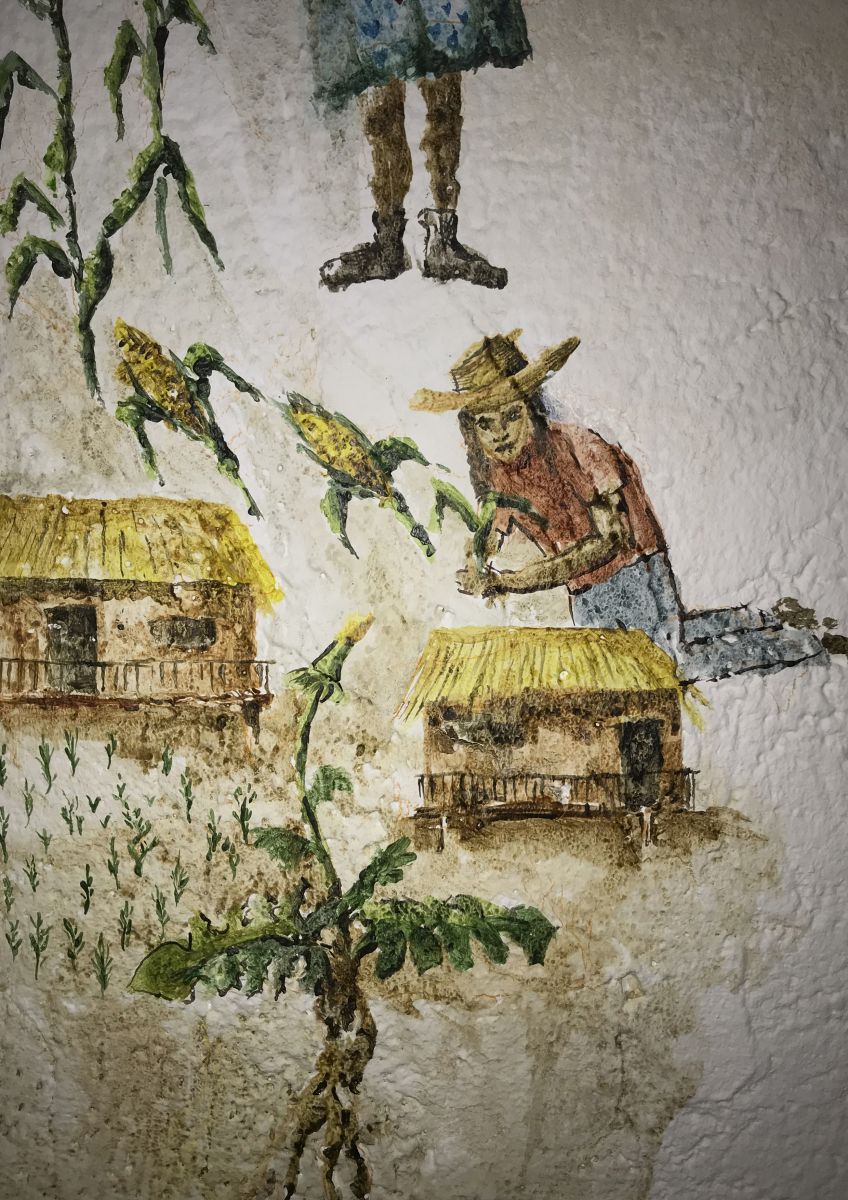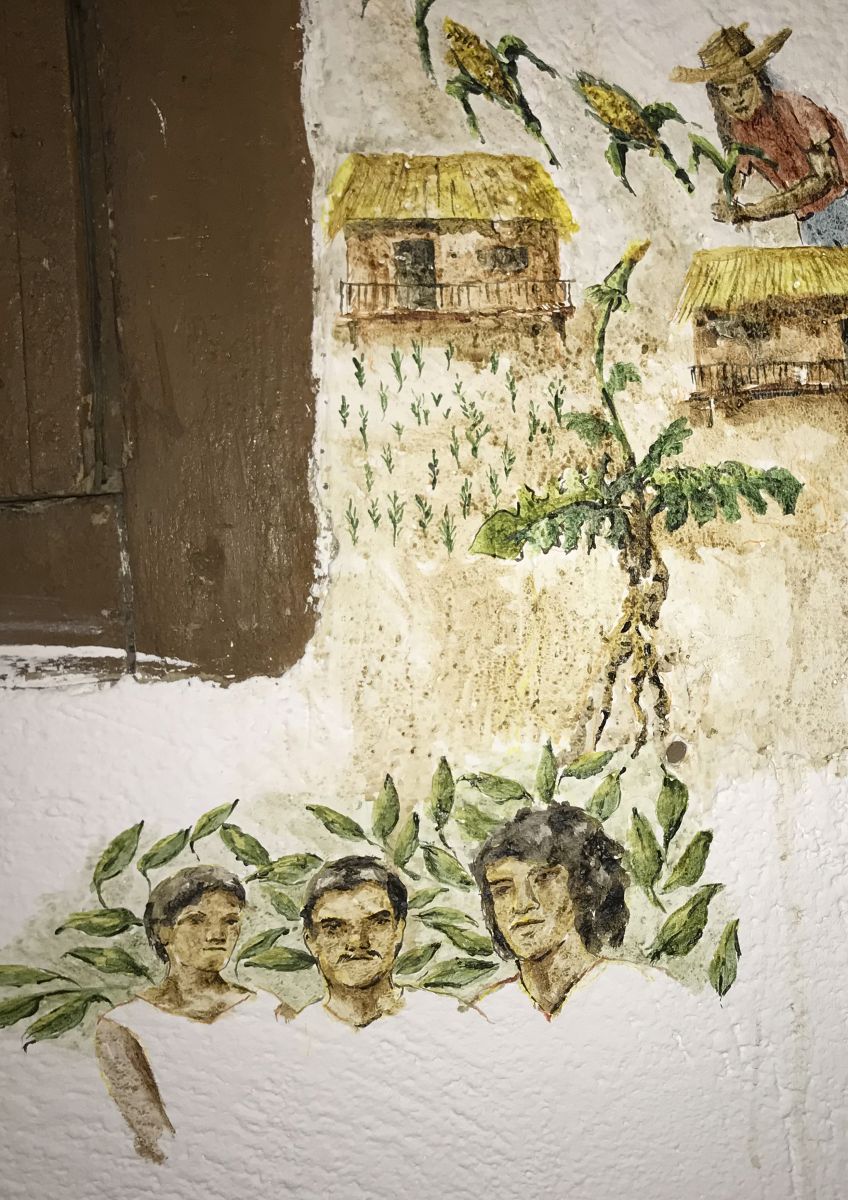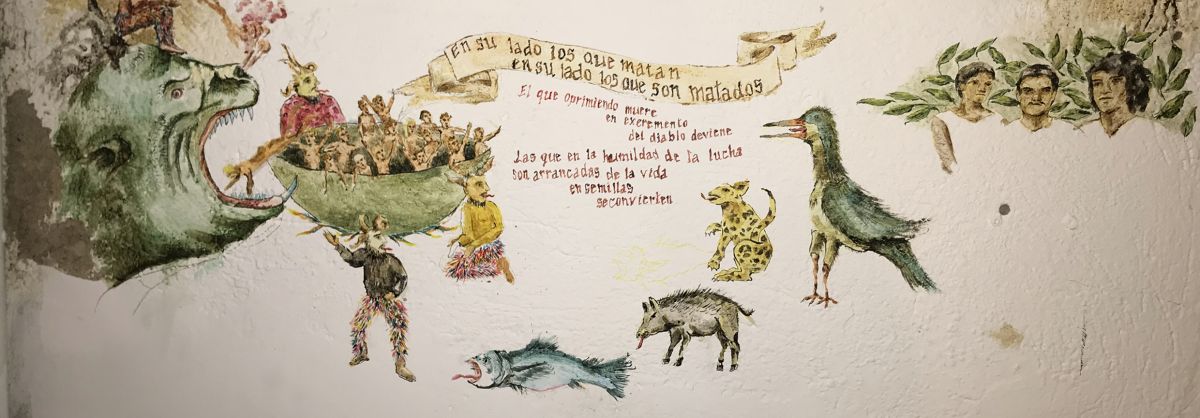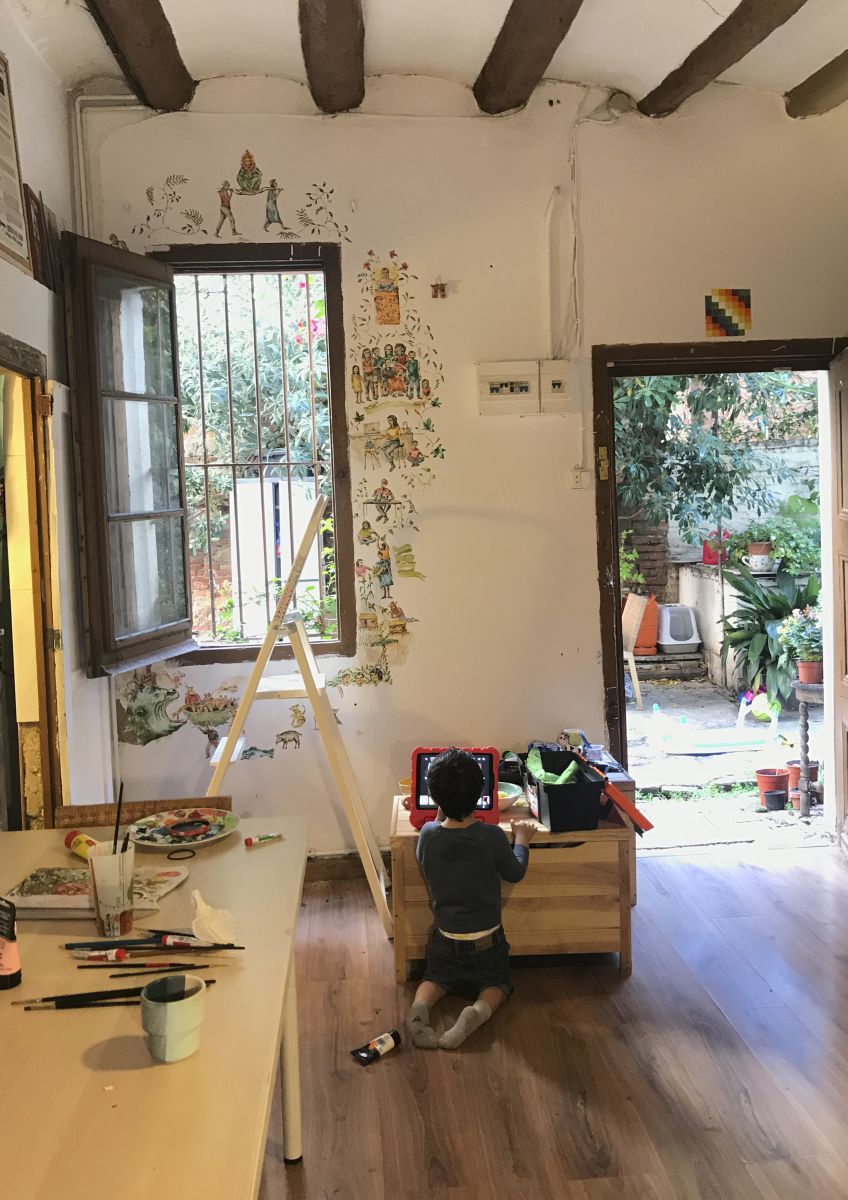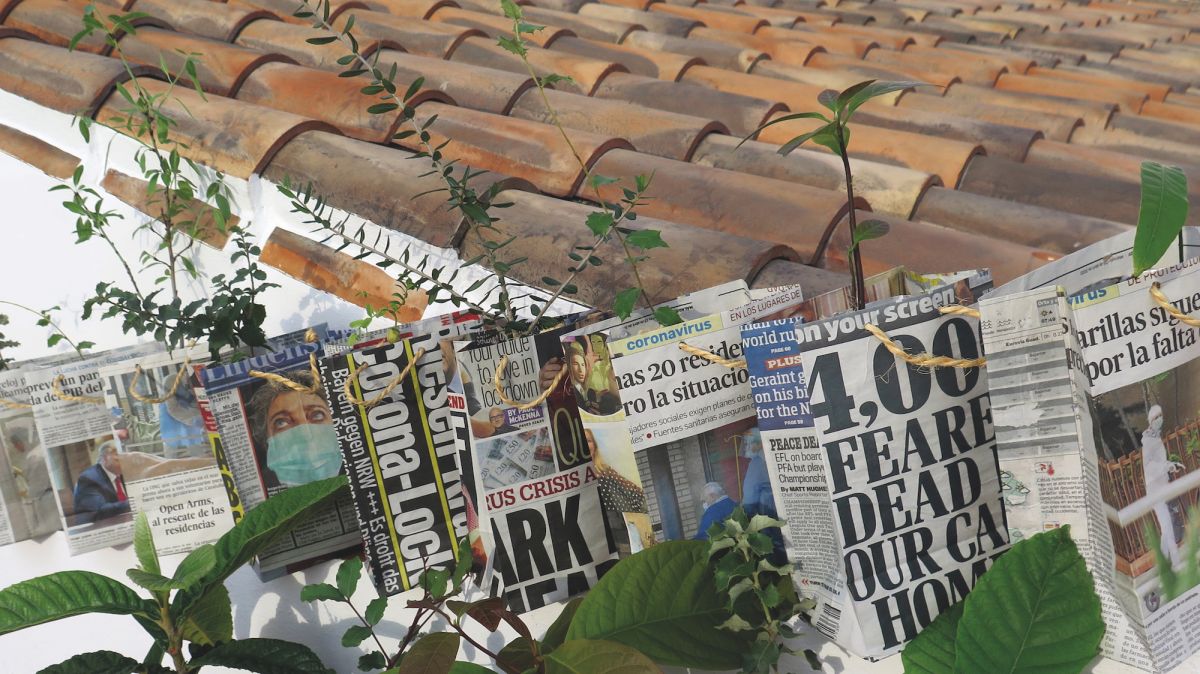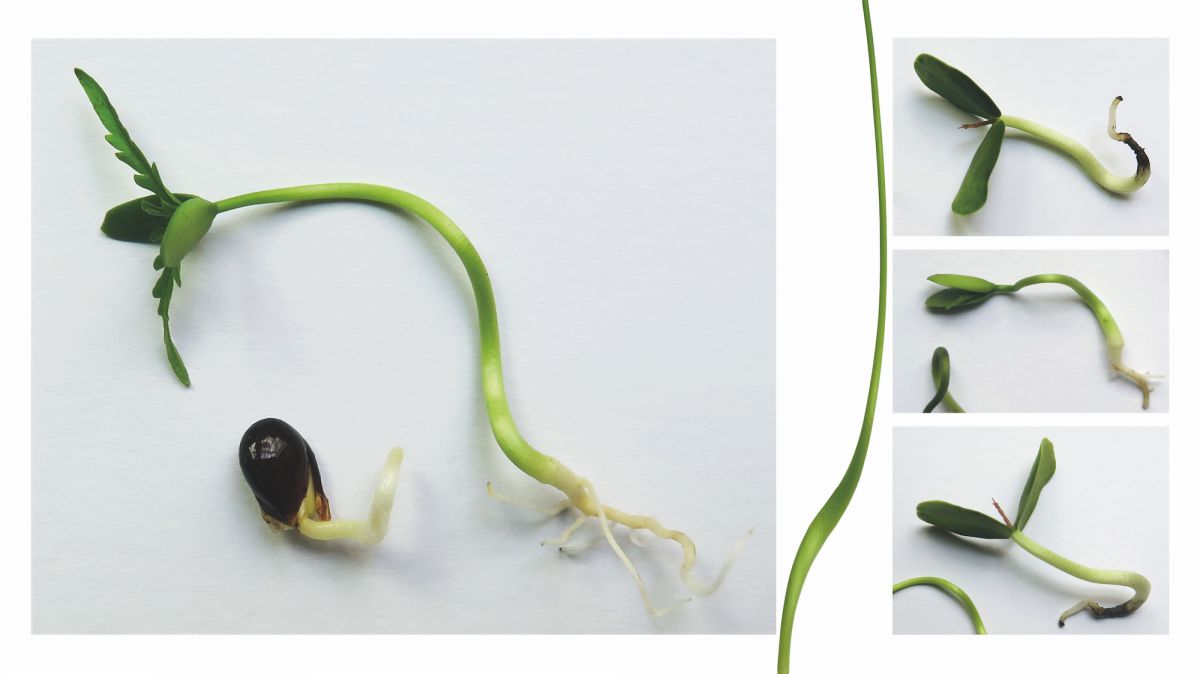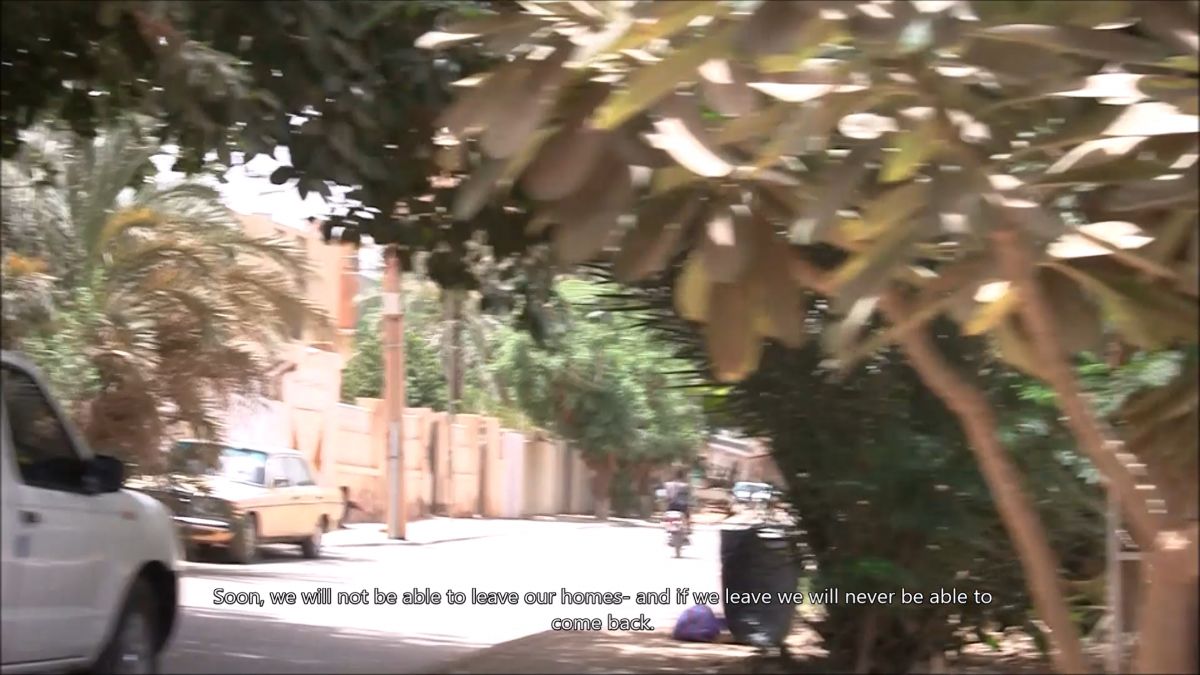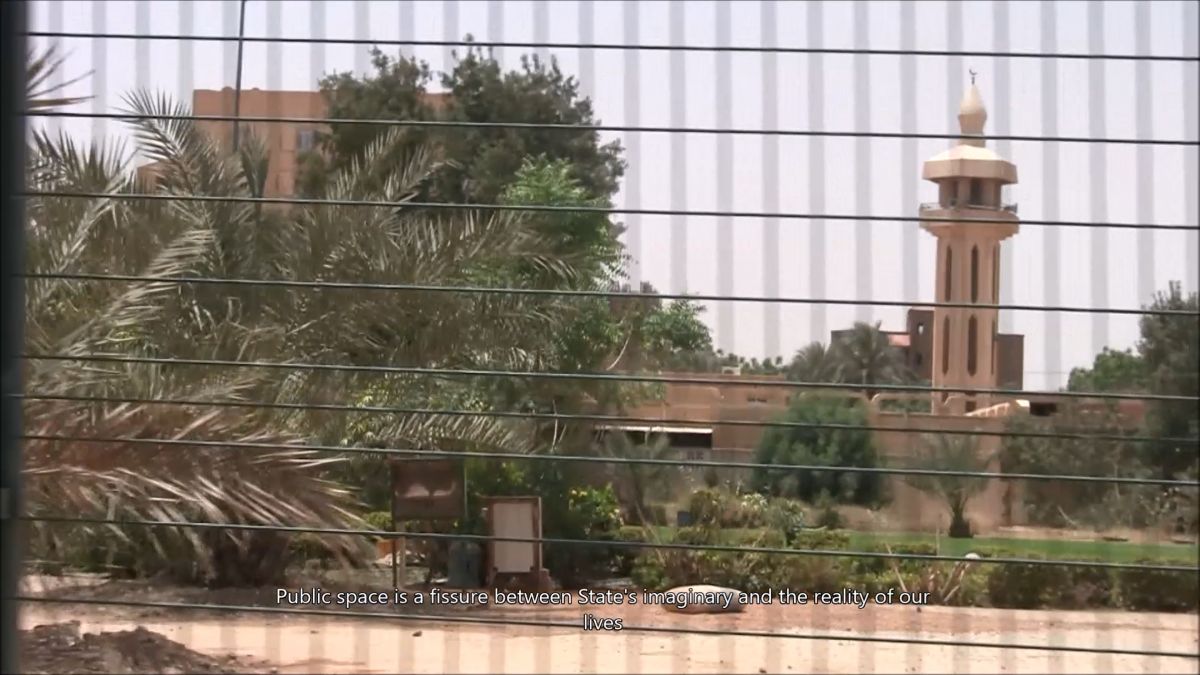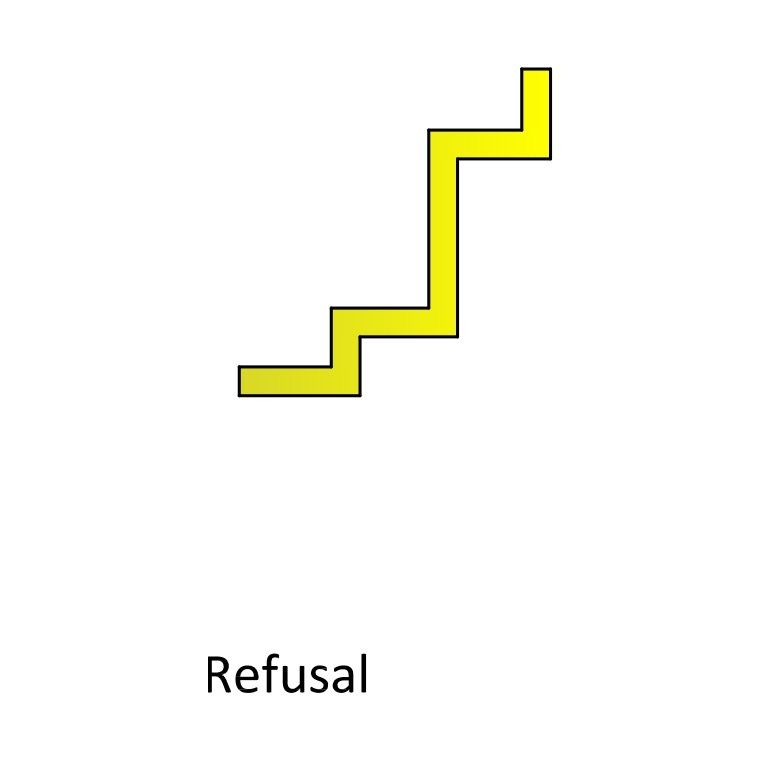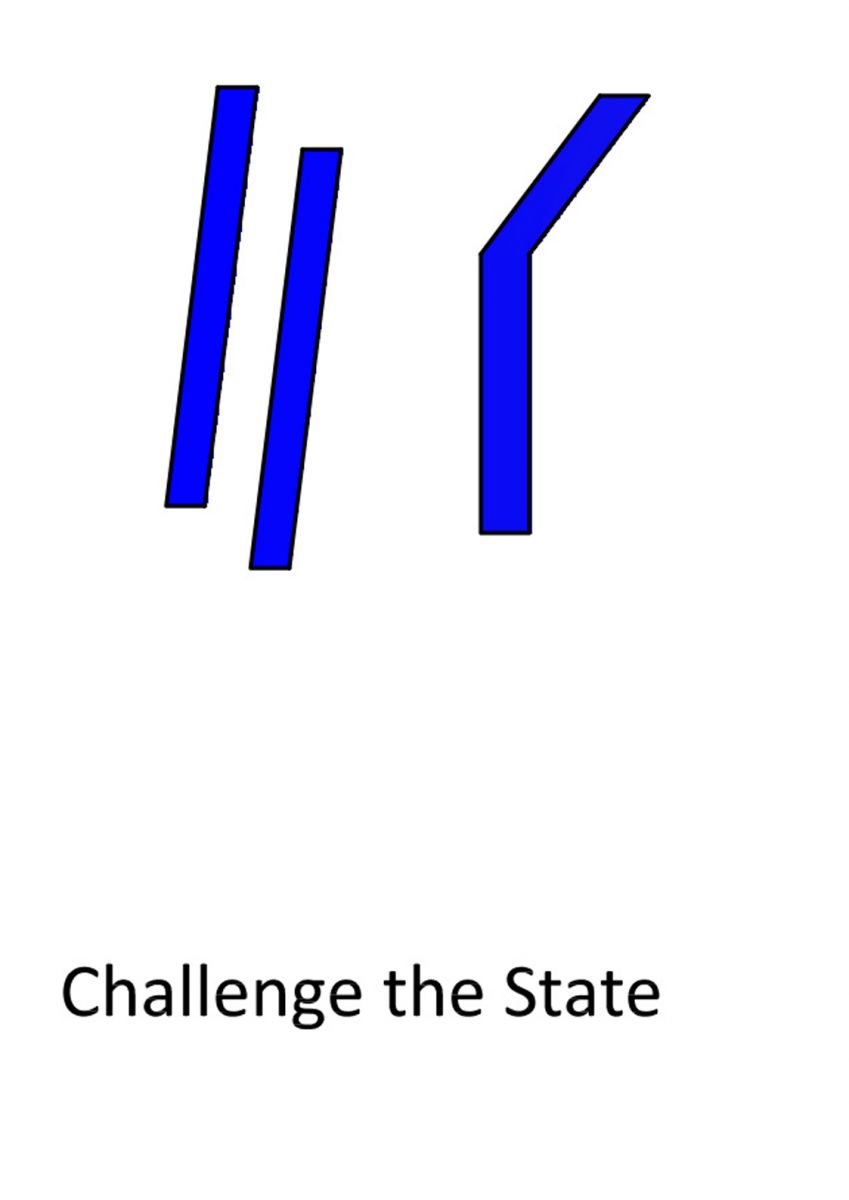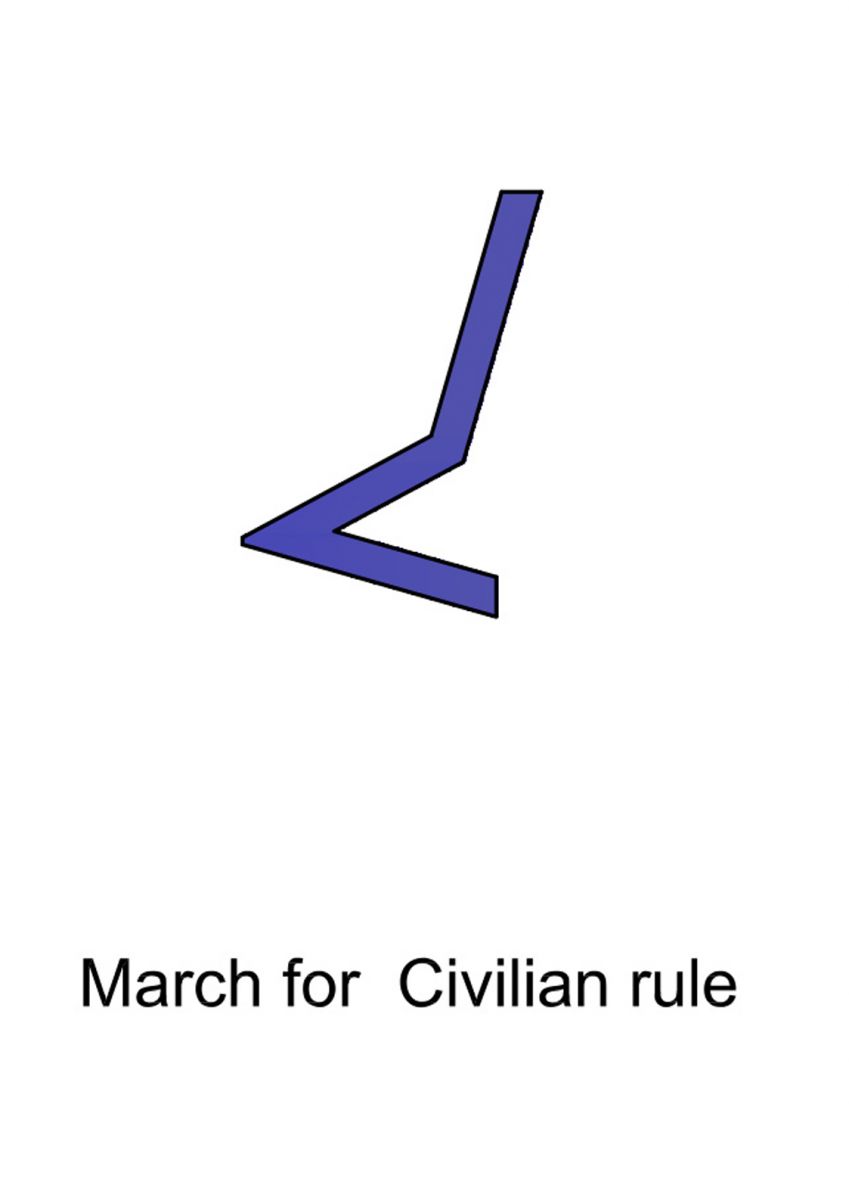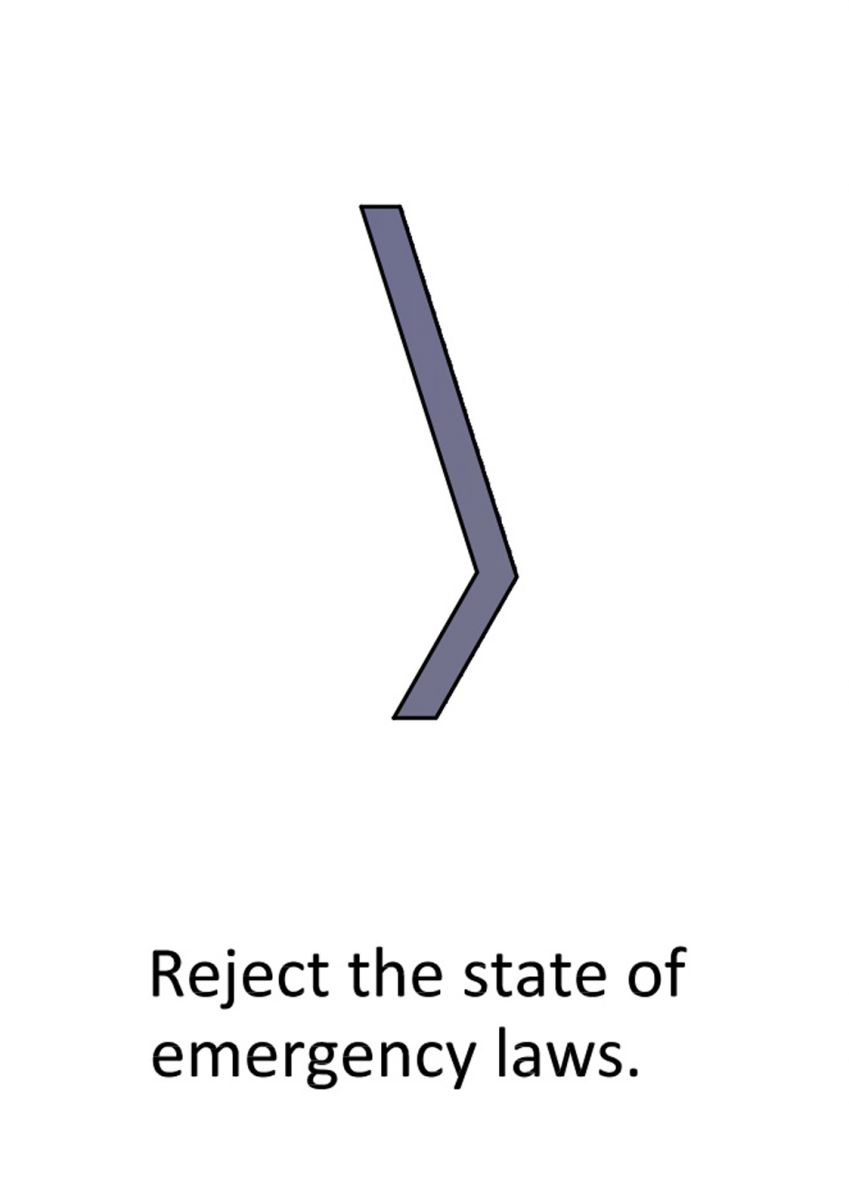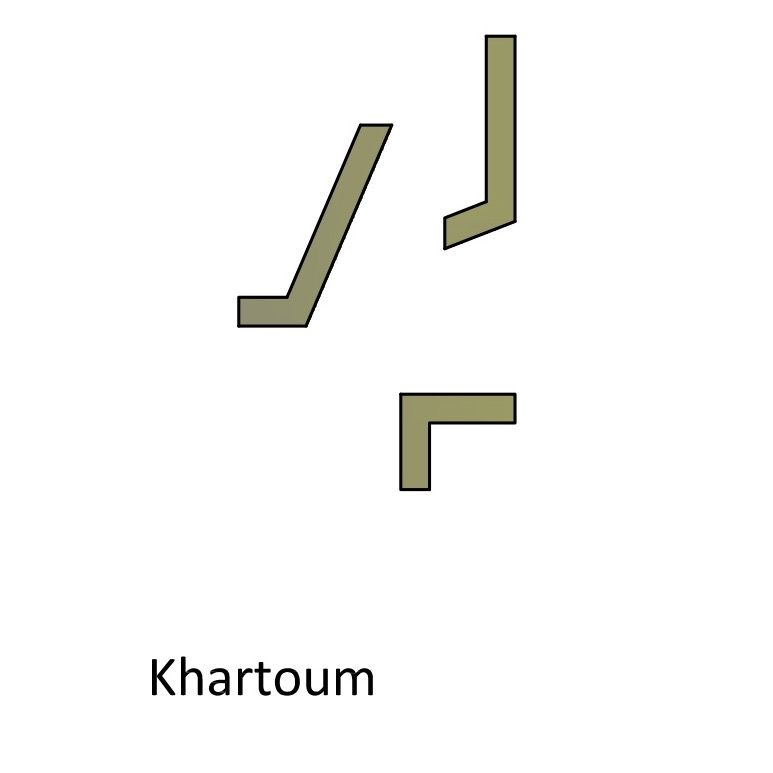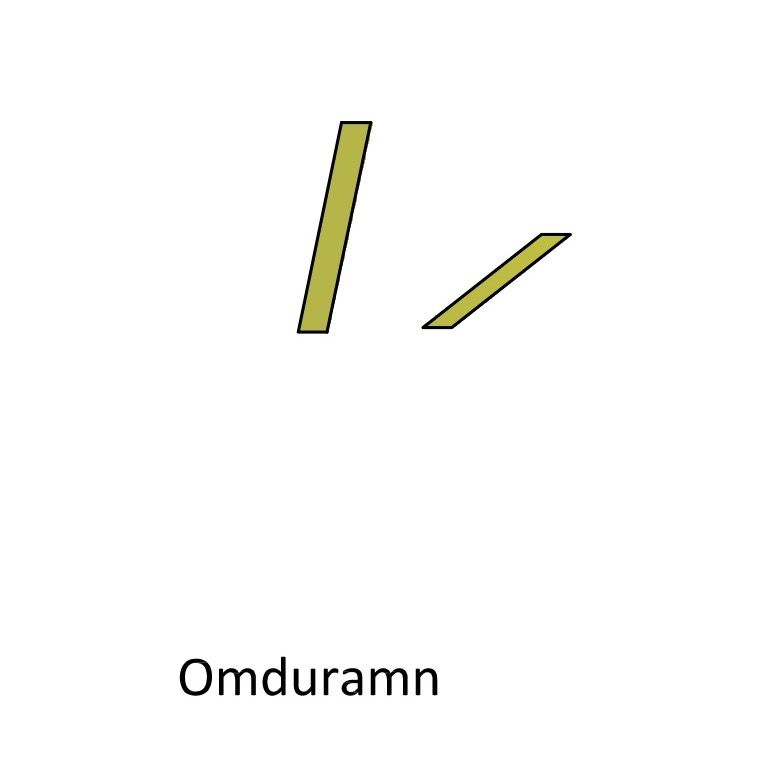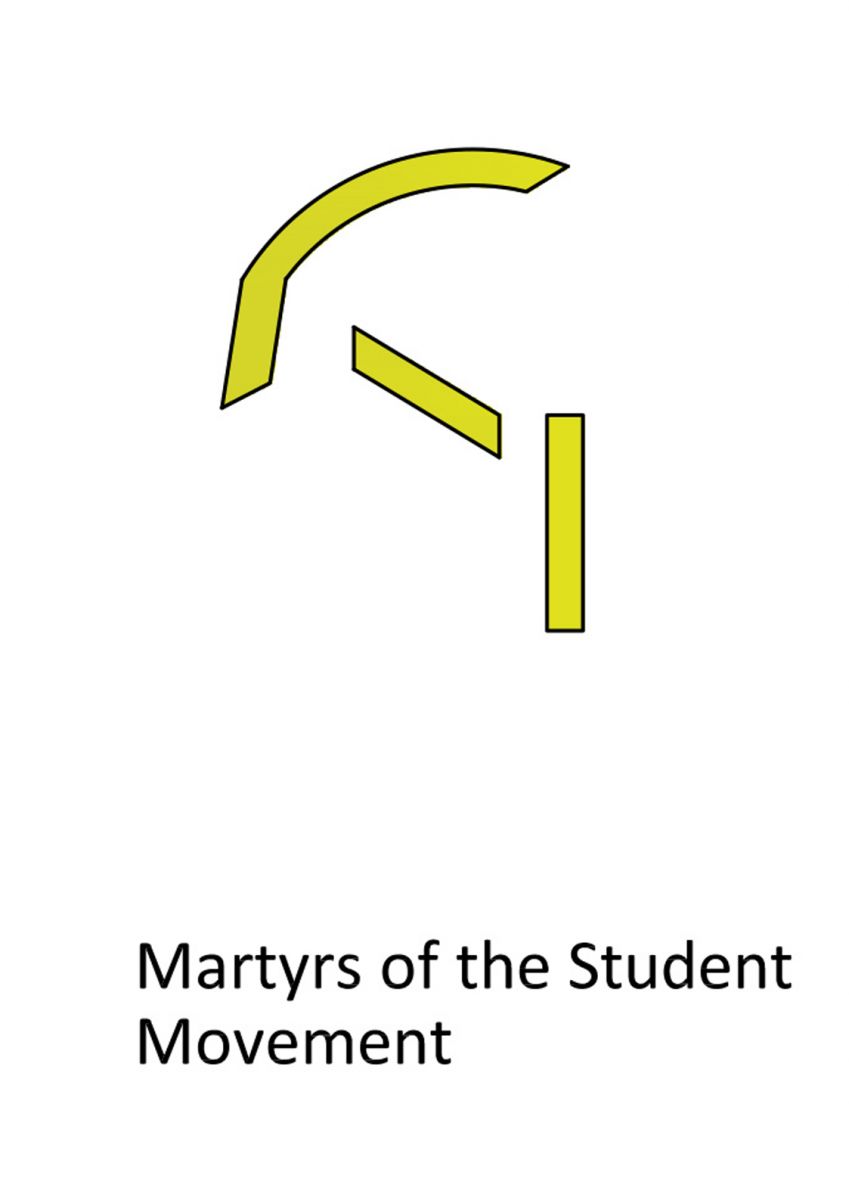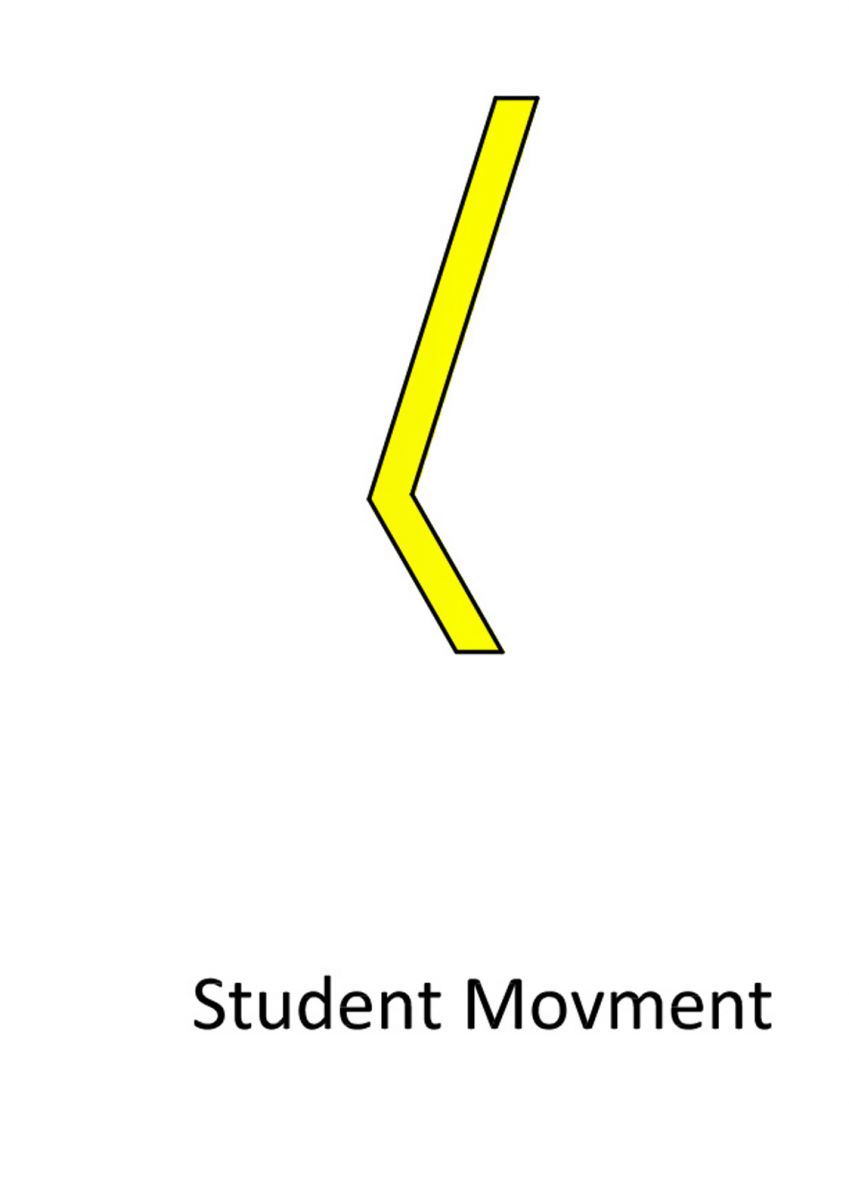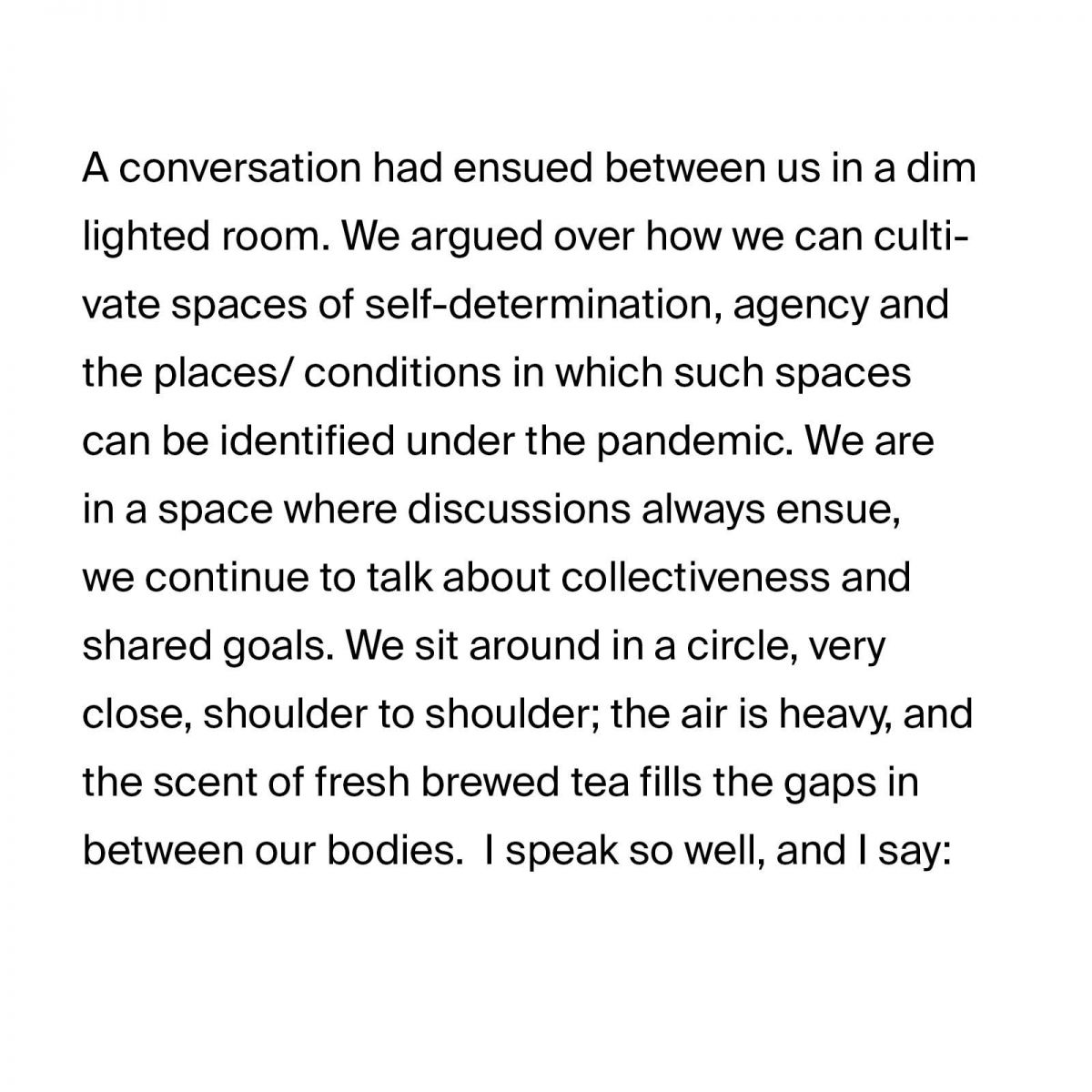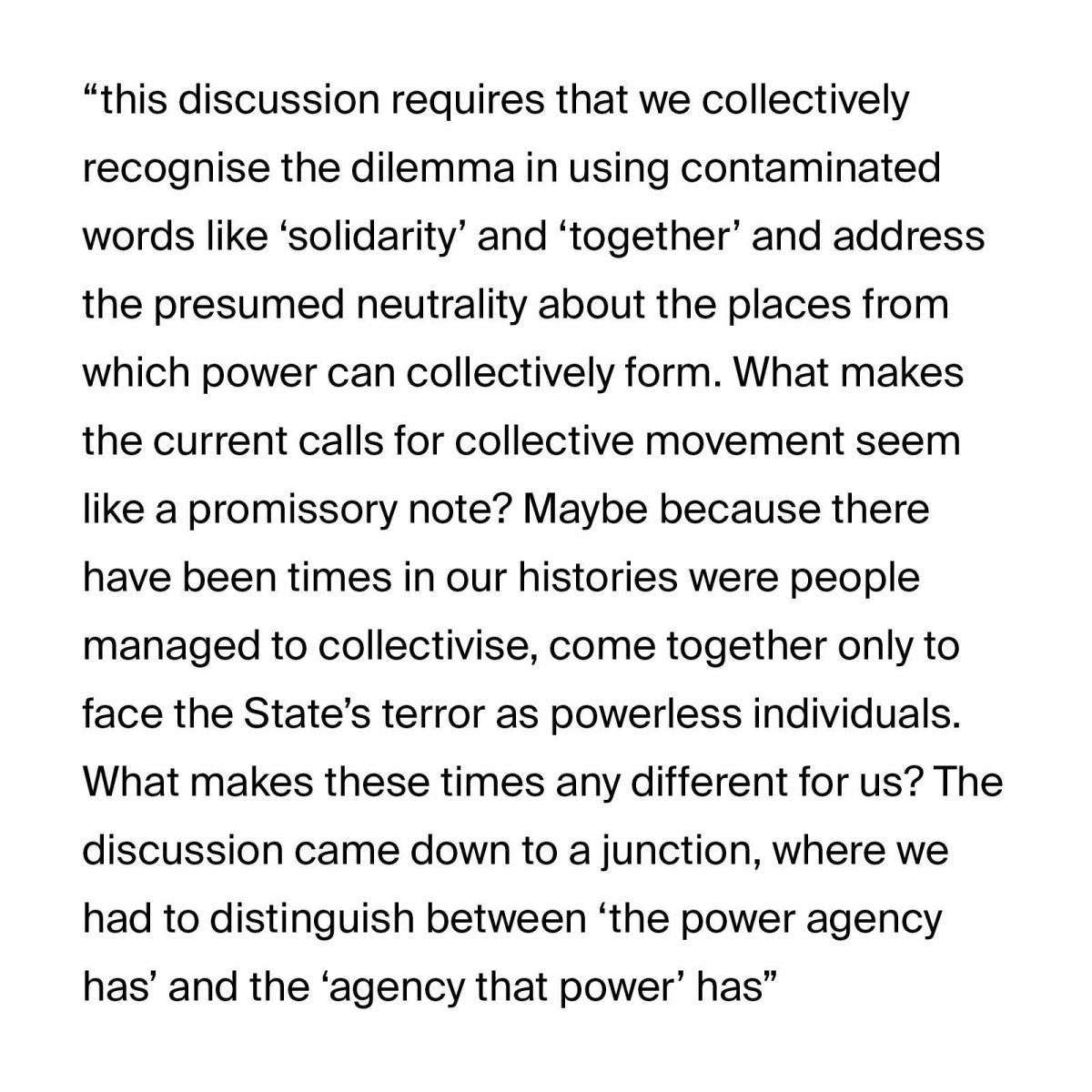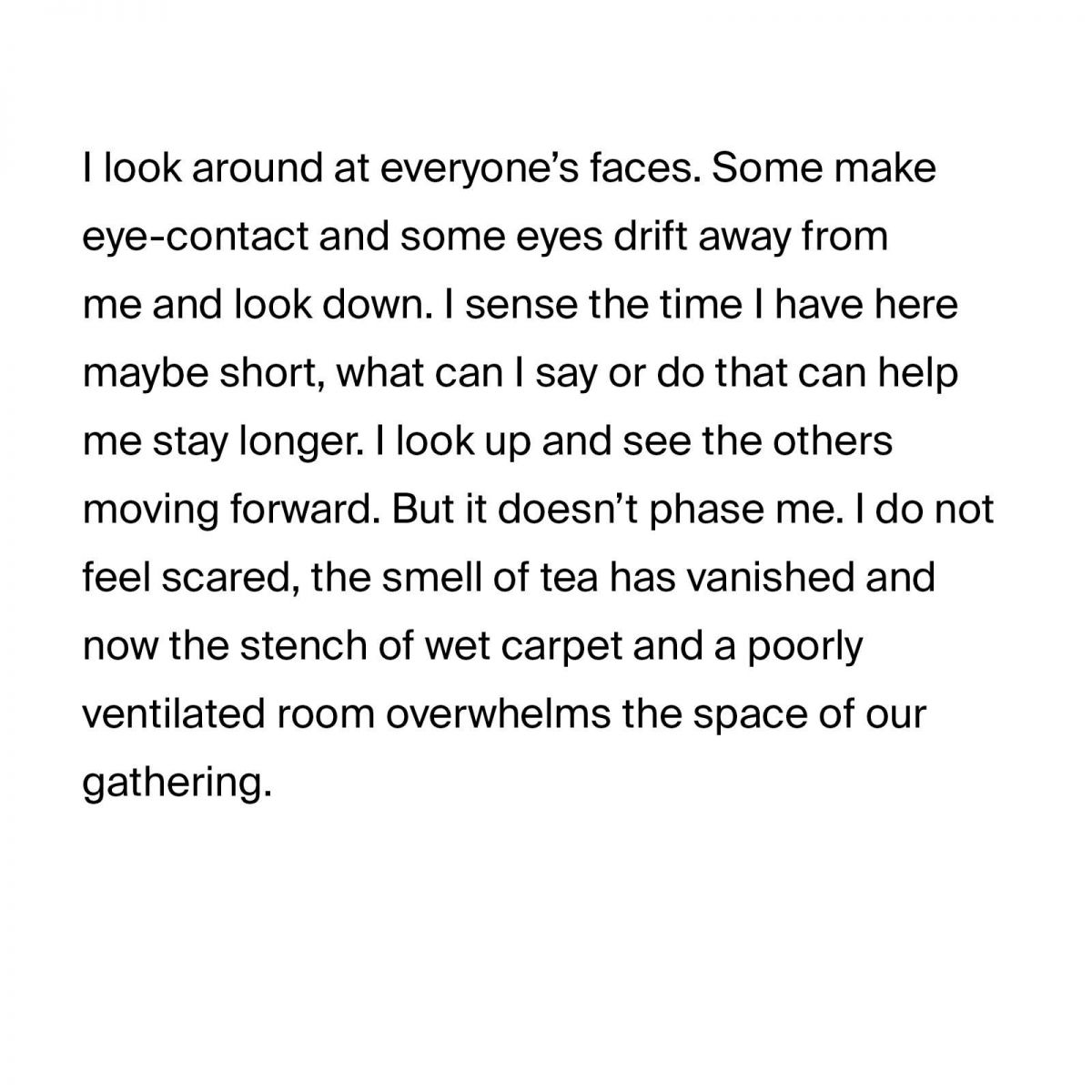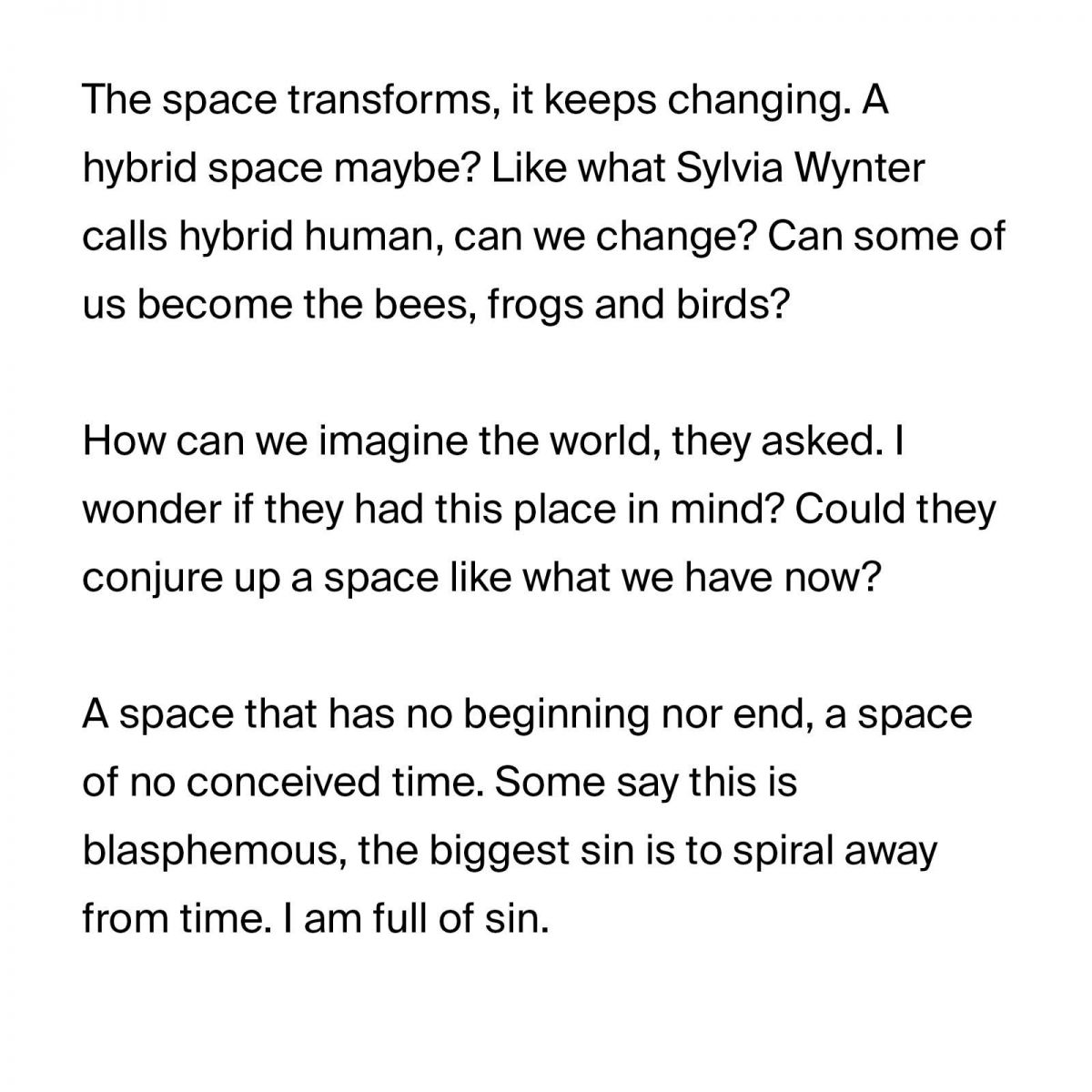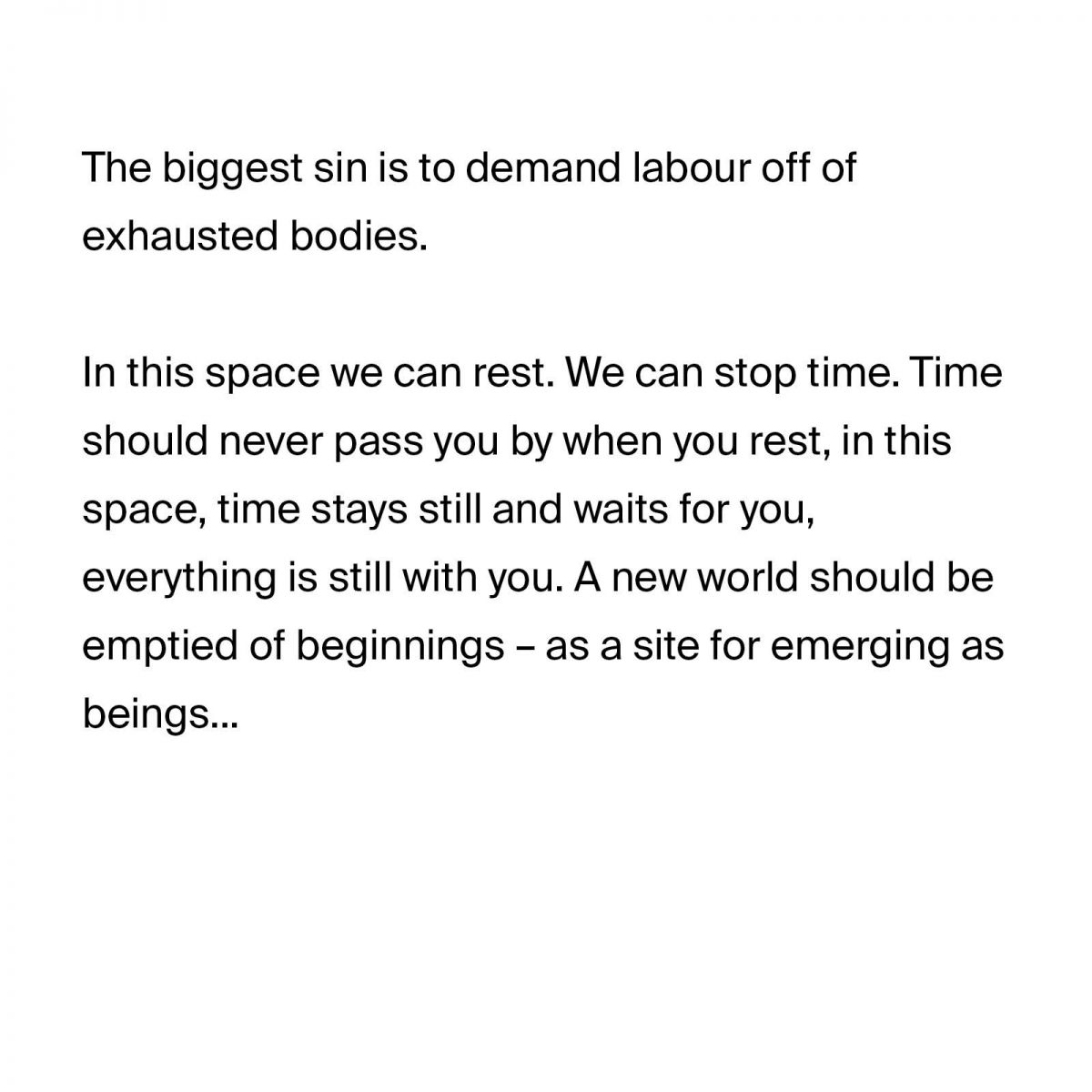Artists in Quarantine
by L'Internationale
April 21 – May 7, 2020
![Sanja Ivekovic Triangle Sanja Iveković’in 1979 tarihli <i>Trokut</i> [Üçgen] serisinden <i>Triangle 2000+</i> [Üçgen 2000+] fotoğrafı
Moderna galerija Koleksiyonu, Ljubljana, Slovenya
Sanatçının izniyle](/directus/media/thumbnails/sanja_ivekovic_triangle-jpg-780-5000-false.jpg)
A photograph titled Triangle 2000+ from the series of Sanja Iveković’s Trokut [Triangle] (1979)
Collection of Moderna galerija, Ljubljana, Slovenia
Courtesy the artist
Collection of Moderna galerija, Ljubljana, Slovenia
Courtesy the artist
The museum confederation L’Internationale has invited artists Babi Badalov, Osman Bozkurt, Simnikiwe Buhlungu, Ola Hassanain, Sanja Iveković, Siniša Labrović, Rogelio López Cuenca & Elo Vega, Kate Newby, Daniela Ortiz, Zeyno Pekünlü, Maja Smrekar, Isidoro Valcárcel Medina, Guy Woueté, Akram Zaatari, and Paweł Żukowski to join a conversation from their present working and living spaces, conditions and places. Their reflections suggest new perspectives on public/private space, solidarity and critique that are intrinsically connected with the present time.
In 1979, on the day of President Tito’s visit to Zagreb, the artist Sanja Iveković carried out an 18-minute performance titled Trokut [Triangle] (1979) on her balcony. She went out and started to read a book, drink a whisky, and made gestures as if she was masturbating until a security official arrived and ordered her inside. Do such domestic spaces still have the potential to be subversive and make a public statement, as Ivekovic’s balcony did in the late 1970s?
Virtual space, as well as the windows, balconies or facades of our homes have taken on the role and importance of town squares for collective expression, while also blurring the boundaries between public and private spheres in this period of global isolation. Artists in Quarantine is a modest way to contribute to the conversation about the effects of the current pandemic, redeliberating the communication channels that have influenced the present perception and consumption of information, as well as rethinking the potentiality of existing spaces.
Artists’ contributions will be shared online twice a week through L’Internationale’s social media channels, and via the websites and social media channels of members of the confederation from April 21.
About L’Internationale
L’Internationale is a confederation of seven major modern and contemporary art institutions (M HKA, Antwerp; Moderna galerija (MG+MSUM), Ljubljana; Van Abbemuseum, Eindhoven; MACBA, Barcelona; Muzeum Sztuki Nowoczesnej w Warszawie, Warsaw; SALT, Istanbul and Ankara; Museo Reina Sofía, Madrid) and two partners (National College of Art and Design, Dublin; Valand Academy, University of Gothenburg). The confederation and its partners are working now within the frame of the project Our Many Europes, co-funded by the Creative Europe programme of the European Union, featuring over 40 public activities including exhibitions, workshops and research.
In 1979, on the day of President Tito’s visit to Zagreb, the artist Sanja Iveković carried out an 18-minute performance titled Trokut [Triangle] (1979) on her balcony. She went out and started to read a book, drink a whisky, and made gestures as if she was masturbating until a security official arrived and ordered her inside. Do such domestic spaces still have the potential to be subversive and make a public statement, as Ivekovic’s balcony did in the late 1970s?
Virtual space, as well as the windows, balconies or facades of our homes have taken on the role and importance of town squares for collective expression, while also blurring the boundaries between public and private spheres in this period of global isolation. Artists in Quarantine is a modest way to contribute to the conversation about the effects of the current pandemic, redeliberating the communication channels that have influenced the present perception and consumption of information, as well as rethinking the potentiality of existing spaces.
Artists’ contributions will be shared online twice a week through L’Internationale’s social media channels, and via the websites and social media channels of members of the confederation from April 21.
About L’Internationale
L’Internationale is a confederation of seven major modern and contemporary art institutions (M HKA, Antwerp; Moderna galerija (MG+MSUM), Ljubljana; Van Abbemuseum, Eindhoven; MACBA, Barcelona; Muzeum Sztuki Nowoczesnej w Warszawie, Warsaw; SALT, Istanbul and Ankara; Museo Reina Sofía, Madrid) and two partners (National College of Art and Design, Dublin; Valand Academy, University of Gothenburg). The confederation and its partners are working now within the frame of the project Our Many Europes, co-funded by the Creative Europe programme of the European Union, featuring over 40 public activities including exhibitions, workshops and research.
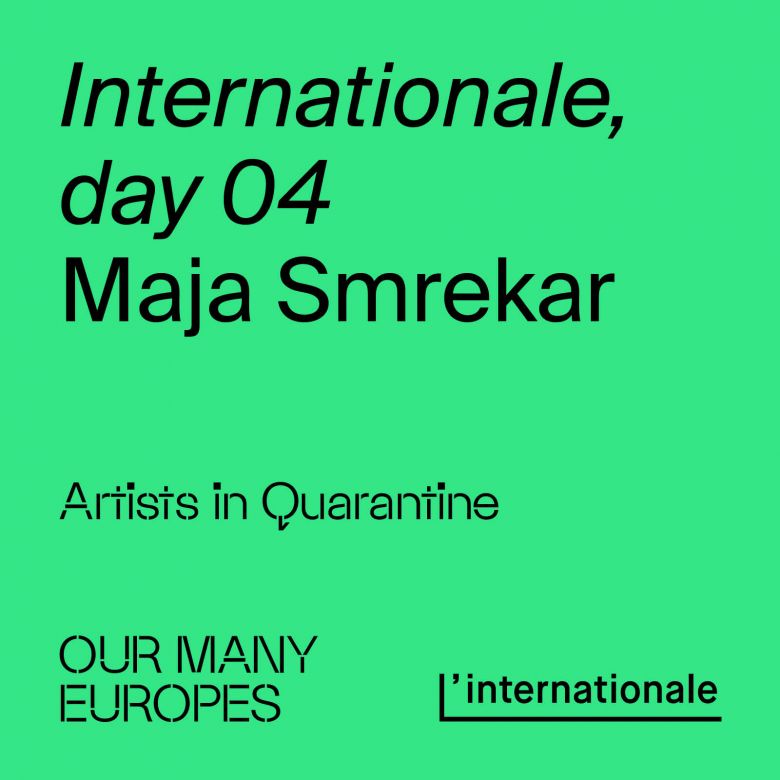
Maja Smrekar
Internationale, day 04
In collaboration with Urška Lipovž
Thanks to Byron
Post-production: Dongwook Jang
Every day at noon, we place a speaker onto a window sill facing the government building across the street. In the manner of a civil defense siren, we play a 90-second clip of the Internationale—the anthem of mobilization in times of immobility. This action echoes Federico Fellini’s Amarcord, a film that takes place in 1930s Italy, in which a gramophone wired to the bell tower of the town church plays a recording of the Internationale, only to be soon shot down by fascists. We started doing this on March 19, 2020, when the Slovenian government announced that they raised the salaries of ministers and state secretaries by 30%, while no solutions were offered to the rest of the civil society for solidarity. Our action will last as long as the lockdown. Sometimes, the sound we play causes our companion dog Byron to jump on the window sill. This suggests a connection to the Russian avant-garde, in which proletarians are compared with animals as important contributors to the production of freedom.
Internationale, day 04
In collaboration with Urška Lipovž
Thanks to Byron
Post-production: Dongwook Jang
Every day at noon, we place a speaker onto a window sill facing the government building across the street. In the manner of a civil defense siren, we play a 90-second clip of the Internationale—the anthem of mobilization in times of immobility. This action echoes Federico Fellini’s Amarcord, a film that takes place in 1930s Italy, in which a gramophone wired to the bell tower of the town church plays a recording of the Internationale, only to be soon shot down by fascists. We started doing this on March 19, 2020, when the Slovenian government announced that they raised the salaries of ministers and state secretaries by 30%, while no solutions were offered to the rest of the civil society for solidarity. Our action will last as long as the lockdown. Sometimes, the sound we play causes our companion dog Byron to jump on the window sill. This suggests a connection to the Russian avant-garde, in which proletarians are compared with animals as important contributors to the production of freedom.
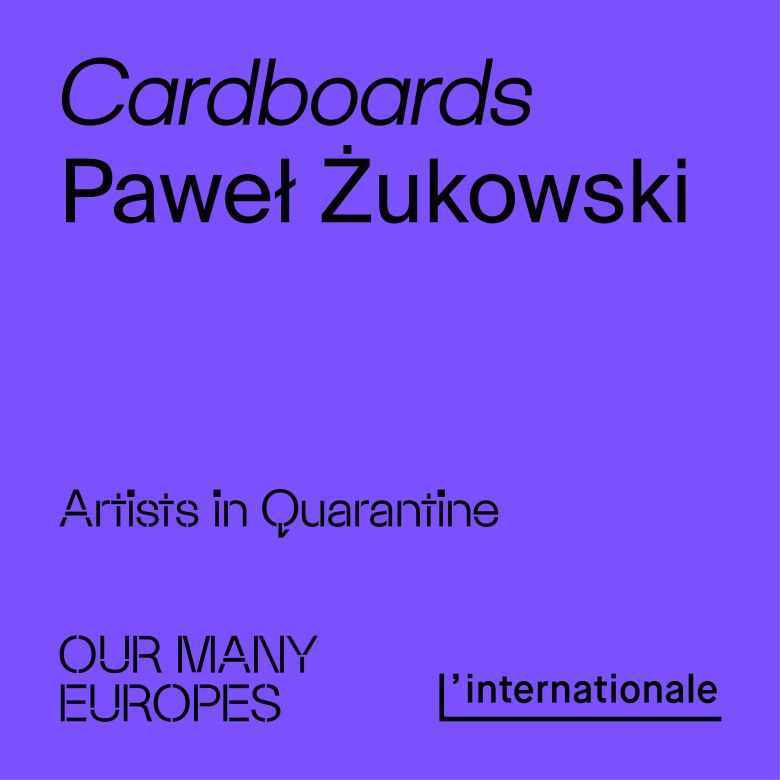
Paweł Żukowski
Cardboards
Curators: Natalia Sielewicz, Tomasz Fudala
Paweł Żukowski’s action Cardboards was realized on forty balconies in Warsaw. The artist used simple slogans such as “we will manage,” “we demand tests,” or “let’s postpone the elections” to support Varsovians in a pandemic time. In this work, Żukowski combines his art with political and social activism, directing the attention of the audience onto the pressing issues of public debate around civil rights in Poland. He comments on these times that will likely reshape the world for decades to come, and the changes that may have many negative aspects as in state level-surveillance, spying, the closing of communities, growth of fascist and authoritarian tendencies, and a possible new meaning of “public.” Going viral, one could observe people’s spontaneous reactions and many self-made banners joining his actions.
Photo: Gosia Białobrzycka / Van Dorsen Artists & Grzegorz Wełnicki / RATS Agency
Cardboards
Curators: Natalia Sielewicz, Tomasz Fudala
Paweł Żukowski’s action Cardboards was realized on forty balconies in Warsaw. The artist used simple slogans such as “we will manage,” “we demand tests,” or “let’s postpone the elections” to support Varsovians in a pandemic time. In this work, Żukowski combines his art with political and social activism, directing the attention of the audience onto the pressing issues of public debate around civil rights in Poland. He comments on these times that will likely reshape the world for decades to come, and the changes that may have many negative aspects as in state level-surveillance, spying, the closing of communities, growth of fascist and authoritarian tendencies, and a possible new meaning of “public.” Going viral, one could observe people’s spontaneous reactions and many self-made banners joining his actions.
Photo: Gosia Białobrzycka / Van Dorsen Artists & Grzegorz Wełnicki / RATS Agency
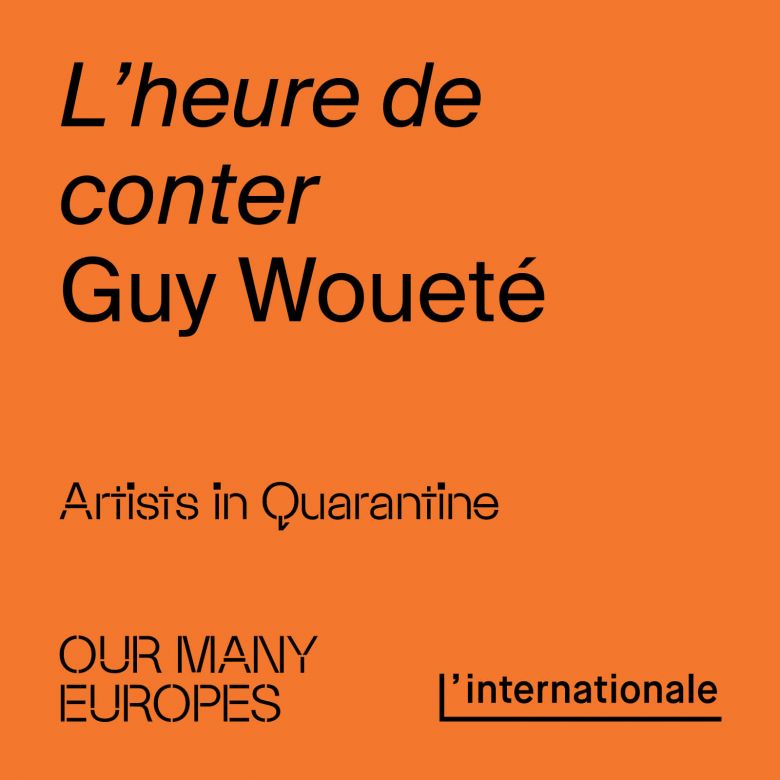
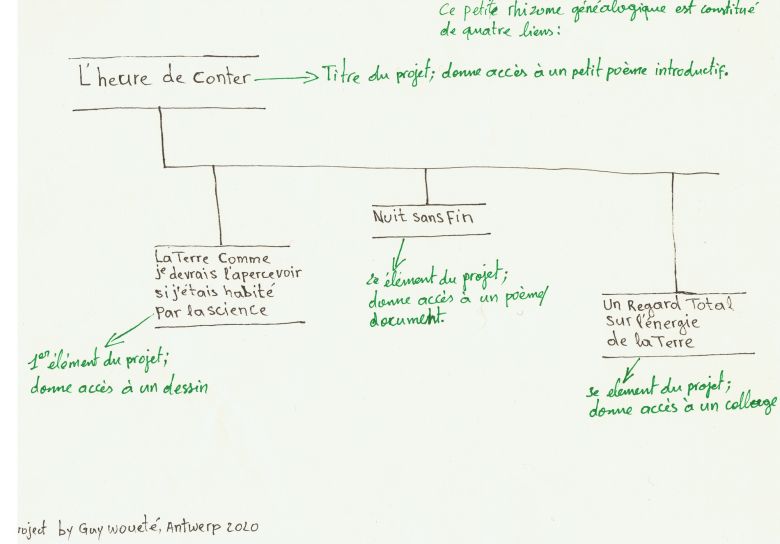
Guy Woueté
L’heure de Conter [Time to tell], 2020 (1/4)
The magic of a promise lies in its ability to make perceptible, for a moment, through our whole being, the experience of the fullness which nests in the intangible.
Too quickly, we forget that, the promise is fulfilled.
Nothing to wait.
Reinventing a path, leaving the enclosure for good.
The earth is one with us.
This is not a promise.
It’s time to tell
L’heure de Conter [Time to tell], 2020 (1/4)
The magic of a promise lies in its ability to make perceptible, for a moment, through our whole being, the experience of the fullness which nests in the intangible.
Too quickly, we forget that, the promise is fulfilled.
Nothing to wait.
Reinventing a path, leaving the enclosure for good.
The earth is one with us.
This is not a promise.
It’s time to tell
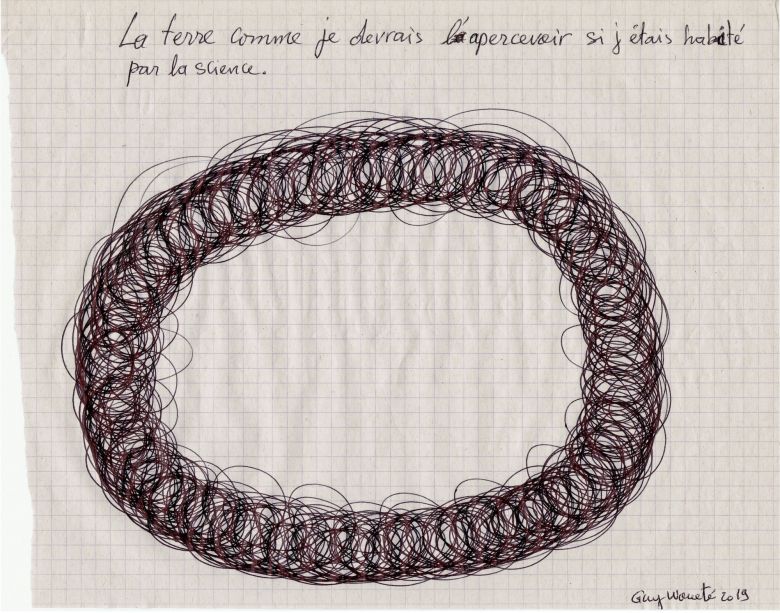
(2/4)
La terre comme je devrais l’apercevoir si j’étais habité par la science [Earth as I should see it if I was inhabited by science], 2019
Scan of an existing drawing.
Small meditation on the origins of life, the system of movement which orders and maintains life on earth (the rotation of the Earth and the revolution of the Earth)
La terre comme je devrais l’apercevoir si j’étais habité par la science [Earth as I should see it if I was inhabited by science], 2019
Scan of an existing drawing.
Small meditation on the origins of life, the system of movement which orders and maintains life on earth (the rotation of the Earth and the revolution of the Earth)
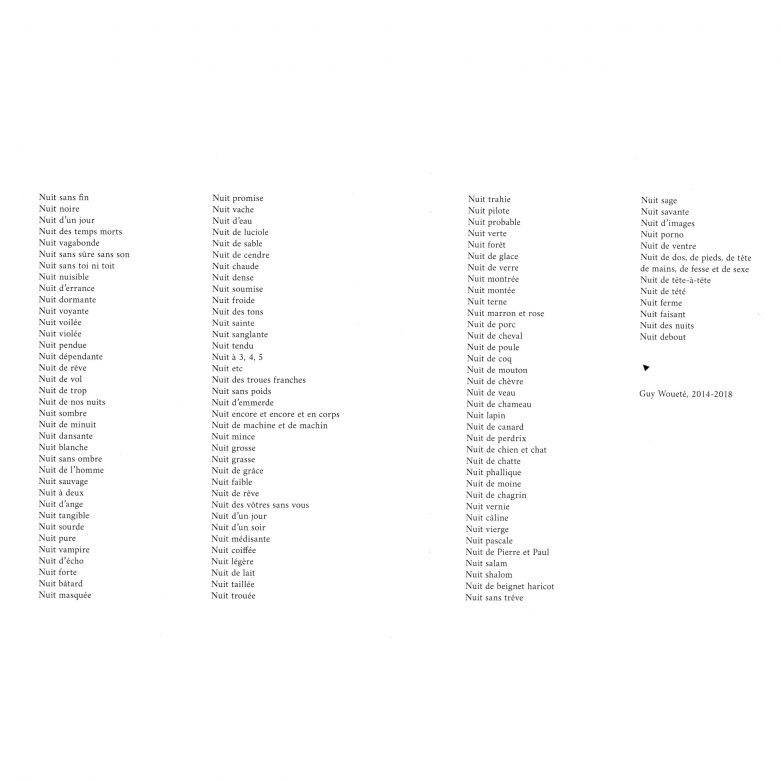
(3/4)
Nuit sans Fin [Endless Night], 2014-2018
Scan of a poem written in 2016 as part of the artist publication Dominer l’Anonymat [Taming Anonymity] (2018) made by Guy Woueté upon his return from the Calais Jungle, where he spent a week during the time of dismantling of the camp.
Nuit sans Fin [Endless Night], 2014-2018
Scan of a poem written in 2016 as part of the artist publication Dominer l’Anonymat [Taming Anonymity] (2018) made by Guy Woueté upon his return from the Calais Jungle, where he spent a week during the time of dismantling of the camp.
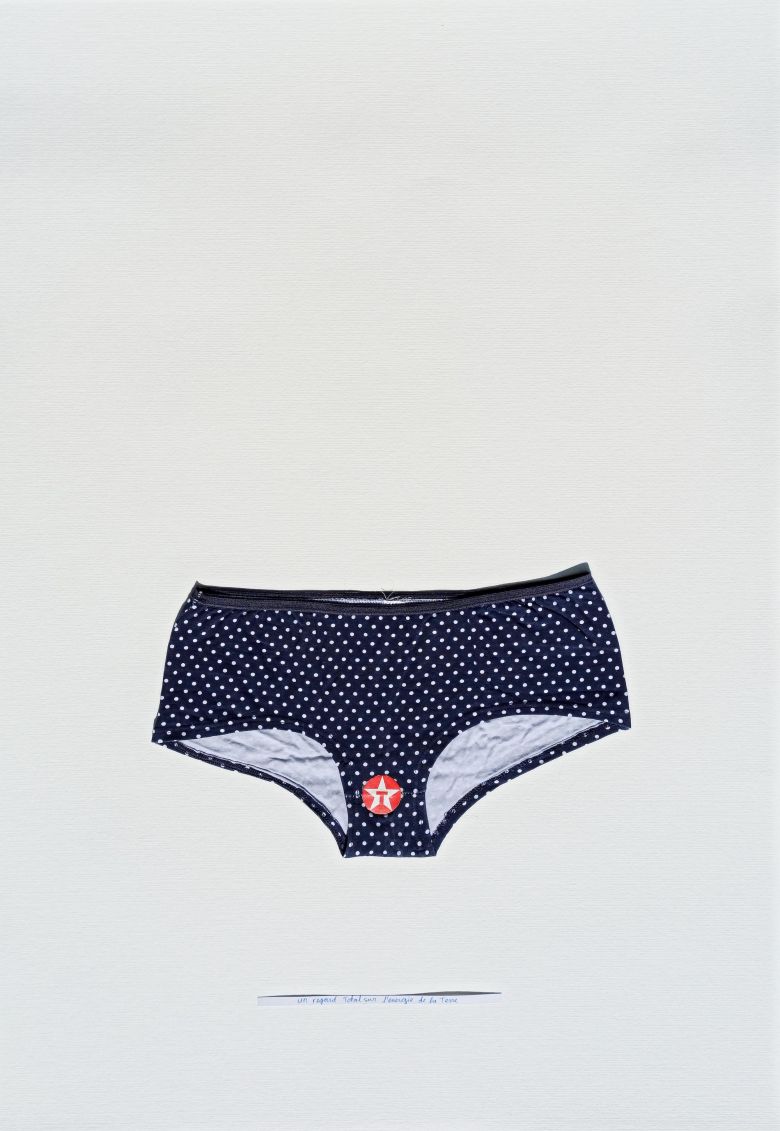
(4/4)
Un Regard Total sur l’énergie de la Terre [A Total Look at the Energy of the Earth], 2020
Photo of a new collage
Polka dot panties/swimsuit (white polka dots on blue background), Texaco logo, text.
A sexy world, completely drilled, with a fierce look, sporting a white-red starry nose (logo of one of the largest multinational companies leaders in the oil extraction industry). The majority of our governments today have registered the capitalist and monopolistic economy as a creed for the development of our societies. Condemning the majority of humanity to precariousness and at the same time dismissing the living in its entirety towards a premature end.
Un Regard Total sur l’énergie de la Terre [A Total Look at the Energy of the Earth], 2020
Photo of a new collage
Polka dot panties/swimsuit (white polka dots on blue background), Texaco logo, text.
A sexy world, completely drilled, with a fierce look, sporting a white-red starry nose (logo of one of the largest multinational companies leaders in the oil extraction industry). The majority of our governments today have registered the capitalist and monopolistic economy as a creed for the development of our societies. Condemning the majority of humanity to precariousness and at the same time dismissing the living in its entirety towards a premature end.
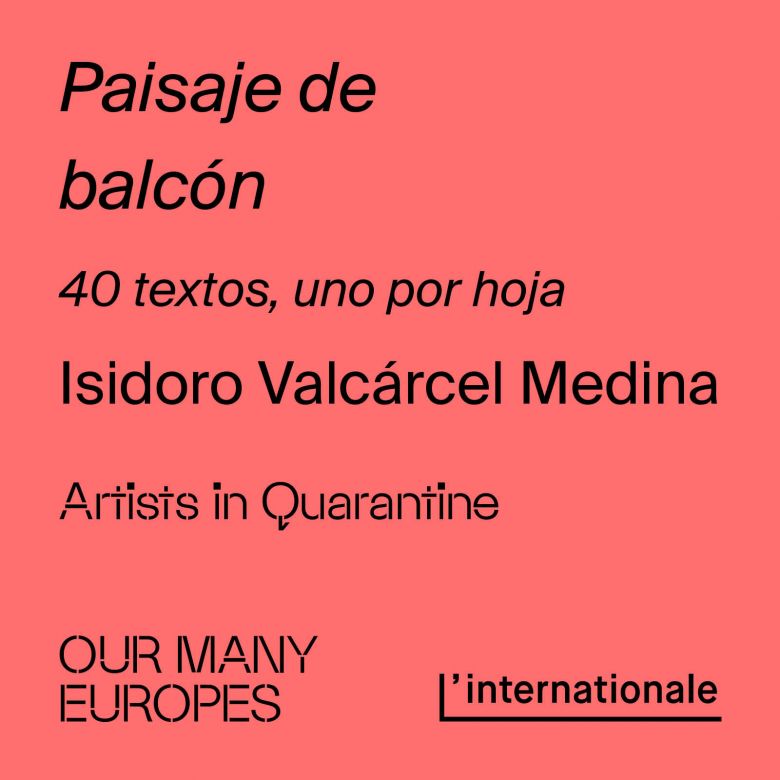
Isidoro Valcárcel Medina
Balcony Landscape
40 texts, one per sheet
Photo: Pilar Huete
Contemporary human society has been marginalizing the enjoyment of balconies. Those of us who are observers of them know that almost only are used for smoking. But now they have been configured as a resource to contemplate the disfigured city, as a slight consolation for the restriction of space.
Balcony Landscape
40 texts, one per sheet
Photo: Pilar Huete
Contemporary human society has been marginalizing the enjoyment of balconies. Those of us who are observers of them know that almost only are used for smoking. But now they have been configured as a resource to contemplate the disfigured city, as a slight consolation for the restriction of space.
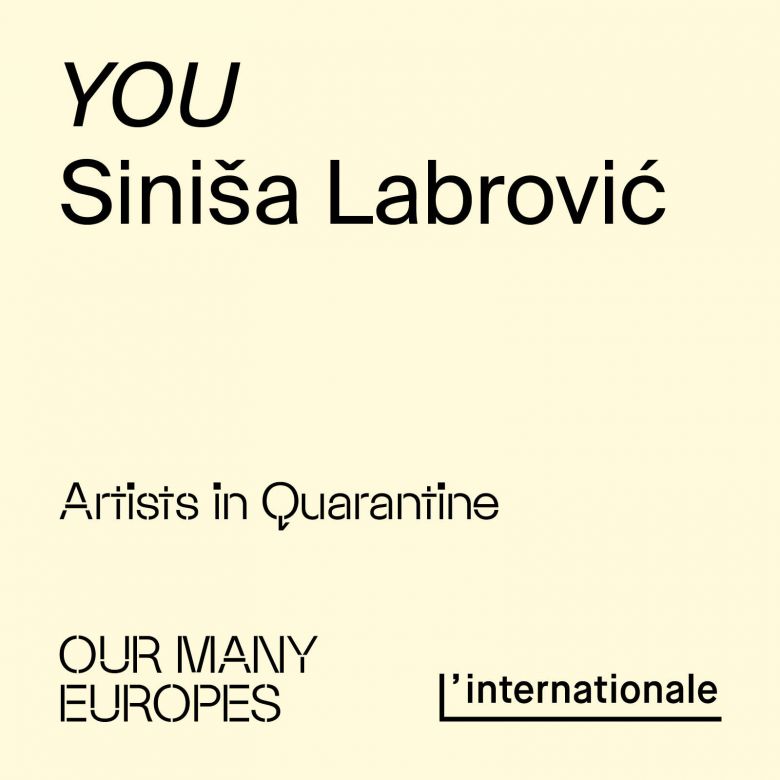
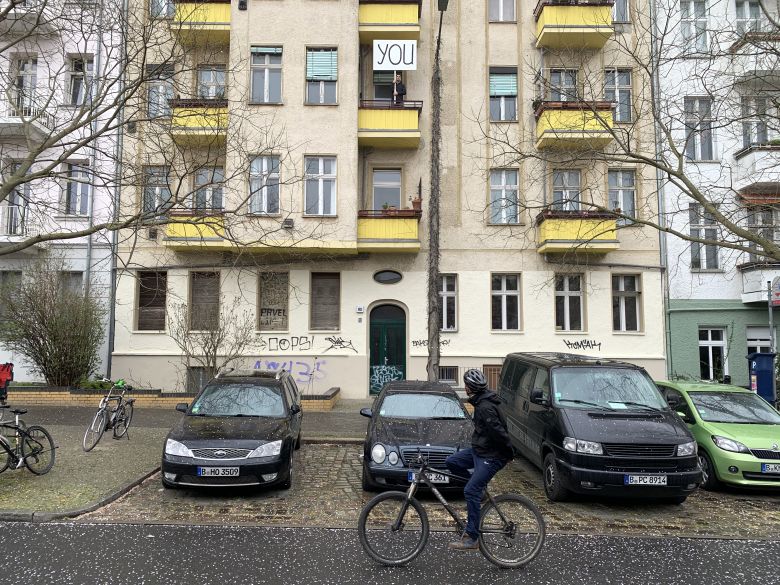
Siniša Labrović
YOU
Performance, Schwedter Strasse, Berlin
Photo: Vanja Juranić
The new sociopolitical circumstances caused by COVID-19 have put us in a paradoxical situation. It’s as if we were living in some almost “ideal” planetary socialism, or at least its biological version (all humanity united against a common enemy, exposed to contagion, fighting to save the weakest among us in a concerted effort for a common good), and this socialism intersects with the ideal solipsism of neoliberalism and capitalism (atomized individualization, fear of the other, drastic class difference in access to healthcare). Because of its rich history of political agitation, the balcony seems to be the most attractive of the borderline places between private and public. Balconies allow us to preserve physical distance from others while entering a public space. I chose the banner as my tool of political and social communication. Now, others are my friends and companions, but at the same time also a potential danger to me. The ideal form of closeness becomes physical distance. Every other person becomes absolutely important to me. That’s why I address them as “YOU” on the banner, expressing myself as both “FOR” and “AGAINST” them, thus creating our community of destiny in the hope that we can jointly withstand this ordeal and win.
YOU
Performance, Schwedter Strasse, Berlin
Photo: Vanja Juranić
The new sociopolitical circumstances caused by COVID-19 have put us in a paradoxical situation. It’s as if we were living in some almost “ideal” planetary socialism, or at least its biological version (all humanity united against a common enemy, exposed to contagion, fighting to save the weakest among us in a concerted effort for a common good), and this socialism intersects with the ideal solipsism of neoliberalism and capitalism (atomized individualization, fear of the other, drastic class difference in access to healthcare). Because of its rich history of political agitation, the balcony seems to be the most attractive of the borderline places between private and public. Balconies allow us to preserve physical distance from others while entering a public space. I chose the banner as my tool of political and social communication. Now, others are my friends and companions, but at the same time also a potential danger to me. The ideal form of closeness becomes physical distance. Every other person becomes absolutely important to me. That’s why I address them as “YOU” on the banner, expressing myself as both “FOR” and “AGAINST” them, thus creating our community of destiny in the hope that we can jointly withstand this ordeal and win.
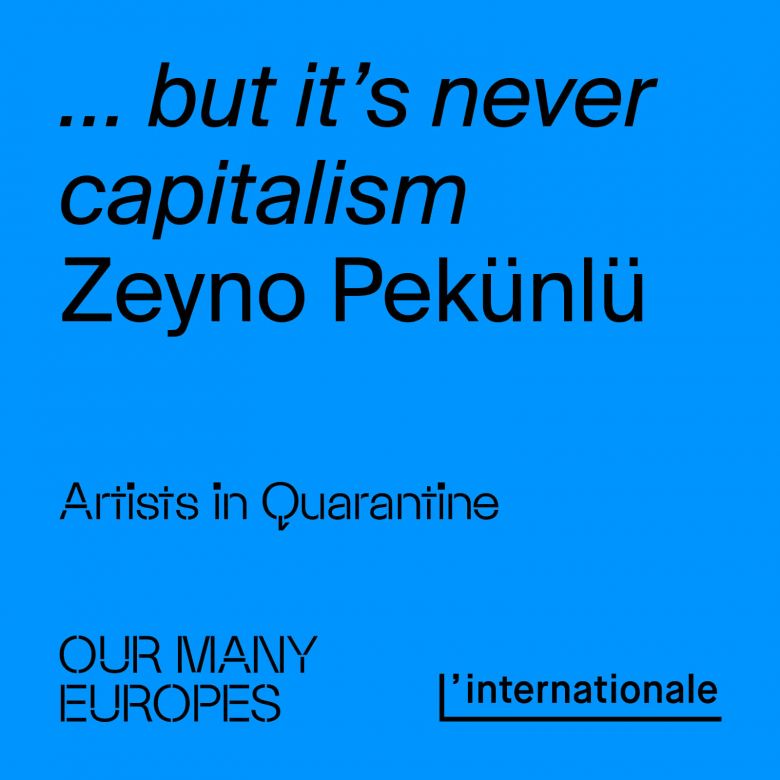
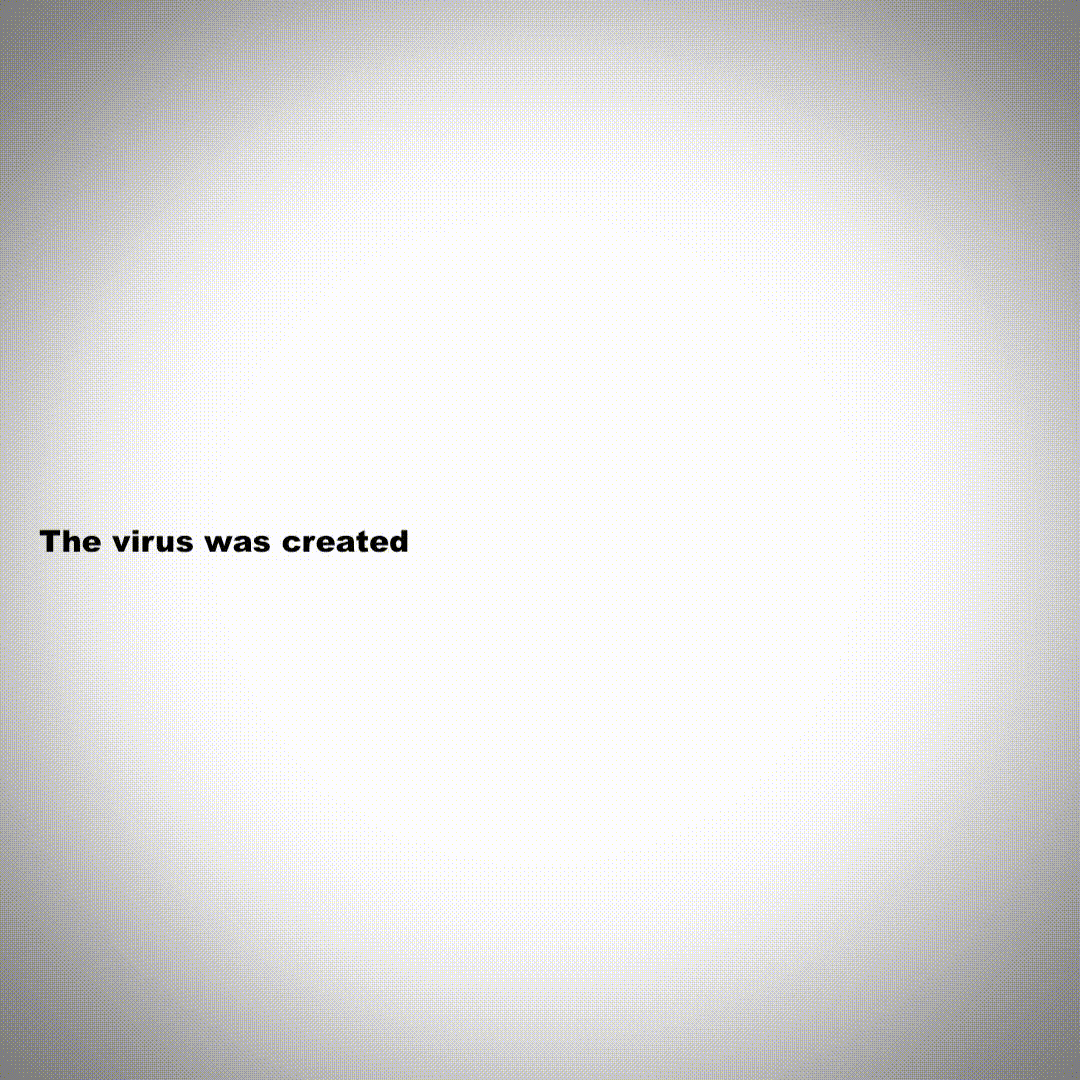
Zeyno Pekünlü
…but it’s never capitalism
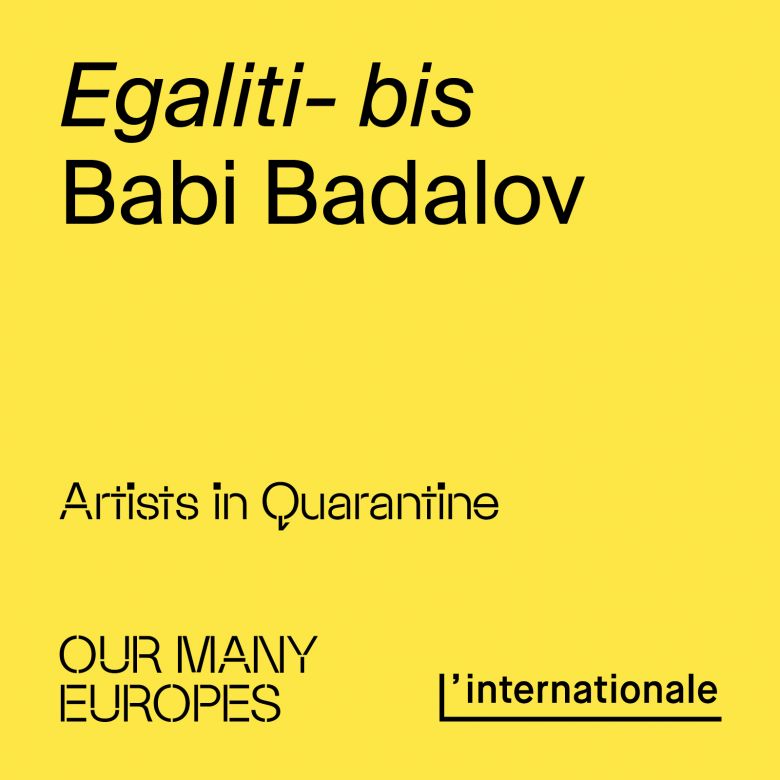
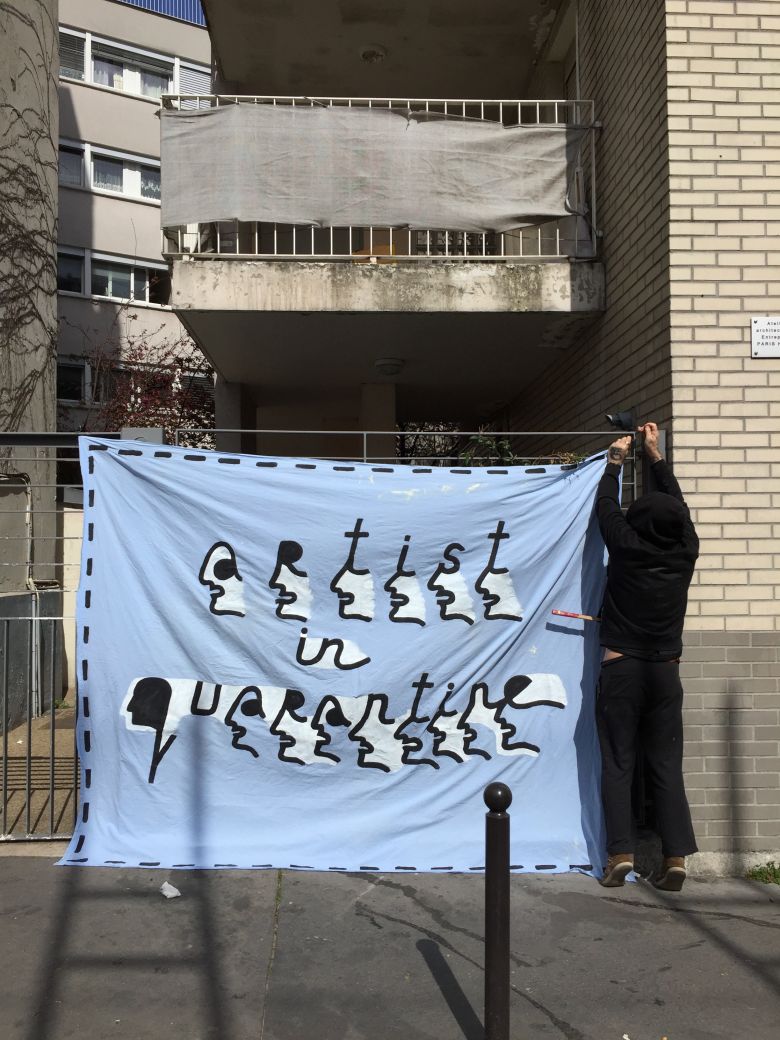
Babi Badalov
Egaliti- bis
Curator: Szymon Maliborski
Quarantine made me feel as if I am the only man on earth who is witnessing the COVID-19 pandemic. This pandemic is like a story known only from books about the biggest global catastrophes. Now all of us have to stay at home the whole day, which makes us uncertain of our lives after this disaster. I’m afraid that the state can use our fear of the next sudden global crisis to change the basic standards of our everyday existence. When I walk down the empty street, going to the market with a document in my pocket that allows me to buy a product for survival, I already feel that I am not the same person anymore. But, I feel I got used to a scary uncertain future! Today is the 22nd day of my quarantine in my studio.
Egaliti- bis
Curator: Szymon Maliborski
Quarantine made me feel as if I am the only man on earth who is witnessing the COVID-19 pandemic. This pandemic is like a story known only from books about the biggest global catastrophes. Now all of us have to stay at home the whole day, which makes us uncertain of our lives after this disaster. I’m afraid that the state can use our fear of the next sudden global crisis to change the basic standards of our everyday existence. When I walk down the empty street, going to the market with a document in my pocket that allows me to buy a product for survival, I already feel that I am not the same person anymore. But, I feel I got used to a scary uncertain future! Today is the 22nd day of my quarantine in my studio.
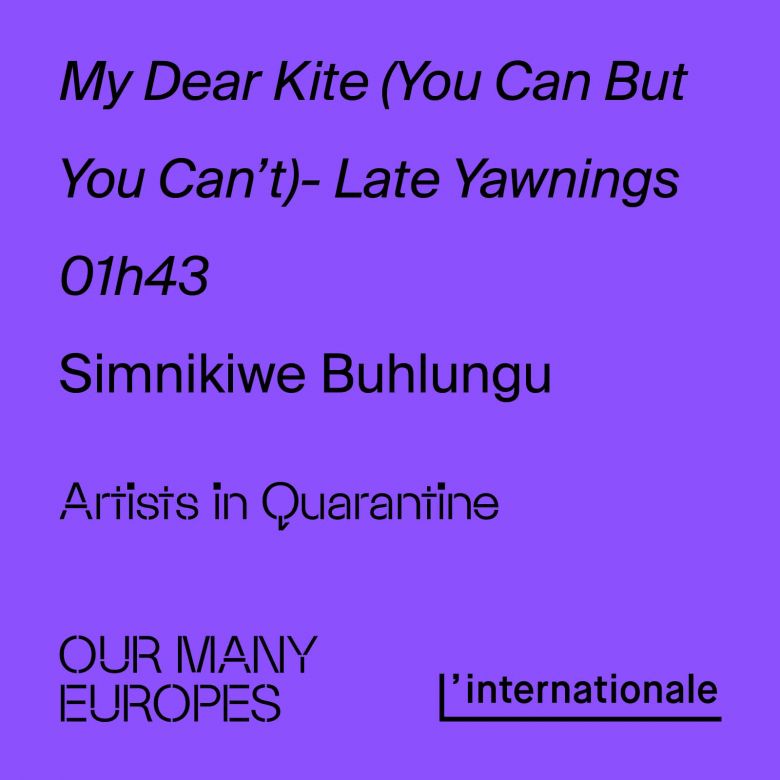
Simnikiwe Buhlungu
My Dear Kite (You Can But You Can’t) - Late Yawnings 01h43, 2020
Recorded in this ubiquitous time of confusion and uncertainty, My Dear Kite (You Can But You Can’t) - Late Yawnings 01h43 is an attempt to navigate the dilemma of a displaced in/out[door] activity of play, while simultaneously attempting to make sense of the socio-cultural consequences that will arise from the pandemic, as well as my own bodily and geographic [dis]placement from Johannesburg, South Africa, having recently moved to The Netherlands. Woven into these attempts are questions on what it means to be a creative practitioner, to be productive and the (in)ability to respond artistically.
My Dear Kite (You Can But You Can’t) - Late Yawnings 01h43, 2020
Recorded in this ubiquitous time of confusion and uncertainty, My Dear Kite (You Can But You Can’t) - Late Yawnings 01h43 is an attempt to navigate the dilemma of a displaced in/out[door] activity of play, while simultaneously attempting to make sense of the socio-cultural consequences that will arise from the pandemic, as well as my own bodily and geographic [dis]placement from Johannesburg, South Africa, having recently moved to The Netherlands. Woven into these attempts are questions on what it means to be a creative practitioner, to be productive and the (in)ability to respond artistically.
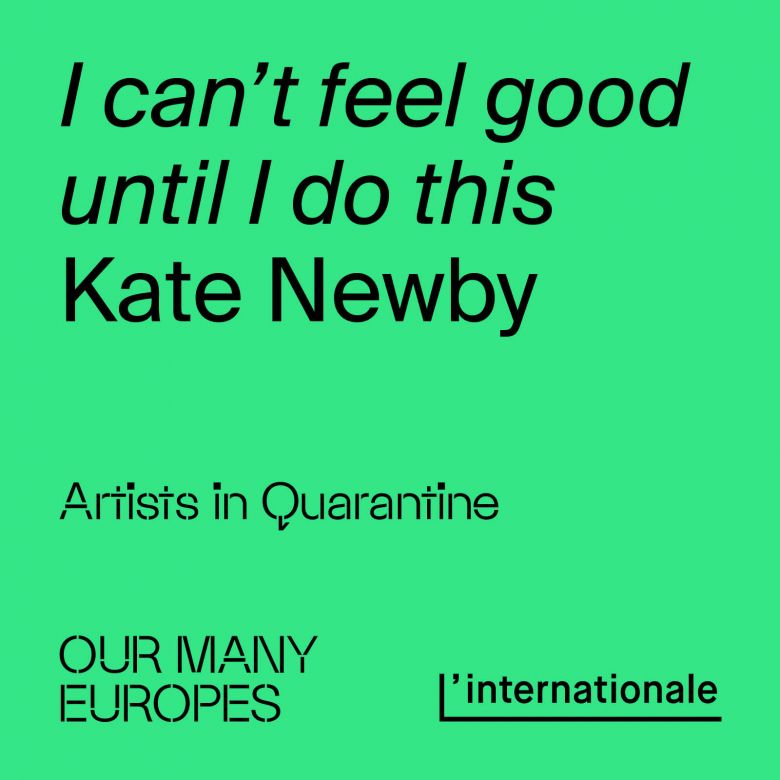
Kate Newby
I can’t feel good until I do this, 2020
I can’t feel good until I do this, 2020
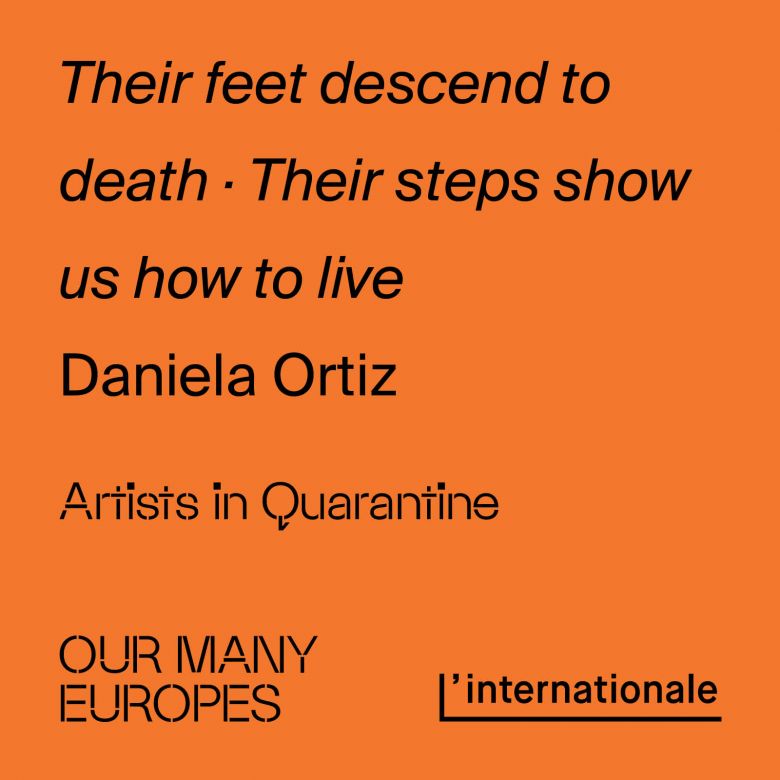
Daniela Ortiz
Their feet descend to death · Their steps show us how to live
Mural made by Daniela Ortiz in the company of her son Inti Puma during the month of April 2020 in Barcelona, during the confinement and state of alarm caused by the Covid-19 pandemic.
Their feet descend to death · Their steps show us how to live
Mural made by Daniela Ortiz in the company of her son Inti Puma during the month of April 2020 in Barcelona, during the confinement and state of alarm caused by the Covid-19 pandemic.
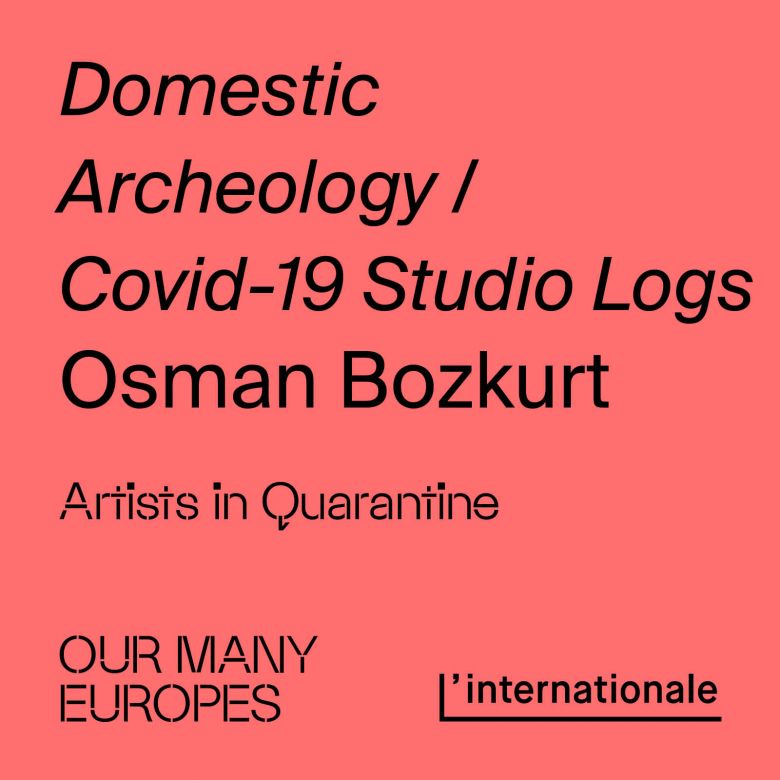
Osman Bozkurt
Domestic Archaeology/Covid-19 Studio Logs
A small window in my studio leads onto the rooftop; my only access to the outside world amidst a group of tall buildings in one of the busiest areas of the city that has been deserted nowadays. This reminds me of the Neolithic site of Çatalhöyük where people entered their dwellings through holes on the roofs and descended stairs. I spend my days recovering material remains from the neighboring building that was being demolished before the virus locked us in. Then I meticulously clean and classify my findings, looking for fragments of individual and collective histories. I am making a very modest collection of Marseilles roof tiles with inscribed names that allow me to identify the manufacturers, some bricks, pieces of concrete, and nails… Compiling a series of photographs that was taken at the dig, Domestic Archaeology chronicles my ongoing fieldwork during the days of quarantine.
Domestic Archaeology/Covid-19 Studio Logs
A small window in my studio leads onto the rooftop; my only access to the outside world amidst a group of tall buildings in one of the busiest areas of the city that has been deserted nowadays. This reminds me of the Neolithic site of Çatalhöyük where people entered their dwellings through holes on the roofs and descended stairs. I spend my days recovering material remains from the neighboring building that was being demolished before the virus locked us in. Then I meticulously clean and classify my findings, looking for fragments of individual and collective histories. I am making a very modest collection of Marseilles roof tiles with inscribed names that allow me to identify the manufacturers, some bricks, pieces of concrete, and nails… Compiling a series of photographs that was taken at the dig, Domestic Archaeology chronicles my ongoing fieldwork during the days of quarantine.
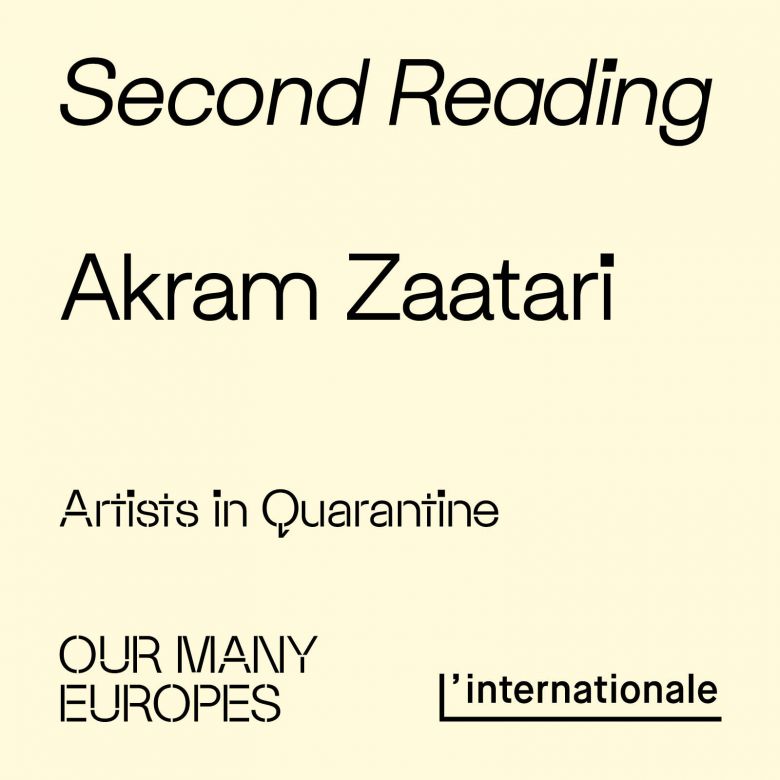
Akram Zaatari
Second Reading
In Hitchcock’s Rear Window, 1954, a photographer suffers from confinement imposed on him by the cast of his broken leg. To entertain himself, he spends his time at the window with his camera, looking at the details of the courtyard, hearing and observing his neighbors, wanting to experience something exciting, while a crime slowly unfolds. With the imposed lockdowns, most people are home too. They look through the window, or they stand at the balcony, or sit in front of the third window: any of the screens that surround us, TV, computer, kindle, tablets or smartphones, seeking news but very often demanding to view something very familiar. Second Reading looks briefly at the figure of the photographer in Egyptian cinema taking Mohamed Khan’s Darbet Shams, 1978, as an entry point.
Excerpts from:
Mohamed Khan, Darbet Shams, 1978
Henri Baraka, Al Hob al Kabeer, 1969
Atef Salem, Yom min Omri, 1961
Helmy Raflah, Mabodat al Gamahir, 1967
Second Reading
In Hitchcock’s Rear Window, 1954, a photographer suffers from confinement imposed on him by the cast of his broken leg. To entertain himself, he spends his time at the window with his camera, looking at the details of the courtyard, hearing and observing his neighbors, wanting to experience something exciting, while a crime slowly unfolds. With the imposed lockdowns, most people are home too. They look through the window, or they stand at the balcony, or sit in front of the third window: any of the screens that surround us, TV, computer, kindle, tablets or smartphones, seeking news but very often demanding to view something very familiar. Second Reading looks briefly at the figure of the photographer in Egyptian cinema taking Mohamed Khan’s Darbet Shams, 1978, as an entry point.
Excerpts from:
Mohamed Khan, Darbet Shams, 1978
Henri Baraka, Al Hob al Kabeer, 1969
Atef Salem, Yom min Omri, 1961
Helmy Raflah, Mabodat al Gamahir, 1967
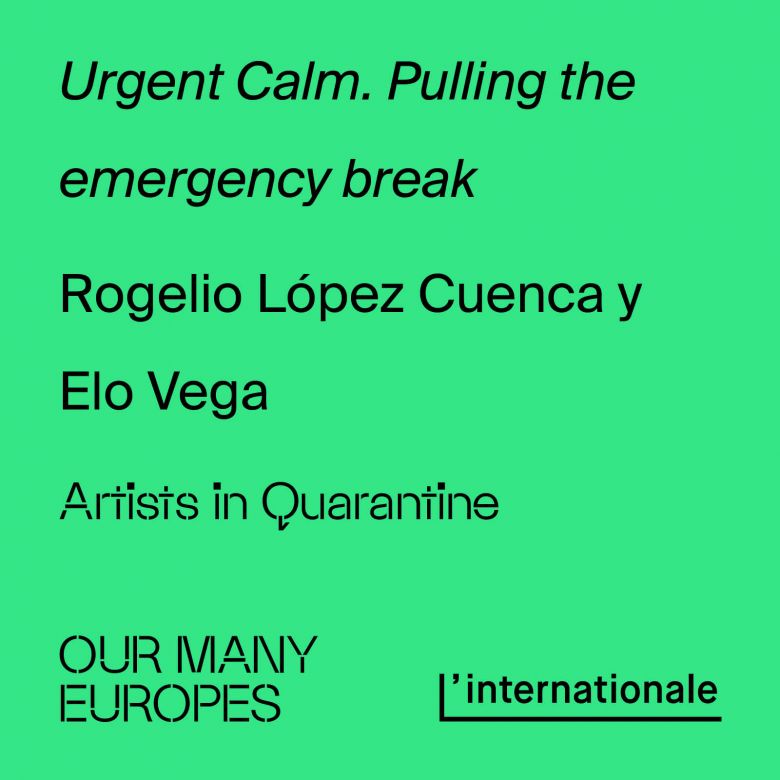
Rogelio López Cuenca & Elo Vega
Urgent calm. Pulling the emergency break
Format: Germinal action
State of exception. In isolation. No contact with the external except through the screens we have surrounded ourselves with. Your emotions, fear, perplexity, affective expression, they are all reduced to fodder for big data. The unnerving sense of being white rats in a planet-sized laboratory, in which the limits of consent and the conditions of surrender are being tested.
Windows, balconies and terraces have suddenly revealed themselves as spaces of hitherto unimagined symbolic intensity. On our balcony, as on so many others, seeds, sprouts, seedlings have become the most resilient metaphor for the strength of life, and of our will to resist getting dragged along by the suicidal inertia of the promised return to a “normalcy” of inequality and precarity, of immediate and frenzied extractivism.
In the balconies and the windows we have found a way to look backwards in order to glimpse the future, such that we may—as Benjamin foretold—collectively pull the emergency brake.
Urgent calm. Pulling the emergency break
Format: Germinal action
State of exception. In isolation. No contact with the external except through the screens we have surrounded ourselves with. Your emotions, fear, perplexity, affective expression, they are all reduced to fodder for big data. The unnerving sense of being white rats in a planet-sized laboratory, in which the limits of consent and the conditions of surrender are being tested.
Windows, balconies and terraces have suddenly revealed themselves as spaces of hitherto unimagined symbolic intensity. On our balcony, as on so many others, seeds, sprouts, seedlings have become the most resilient metaphor for the strength of life, and of our will to resist getting dragged along by the suicidal inertia of the promised return to a “normalcy” of inequality and precarity, of immediate and frenzied extractivism.
In the balconies and the windows we have found a way to look backwards in order to glimpse the future, such that we may—as Benjamin foretold—collectively pull the emergency brake.
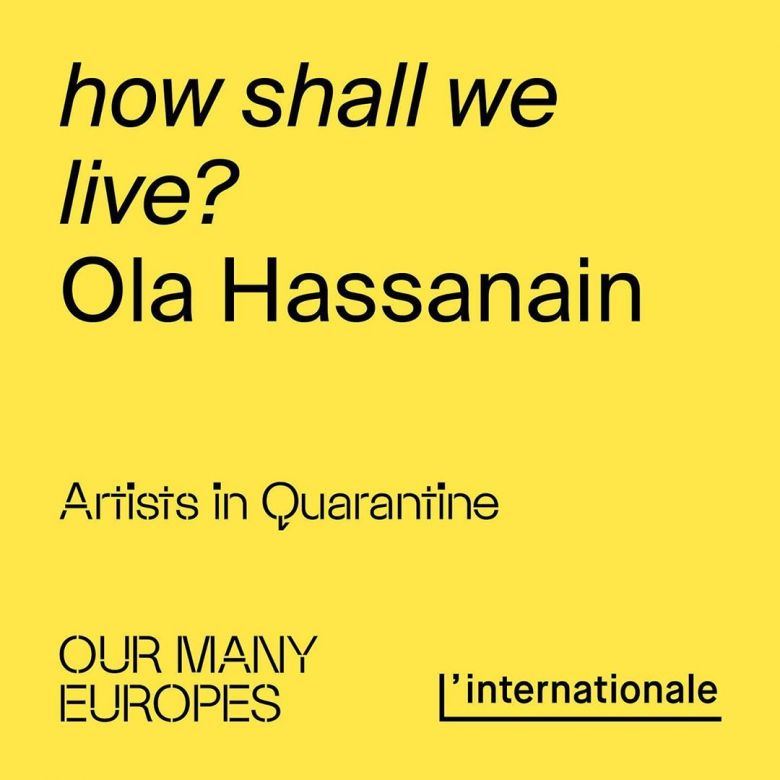
(1/5)
Ola Hassanain
Reflections
Two still frames from a video
7’
2019
Ola Hassanain
Reflections
Two still frames from a video
7’
2019
(2/5)
Ola Hassanain
Graphics showing demonstration routes taken by the crowds in the Sudanese Revolution that kicked off in 2018, each route followed a specific theme set by the SPA (Sudanese Professionals Association) beforehand. The routes offer a different reading of the urbanscape of Khartoum City, premised on people’s localities and their instantaneous strategizing.
2019
Ola Hassanain
Graphics showing demonstration routes taken by the crowds in the Sudanese Revolution that kicked off in 2018, each route followed a specific theme set by the SPA (Sudanese Professionals Association) beforehand. The routes offer a different reading of the urbanscape of Khartoum City, premised on people’s localities and their instantaneous strategizing.
2019
(3/5)
Ola Hassanain
Promissory Notes
2020
Ola Hassanain
Promissory Notes
2020
(4/5)
Ola Hassanain
Summoning
Video with sound
0’25”
Part of the multimedia project A thought of the Outside, a commission by Chicago Architecture Biennale
2019
Ola Hassanain
Summoning
Video with sound
0’25”
Part of the multimedia project A thought of the Outside, a commission by Chicago Architecture Biennale
2019
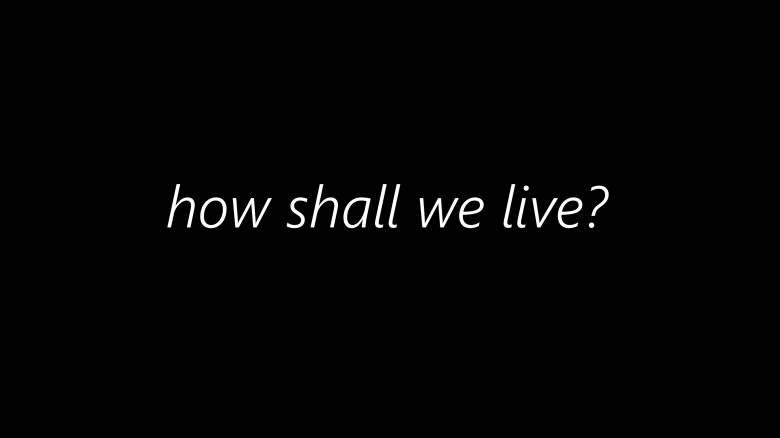
(5/5)
Ola Hassanain
how shall we live?
White text on black graphics
2020
Ola Hassanain
how shall we live?
White text on black graphics
2020
